

SA: R42.00 inc Vat Botswana: P33.00 Eswatini: E42.00 Lesotho: M42.00 December 22 - December 28 2022 www.financialmail.co.za ...and now will he actually do something? • Elon Musk — how to lose half a trillion • Arthur Fraser — the man who (almost) toppled a president • Siya Kolisi — the yin to Rassie’s yang • Wayne Duvenage — ‘big business are wimps’ • Putin and Zelensky — cracks show for both sides Newsmaker of the year SPECIAL REPORT: Inside the ANC election Natasha Marrian • Richard Calland • Carien du Plessis • Sam Mkokeli • Claire Bisseker
With 23 offices across 14 countries, we’re here for you and everywhere for your money. If it’s an offshore investment partner you’re after, there’s only one place to start. Right here.
Ninety One SA (Pty) Ltd is an authorised financial services provider.
Investing for a world of change
Isn’t it time to change how you see investing? Ę
Invest globally with the partner you trust locally
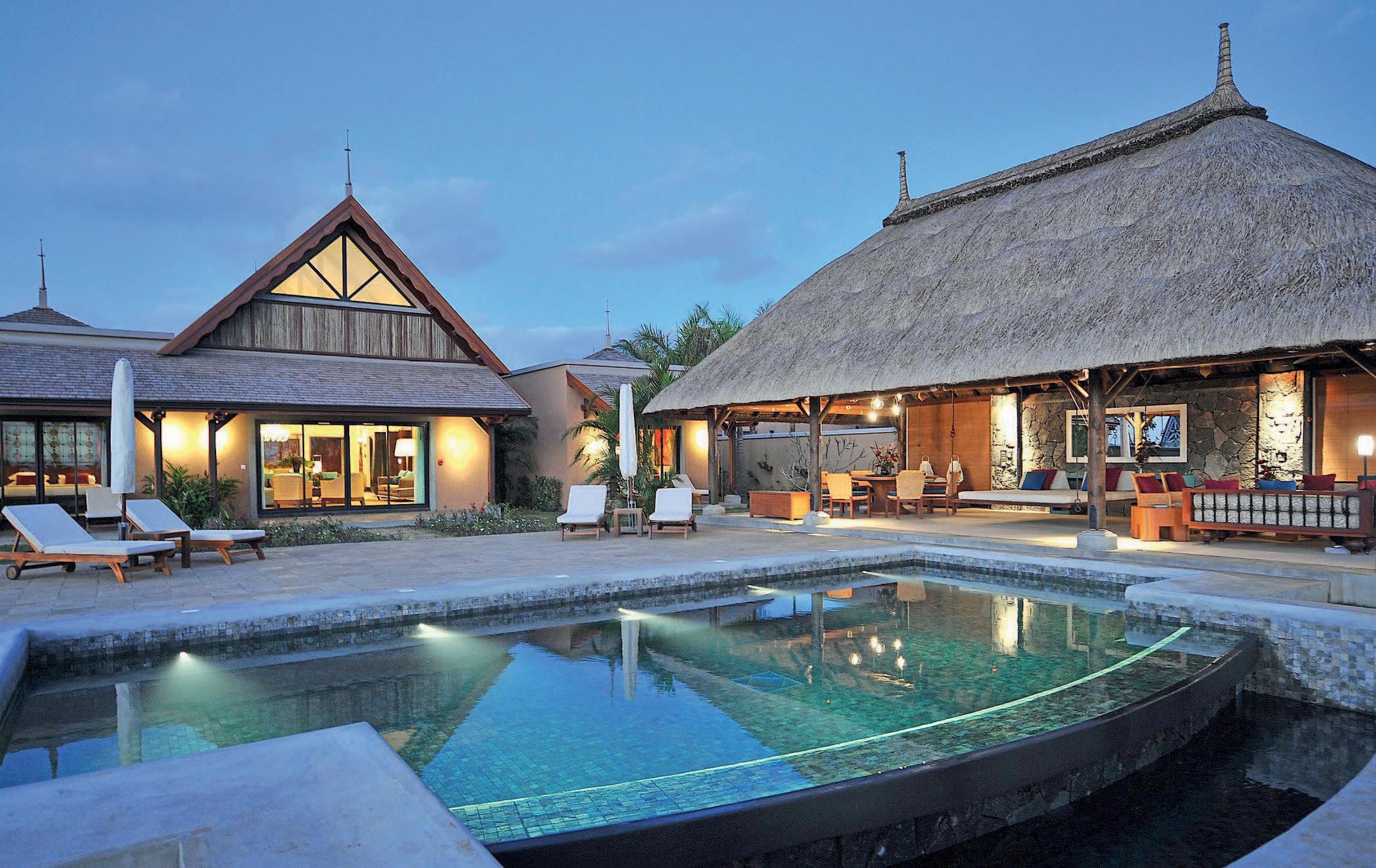
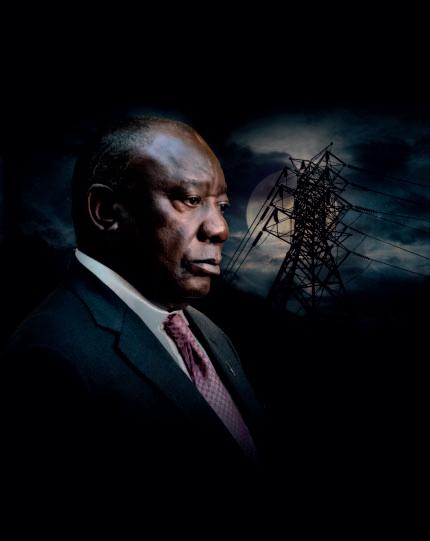

financialmail.co.za December22-December 28,2022 December 22 - December 28,2022 . financialmail.co.za 3 facebook.com/ financialmail @financialmail contents facebook.com/ financialmail @financialmail 9 fox Bridge to prosperity ? 20 cover The Teflon president Eswatini:E42.00 Lesotho: M42.00 ...and now will he actually do something? • Elon Musk — how to lose half a trillion — the man who (almost) toppled president Siya Kolisi — the yin to Rassie’s yang • Wayne Duvenage — ‘big business are wimps’ Putin and Zelensky Newsmaker of the year SPECIAL REPORT: Inside the ANC election Natasha Marrian • Richard Calland • Carien du Plessis Sam Mkokeli Claire Bisseker REGULARS 4Editorials 6Letters 8At Home & Abroad 40In Good Faith 47Your Money 57Crossword 58Backstory FM FOX 9Construction 10Another Week 11Trending 11Dinner Party Intel 12Diamonds & Dogs 14Digital 15Pattern Recognition 16Numbers 16Hot Property 17Profile 18Boardroom Tales NEWSMAKER OF THE YEAR 20Cyril Ramaphosa 24Business 25Politics 26Civil Society 27Sport 28International FEATURES 30Special Report: Inside the ANC Election 38Media Freedom Comment INVESTING 42Gold Fields 43Hospital Groups 45The Ghost Train 46Market Watch 48JSE Top Stocks 50Economic Indicators ADFOCUS 52Health Brands FM LIFE 53Travel 55Mind Games 30 features Inside the ANC election 42 investing Questions over Griffith 53 life A nearby island, a world away Cover: Vuyo Singiswa
THIS YEAR’S REAL HEROES
In 2006, Time magazine made YOU the person of the year. It wasn ’t, as you might think, a vote for the South African magazine, but rather a mirror-paged cover that paid homage to the millions of people who “controlled the information age”
Derided as a cop-out and a marketing gimmick, it nonetheless made the point that the burgeoning powers of YouTube, Facebook, Wikipedia and MySpace the social media pioneers were all about the internet’s most important component: its users.
And so, while the FM has made Cyril Ramaphosa 2022’s newsmaker, this year has really been about the South Africans who have kept it together during an interminable 12 months of vicious politics, economic uncertainty, appalling power cuts, rampant crime, and the dysfunction plaguing everyday existence.
Those who watched the ANC’s 55th elective conference, and the obsession with trading positions rather than discussing actual policy, wouldn’t have got much of a sense that party leaders cared about these realities.
Which isn’t to say other parties have behaved much better.
There is the EFF’s endless parliamentary distractions; ActionSA’s vile anti-immigration rhetoric; and the DA’s lack of basic EQ on full display on social media. Few of South Africa’s office-holders seem to be focused on actually doing what their job entails: serving those who pay their salaries.
And yet, it’s the working- and middleclass taxpayers who are routinely ignored by state functionaries. And it’s the mushrooming indigent class, queuing for welfare grants, who remain at the mercy of populist politicians who have done little to open up avenues for a better economic life.
Business owners have lost hours inching
Editorial Editor: Rob Rose.
Deputy editor: Natasha Marrian.
Writers: See bylines for writers.
along roads where traffic lights are dark, ignored by road traffic management authorities who, due to their delinquency, have no legitimate claim to a salary.
Yet these entrepreneurs pay staff despite factories being without power for hours. They wait while officials whose salaries they pay fail to answer phones, reply to queries, or do their jobs.
Those who can afford it have abandoned public health care and state education. Rather than rely on an inept police force, they shell out for private security and have bought inverters or generators to do Eskom’s job. Yet they keep paying the government, despite its absence.
Workers, and the poor, have it worse. They have no option but to rely on the state for health care and education, and risk their lives taking bashed-up taxis to work since buses are few. Trains, thanks to the shambolic management of the Passenger Rail Agency of South Africa under the equally shambolic Fikile Mbalula, are absent.
Their take-home pay is dwarfed by the wages of the political elite. The average nominal South African salary (after deductions), according to the latest BankservAfrica economic index, was R15,489 in October.
Yet ministers draw a monthly salary of R206,000 and their deputies make R170,000 and they get taxpayer-funded generators at home, so they can avoidload-shedding.
Meanwhile, the country’s GDP per capita has gone backwards over the past 10 years from $8,810 in 2011 to $6,994 by the end of 2021. This, right here, is evidence of a lost decade.
Our wish for 2023 is that a newly reelected Cyril Ramaphosa finally pays real attention to the economic tragedy happening on the ground, including among those who pay to keep the country running. x
Subeditors: Magdel du Preez (Chief), Dave Landau (Deputy), Dynette du Preez.
Proofreader: Norman Baines.
Editorial tel
financialmail.co.za
Financial Mail is a wholly owned subsidiary of:
Assistant editors: Shirley de Villiers, Giulietta Talevi, Archie Henderson.
Digital editor: Nelisiwe Tshabalala
Managing editor: Kevin O’Grady.
Contributing editors: Sarah Buitendach, Bruce Whitfield, David Williams.
Creative director:Debbie van Heerden.
Contracted artists: Colleen Wilson, Vuyo Singiswa Graphics & statistics: Shaun Uthum.
Photographer: Freddy Mavunda.
Personal assistant to the editor: Onica Buthelezi.
Office assistant: Nelson Dhlamini.
editorials
editorials
FACING A GRIM FINALE
It’s been five years in coming, but it seems South Africa’ s most notorious company, Steinhoff, may have reached its sell-by date.
Last week, Steinhoff announced that shareholders will have to vote on a plan to hand over 80% of the company to creditors in exchange for deferring the repayment of debt from 2023 to 2026.
It means shareholders will retain just 20% of the company but that’s actually the best-case scenario: if they veto the plan, the financiers will take over the entire company.
It’s a case of Hobson’s choice for shareholders, who have seen the value of R100,000 invested on December 1 2017 dwindle to R1,013 today. But after an earth-shattering fraud of R106bn, few would have expected Steinhoff to still be going.
That it has survived is due to its strong assets including 51% in Pepkor (worth R37bn) and 78% of Pepco (worth an estimated R67bn). The problem is, they’re not chalking up profits fast enough to dent Steinhoff ’ s €10bn debt.
Some shareholders will grumble that Steinhoff surely had other options. But for those who hung on, it’ s a grim denouement. x
Johannesburg: (011) 280-5808/3000.
Cape Town: (021) 488-1700
Group Sales & Marketing
Head of advertising sales: General number: (011) 280-3710/3183
Advertising enquiries:
TEL: 011 280 3204
CPT: 021 488 1700
KZN: 031 250 8500
Email: advertising@arena.africa Website:adroom arena africa
Classified advertising Tel: 011 280 3435 Email: classifieds@arena.africa
Subscriptions
Subscription customer services hotline: Domestic 0860 525200. E-mail: helpdesk@ businesslive.co.za
Subscriptions (annual rates: 50 issues): South Africa R1,374.96; R1,031.20 (senior citizens).
4 4
financialmail.co.za . December 22 - December 28,2022


letters
The ANC vortex of doom will take us all
The image of the ANC is so severely battered that it is difficult to imagine what the party will look like after its national elective conference. Ordinary ANC members, and South Africans in general, are disillusioned with the party leadership. The party has to deal with a host of factors that contributed to the current paralysis. The Phala Phala scandal has compounded issues.
The organisation has been rudderless since the 2007 Polokwane conference. Jacob Zuma contributed largely to the decline and loss of direction but the situation has not improved under President Cyril Ramaphosa. The ANC has abandoned its core values, and institutions without core values seldom survive calamities that come their way. A prominent academic once argued that part of the reason churches survive scandals is that they immediately fall back on their core religious values to rally their membership.
Will the ANC survive its internal turmoil? Is there a rescue plan? The party’ s warring factions appear to be preoccupied with the quest to control state resources for their private benefit.
All this is unfolding against a background of poverty, sluggish economic growth and international markets in turmoil. The country’s economy has not fully recovered from the impact of the pandemic. Moreover, the international ratings agencies are watching developments in the ANC closely.
The late Ethiopian leader Meles Zenawi once poignantly said: “The only bright light across the dark African skies of the 1990s was the liberation of South Africa.”
The ANC, since the dawn of democracy in 1994, has not only betrayed the hopes and aspirations of South Africans but of the continent as well.
Our situation is worsened by the absence of strong opposition parties that have any prospect of taking over from the ANC. The opposition has not offered a compelling alternative vision
to that of the ANC.
What is the way forward? The president, the top leadership and the national executive committee have not given us any reason to think the ANC can save itself.
The ANC is too big to fail and if it goes down, it will go down with all of us, irrespective of our political affiliations.
Mpumezo Ralo Gqeberha
A dead jackal wins no votes
Anyone in the field of advertising will be able to talk for ages on the subject of “brand value” .
Observing the run-up to the ANC shindig, it does seem the final battle is about the soul of the once respected and mighty ANC. While the winners may lay claim to the soul, would anyone in their right mind want the brand of the battered party?
Whichever faction goes to the polls as custodian of the party in 2024 would be well advised to distance itself as far as possible from Brand ANC, which is starting to smell like rotting roadkill in the summer sun. But then, boy, have they worked hard at achieving just that!
Michael Hook Parkhurst
online
Ramaphosa’s opening speech was delayed by hours as the registration process dragged on and one ANC staffer blames load-shedding. The ANC top cadres care about Eskom only because it might cause them to lose power in 2024. They are insulated against almost all the ills that they have caused in this country.
Sandra Goldberg
There is only one conversation: Eskom and how to save it. South Africa will die if solutions are not implemented right now. The only silver lining is that every time the power goes out, more voters leave the ANC.
Andrea Robertson
Cyril Ramaphosa trounces Zweli Mkhize and his allies. The financial woes of the ANC have been well documented. Why has nobody inquired how the ANC paid for a conference of this proportion, given its money problems?
Allan Wolman
The Eskom CEO’s resignation comes after an astonishing broadside from the minister of minerals & energy, including accusing De Ruyter of acting ‘like a policeman’ . There are a lot of powerful people in South African business, powerful because of their knowledge in various fields of expertise, their authenticity, their empathy and logic. This situation calls for brainstorming by all business leaders. We cannot sit on the sidelines and complain.
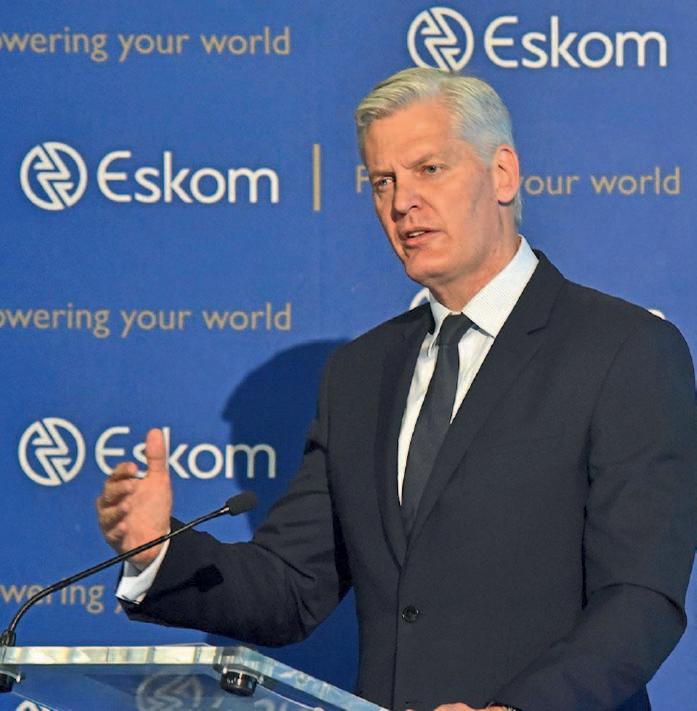 Anne Lloyd-Hughes
Anne Lloyd-Hughes
Correction
In an editorial (Ramaphosa Faces New Risk Over Zuma Judgment, November 24), the FM incorrectly implied that Jacob Zuma himself called for the country to be burned down in July 2021. Zuma was in prison at the time, while it was certain of his supporters who had agitated for the continued violence. We apologise to the former president.
you said... The FM welcomes concise letters from readers. Letters must carry the name and address of the sender. They can be sent to The Editor, Financial Mail, PO Box 1744, Saxonwold 2132. E-mail fmmail@fm.co.za 6 6 financialmail.co.za . December 22 - December 28,2022
André de Ruyter
Freddy Mavunda


























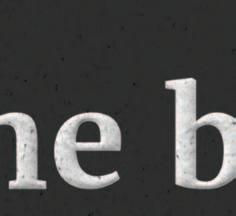
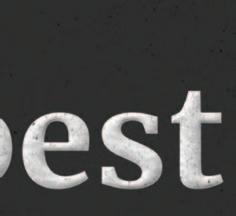


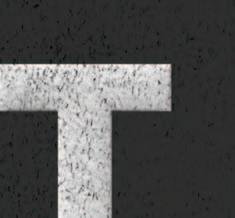






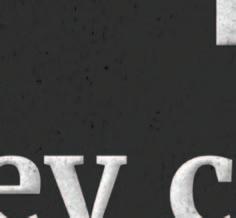
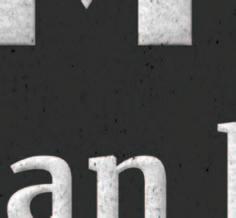





KINGJAMESJHB 6463
at home & abroad by Justice Malala at home & abroad by Justice Malala
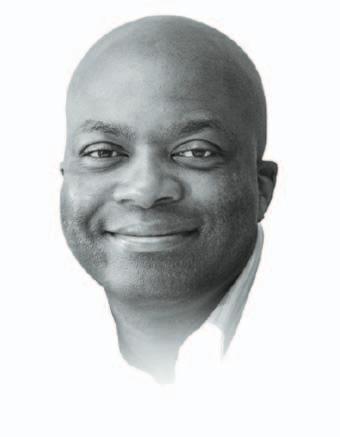
CYRIL’S MISSING LETTER TO SANTA
By some magic, our president hopes to get a belated spine implant
Santa was bored. His collar was sticky, despite it being the North Pole. He was hot. It was all that climate change business. Humans, he grumbled. Can’t get them to do the right thing even when their lives depend on it. They’ll just continue to burn fossil fuels because that fellow Gwede Mantashe in South Africa told them they won’t make money any other way.
Santa harrumphed and glanced at his mail. Sticking out of the bag was a letter that looked tatty, as though it had travelled far. He pulled it out. Lo and behold, it was from the Land of Gwede and Cyril Ramaphosa.
Santa peered at the postmark. Ah, It was five years late. It had been posted in December 2017, when Mark Barnes was still CEO of the South African Post Office. Santa remembered Barnes. “I’ll fix it,” Barnes had told his boss, Jacob Zuma, back in 2016 when he took the job. Five years later, letters to Santa still arrived late. Ahem.
“Ho, ho, ho! So it goes.” Santa opened the letter from 2017. He squinted and glanced at the bottom to see who had written it.




“
Enthusiastically, Cyril Ramaphosa”, was scrawled at the bottom. Imagine that, muttered Santa.
“Dear Santa,” he read. “I have just been elected ANC president and, boy, things are going to change around here. I know that letters from kids across South Africa have not been reaching you, and that presents sent by grandmothers and relatives have disappeared into the clutches of thieving
postal workers and the thieving syndicates that work at the post office. Don’t worry! I will fix it. I’ll get Eskom back on its feet and load-shedding will be a thing of the past. I’ll fix it all! The economy, the crime, the toxic politics everything!”
The letter went on in that vein for a while, with many exclamation marks, until the last paragraph: “In conclusion, dear Santa, I want to ask for just one present this year: a backbone!”

Santa reeled. This letter had been sent five years ago. How had he not seen it before? What had this poor man done for five years without a backbone? Santa rushed to his time machine and punched in the name “Cyril Ramaphosa”. An image of a beaming billionaire entreating the country to sing Thuma Mina and break into a “new dawn” dance came up.
Then the picture took on a grey, omi-


nous hue. The music changed to a slow, mournful dirge.
Santa saw the same man surrounded by a large group called a “cabinet”. There were all sorts of people Santa recognised among them including the do-nothing ministers who had served Zuma loyally. Santa looked at Ramaphosa. The man was slumped in his chair. He did not have the backbone to fire the unfit members of his cabinet.
The video then showed a Barbie-like figure, hovering over a desk, instructing a man who looked uncannily like a fugitive from the law in the US, to write an op-ed piece for her. She called judges racist names, denigrated the constitution she served, and called Ramaphosa a liar. He did not fire her. He did not have the backbone he had sent for.
The images were changing swiftly now. They showed a discredited leader, a former jailbird, calling Ramaphosa names and laying charges against him to unseat him. The president smiled, unable to call the hypocrite out. Ramaphosa had not received his present, the backbone, in the post.
Santa was sweating profusely now. The images on his time machine showed many opportunities when his letter writer could have displayed some spine but had not. Santa put his head in his hands in despair. He rushed to his emergency stocks, grabbed a backbone, wrapped it up, wrote the name and address on the parcel and added in bold that, by hook or by crook, it had to be delivered before Christmas 2022.
“Now he will be able to crack the whip,” Santa said, putting the delicate present in the mail.
Then he realised that he was at the mercy of the South African Post Office. He started weeping.
Merry Christmas, dear reader, and a happy 2023. x
8 8 financialmail.co.za . December 22 - December 28,2022
123RF/olegerin
CONSTRUCTION Bridge to prosperity ?
Cape Town pins big hopes on a traffic circle in the sky

 Sandiso Phaliso
Sandiso Phaliso
● A “sky bridge” across two of Cape Town’s busiest roads is expected to open up economic opportunities for many of the city’s poorest residents.
Work on the bridge is due to start next year, unlocking one of the city’s worst traffic bottlenecks, creating thousands of jobs and easing the flow of people from the sprawling Cape Flats to the city centre, say council officials.
The 6.2m-high bridge, or elevated traffic circle, is the first of its kind in South Africa and will take four years to build.
It will be built at the busy intersection of Jan Smuts Drive and Govan Mbeki Road (formerly Lansdowne Road) in Lansdowne to the southeast of the city. Along with cycling and pedestrian lanes it will be for the exclusive use of the MyCiti bus service, speeding up public transport in a city that can no longer rely on a suburban train network that is operated by the central government, which has allowed it to fall into disrepair.
The significance of the sky bridge cannot be exaggerated,
according to officials who have described it as an economic lifeline for some of the most deprived parts of Cape Town. The project will benefit the neighbouring suburbs of Hanover Park, Philippi, Lansdowne, Wetton, Gugulethu, Nyanga and even Mitchells Plain.
It’s also an imaginative project that could help the city to put behind it some of the mockery for a freeway that ends in midair on the city Foreshore. Mayor Geordin HillLewis says the bridge will showcase innovative engineering and will extend the MyCiti bus service to the city’ s neglected southeast.
Hill-Lewis says projects such as a sky bridge and the expansion of road networks are critical to building the city’ s infrastructure. About R15m has been budgeted for temporary jobs on the bridge and another R15m for local residents who are registered on the local jobseekers database and will be trained for the construction
work. The mayor has appealed to communities to protect teams working on the bridge and roads from acts of violence and intimidation. It seems clear he has construction mafias in mind.
The Western Cape government, the municipality and communities in the Athlone district, of which Lansdowne is part, have welcomed the building of the bridge, saying it will be an improvement for many.
Local people interviewed say the investment in the bridge will help reduce unemployment and poverty and will attract investment to the area. Hill-Lewis says the bridge will
First of its kind: What the envisaged sky bridge will look like
also improve safety for motorists and pedestrians, and lead to a mushrooming of more developments.
The city says it is aware of the impact the construction industry and procurement have on millions of people across the province, not just in upmarket locations, but in the heart of the Cape Flats.
“The city has a responsibility to make sure people are at the forefront of the development plans, which is why labour will be sourced locally,” says Hill-Lewis.
By creating special bus lanes, the city hopes to deliver an efficient MyCiti service
December 22 - December 28,2022 . financialmail.co.za 9
Digging up unusual, interesting tidbits in and around the business scene
between Mitchells Plain, Khayelitsha, Wynberg and Claremont without being delayed by general traffic congestion. Such a system already operates effectively along the west coast to Milnerton, Table View and Melkbos.
Mayoral committee member for urban mobility Rob Quintas tells the FM: “We are working day and night to improve our public transport service offering to Capetonians. Public transport should be accessible, convenient, affordable, reliable and safe. We are committed to these goals. Improved mobility means improved productivity, more jobs and economic growth, and better lives and futures for all of us who call Cape Town home.”
As with most road upgrade projects, lane closures will be necessary
Hill-Lewis says: “Every resident of our city should have access to world-class public transport. This is not the preserve of wealthy areas, but for all areas and residents. Dedicated infrastructure such as [the sky bridge] is smart and cuttingedge, and also helps build community pride.”
As with most road upgrade projects, lane closures will be necessary and will remain in place until April 2024.
Residents have hailed the project as transformative, and one that will make life much easier for them, in terms of commuting.
Imam Davids, a community leader in Hanover Park, tells the FM: “Let’s see what happens after construction has started. It’s a good project and if it works as they say it will, then it will solve a lot of problems for us. Besides creating job opportunities, mobility will be much easier than before.” x

10 10 financialmail.co.za . December 22 - December 28,2022 Source:Statista ARE YOU NOT ENTERTAINED? BY THE NUMBERS Estimated global revenue from video games, books, filmed entertainment and recorded music in 2021/2022 Video games (mobile, console and PC) Books (print and e-books) Filmed entertainment (home and theatrical)* Recorded music (physical, digital and others) $192.7bn $120.1bn $99.7bn $25.9bn *Excludes pay TV
ANOTHER WEEK
Reuters/Lisi
Niesner
CHRISTMAS RUN These runners in the German of town of Michendorf like to get into the Christmas spirit early. A few days before December 25, they dress up as Santa Claus for the annual Nikolaus Lauf (Saint Nicholas) half-marathon. Saint Nicholas Day is celebrated before Christmas every December in Germany.
TRENDING

Messi helps a nation feel better
Argentina is a country in trouble, but on Sunday there was some respite
DINNER PARTY INTEL...
The topics you have to be able to discuss this week
1. Mismanager returns
Paul Ash
● Agile. Versatile. Glorious. Playmaker. Extraordinary. Finessing. Sumptuous. Gumption. Nail-biting. Magician. Fireworks. Exploded. Acts of alchemy.
These are just some of the words and phrases an excited press corps has vigorously employed to describe the Soccer World Cup final between France and Argentina and the star Argentine player, Lionel Messi in Doha, Qatar.
Other words making it to the pages include grisly, dark arts, pièce de résistance (fine as long as you’re not a French player or citizen), tension, despair and suffered another word that was purloined, just like the World Cup, from the French.
Those last words could as easily refer to Argentina’ s economy over the past two decades as to the Scaloni bus rattling to victory in the Lusail Stadium on Sunday night.
Inflation is running at 92% in Argentina. The country’ s popular vice-president, Cristina Fernández de Kirchner, has been sentenced to six years in jail for defrauding the state in public works contracts worth $1bn. The peso has declined 75% in value against the dollar in the past three years, and 37% of the population live below the poverty line, according to The Economist.
MessibreaksWorldCup appearancerecord

Playerswiththemostmatchesata footballWorldCupsince1930
Lionel Messi
Lothar Mathaüs Miroslav Klose Paolo Maldini
Cristiano Ronaldo
Uwe Seeler
Wladyslaw Zmuda Diego Maradona
Playersthatarestillactivearehighlightedinbold AsofDecember19.2022

Source:Statista
And there, coming up in the middle, is Argentina’ s monstrous fiscal deficit, running faster than Lionel Messi with a football at his feet.
The country has a $44bn bailout from the International Monetary Fund to shore up the peso, but the fund in turn demands much tighter monetary policy, which the government has failed to implement.
That it has failed to do so is largely because it, like its various predecessors, has been unable to wean itself off social welfare largesse or “Peronism”, to use its better-




known moniker such as hefty subsidies for electricity and transport, which are great for the people but cannot be paid for by printing more money.
Sunday was a respite, then, for Argentina. Thousands surged to the Obelisk in central Buenos Aires, braaied, honked car hooters, partied, drank and cried rivers of joy, which helped take their minds off the perilous state of the nation.
For tomorrow is another day and maybe even another government. Today, though, it is simply just Messi. x
Lonwabo Ngoqo, who was barred from working as a municipal manager for 10 years after being found guilty of financial mismanagement in 2012, will start work in that position at the Matjhabeng municipality (Welkom) next month. Matjhabeng has the most corruption cases of all municipalities that are being investigated by the Hawks.
2. Bets off the parade
There have been objections, especially from Cape Town Muslim communities, to a gambling company sponsoring the city’s annual new year minstrel parade. Osman Shabodien, of the Bo-Kaap Ratepayers Association, says a sponsorship by Hollywood Bets is wrong because gambling is haram (forbidden) in Islam. The Bo-Kaap is the traditional starting point of the parade.
3. Military band
It was the most famous military enlistment since Elvis Presley’s in 1958. This month Kim Seok-jin, a member of BTS, a South Korean boy band, reported for compulsory military service after turning 30. The other six members will follow Kim into the army, a band spokesperson said. Service is between 18 and 21 months. Presley, who rose to sergeant, served two years.
11 21 21 21 23 24 25 22 26
December 22 - December 28,2022 . financialmail.co.za
DIAMONDS & DOGS
BY JAMIE CARR
GamesWorkshopTesla
Cashing in on chaos & conflict Driverless carmaker
Fantasy games have long been enjoyed by the sort of people who have an above-average chance of hitting the headlines as proud proprietors of a dungeon in a basement where residents are kept manacled to the wall, but they have become a sizeable business. Nottingham-based Games Workshop is responsible for unleashing Warhammer 40,000, which may not exactly be a household name but among cognoscenti is the most popular miniature war game in the world.
It is set in the distant future, where a stagnant human civilisation is fighting it out with hostile aliens and supernatural creatures. Its devotees spend a fortune to assemble armies to fight battles between the forces of Chaos and the Imperium of Man. Games Workshop sells the rule books that are essential to navigate the bewildering complexity of this fictional universe, the model parts that players then assemble and paint, and all the peripherals such as dice, measuring tools, paints and glues.
Amid all the chaos generated since Elon Musk bought Twitter, perhaps the most alarming is the feeling that he is so distracted that he has gone completely Awol from Tesla. Since he paid $44bn for Twitter, it has been one catastrophe after another. He’s laid off half the workforce, advertisers have been running for the hills and there is already talk of a possible bankruptcy. Despite saying in April that there would be no further sales of Tesla stock to fund the Twitter deal, he has now cashed out about $23bn to cover the funding shortfall.
Even some of his most devoted fans are now revolting. Leo KoGuan, reported to be the third-largest individual shareholder in Tesla, has gone on record as saying: “Elon abandoned Tesla and Tesla has no working CEO.”
‘Elon abandoned Tesla and Tesla has no working CEO’
The company has more than 500 stores worldwide, is highly profitable and fared well during the pandemic, thriving in a situation where its customers were stuck at home with nothing else to do. It is poised to make a quantum leap forward after announcing a deal with the mighty Amazon to develop films and television programmes based on its characters, and its share price rose 14% when the deal was announced. The hope is that this will bring the universe of Warhammer to a whole new audience, driving growth in the core business as well as delivering material royalty income. x

financialmail.co.za . December 22 - December 28,2022
Musk’s share sales have helped crash Tesla’s share price, which has dropped from $399 at the beginning of the year to $158 last week, though clearly some of that collapse must be attributed to the broader sell-off in tech stocks. KoGuan also says “ an executioner, Tim Cook-like is needed, not Elon”
All the distraction is far from needed when Tesla is facing other major challenges, given that traditional car manufacturers are finally getting to grips with the electric vehicle market, Chinese manufacturers such as BYD are expanding into Europe and there is the real possibility that Tesla will get frozen out of the Chinese market if trade relations between China and the US continue to worsen. These are difficult times for the company, and it needs hands on the wheel. x
Let’s ignore the roughly R24bn paid for David Jones, not to mention the subsequent billions bled from Woolworths’s share price as surprise the acquisition of an outdated department store didn’t pan out the way then CEO Ian Moir thought it might. Current CEO Roy Bagattini has finally removed Woolies’s Australian albatross along with itsR17bn of liabilities in a deal that looks to be no fire sale. Now management can finally focus on what it should have all along the core South African business and its Country Road operations in Australia. x
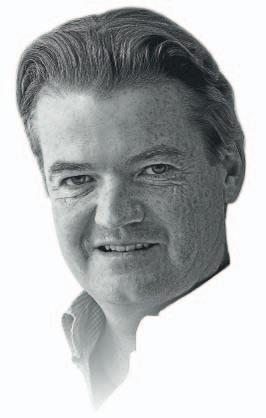
good week bad week
Lindiwe Sisulu’s fall from grace has been a vertiginous plunge into the political abyss. Seldom has a collapse been as dramatic or as sudden. One minute a minister of state, ANC “royalty” and the only survivor of a Mandela cabinet; the next, nothing. All she got for years of service to the party were fewer than 50 votes in a presidential nomination from the floor of the ANC conference this week and a lot of mocking laughter. Not a nice way to leave the building, but the vanity she brought to her jobs may have been her undoing. x

12
A R6.4 BILLION RETAIL DEAL THAT ADDS VALUE TO ALL
.








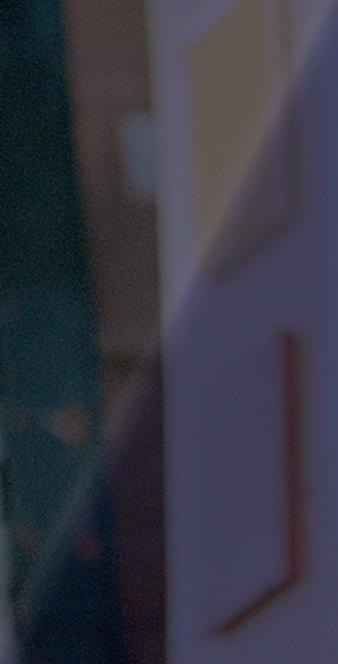


Corporate and Investment Banking














When we partnered with Massmart as advisor on their purchase and subsequent delisting by Walmart, we helped ensure that the outcomes were set to far exceed the significant foreign direct investment of R6.4 billion.

Not only is this landmark deal an overwhelmingly positive vote of confidence in South Africa by the world’s largest retailer, but the substantial capital inflow wilL revitalise Massmart’s businesses – securing thousands of jobs, unlocking value for minority shareholders, and boosting local economies in the process. A deal, in other words, to ensure that nobody is left behind.
To find out more about a deal with benefits beyond the boardroom, visit standardbank.com/cib



The Standard Bank of South Africa Limited (Reg. No. 1962/000738/06).
Authorised financial services and registered credit provider (NCRCP15). GMS-21377 11/22





It Can Be is a registered trademark of The Standard Bank of South Africa Limited.










 Also trading as Stanbic Bank
Also trading as Stanbic Bank
DIGITAL
Solving the Eskom problem with data and maths

How the utility’s crisis played a small part in the formulation of an algorithm to help other companies manage organisational risk
Toby Shapshak
● On a sunny day in Belgrade, sitting at the splendid Kafeterija, Ivor Chipkin was looking over the data from his state capture research, when he and his Serbian wife, Jelena Vidojevic, noticed a pattern.
Despite the romantic setting, the data was prosaic. Charts showed data from Eskom andfrom Russian and Brazilian state power companies.
Afterwards, in a discussion with Vidojevic’s colleagues at the University of Belgrade, they wondered whether there was a mathematical way to describe some of the regularities in the numbers. There was.
“It was the breakthrough moment,” Chipkin tells the FM. “If the phenomena we were looking for could be described mathematically, then we were no longer confined by traditional social science methodologies.”
It would allow different kinds of “evidentiary sources” , such as data from large organisations, to be used in organisational analysis. “It took us on a new, exciting journey.”
At last, something good has come out of those “nine wasted years ” and the financial devastation inflicted on our country, before the social and economic
tsunami of the Covid lockdown hit South Africa’s already onits-knees economy.
Chipkin’s research report of 2017, writtenwith several colleagues, was the first major academic study of state capture in South Africa.
The release of the “Betrayal of the Promise: How South Africa is Being Stolen” report was like exploding a bomb in this country’s politics. It was a defining moment, showing the Jacob Zuma era’s depravity and the extent of the corruption during his presidency.
Chipkin has since written the book Shadow State: The Politics of State Capture, with Mark Swilling.
That moment in Belgrade became the genesis of not only a new way of interpreting state capture data but also an algorithm that Chipkin and co have created to understand organisational risk in other countries and companies.
“I became preoccupied with the question: ‘Could we have seen this coming?’” Chipkin tells the FM.
Vidojevic is also an academic. She met Chipkin while on a fellowship at the University of Cape Town.
“Together we started gathering data on organisations and
interpreting it. Jelena lived through the break-up of Yugoslavia,” he says.
After examining the Eskomrelated data that day in Belgrade and later with some academic friends, Chipkin and Vidojevic realised that neither of them had the maths skills or the ability to work with huge datasets.
They partnered with Daniel Saksenberg and Laurence Rau in Joburg and formed a new company, Safe Passage. Chipkin says the company offers a “safe passage through these stormy times”
Safe Passage has a novel approach to analysing a company, a country or even just a department.
It looks at a range of data to predict whether that organisation has the capacity, intellectual property and wherewithal to deliver on its business plan and objectives.
“We take and model sources of data from all over the organisation, including financial and human resources data, to produce an overall view of the company or department or office.
“Most importantly, the combination of data modelling and social science techniques means we can tell the differ-
ence between a mere correlation and a causal relation,” he says.
Traditional organisational risk assessment tools largely use financial data. “Yet financials are the fire after the reaction,” says Chipkin.
“In a nutshell, we have produced a way of monitoring and predicting organisational risk. It may be a world first.”
Safe Passage’s work on Eskom one of the worst sites of corruption is an example. The energy supplier battles to keep the lights on and service its debt from its declining revenue.
Eskom dropped the country to stage 6 rolling blackouts last week and after political pressureCEO André de Ruyter has resigned.
“We found a correlation between the deterioration of the technical performance of Eskom the number and frequency of boiler repairs is a good measure of the performance of a power station, for example and instability in the senior management. If this sounds obvious, it is not,” says Chipkin.
“In Eskom there used to be a saying: ‘There is God and then there is the power station manager.’ With their own manage-
14 14 financialmail.co.za . December 22 - December 28,2022
ment teams, power stations mostly operated autonomously from the general Eskom management. These power station managers not only took operational decisions like the temperature of boilers but played a key role in the procurement of coal and in adapting systems based on the quality of the delivered coal.
“In other words, if there was turbulence in the general management of Eskom it shouldn’t have affected operations in the power stations themselves directly.” Yet Chipkin and co’ s modelling showed that from about 2008 there was a direct correlation.
“What was going on?” Chipkin wondered. “Essentially, from about that time a new Eskom management began to centralise decisions that used to be the domain of power station managers. It was done ostensibly to improve efficiency and to drive organisational transformation.
“So as the senior management was ‘captured’ and became unstable, this turbulence was transferred directly into the power stations themselves. This is at the core of Eskom’ s current problems. The capacity of the power stations has been hollowed out.”
It seems fitting that, having caused so much damage, Eskom’s issues have unwittingly and indirectly played a small part in the development of an algorithm to help other companies manage their organisational risk.
Chipkin says: “What excites me the most is that the methods and technologies we have developed are largely born from our experiences growing up in societies in transition, undergoing major political and institutional change.
“These experiences provided not simply the impetus to innovate methodologically, they helped us develop the very tools themselves.” x
PATTERN RECOGNITION
The year Big Tech lost its
Amazon shed $1-trillion in market value and Facebook has dropped 70% since renaming itself Meta
‘
big’
What is the biggest tech story of 2022? Was it Elon Musk’s astounding offer to buy Twitter for $44bn, or Amazon’ s $1-trillion loss in market value? Or Tesla’s $500bn halving of its value since Musk announced his plan to buy the “digital town square”? Or Facebook losing 70% of its market value since changing its name to Meta in October 2021?
This is the year Big Tech became just tech.
The market losses have been eye-watering. Even Apple is feeling gravity catch up with it as it tries to escape the pull of the post-Covid economic slump and rampant inflation.
After two years of work from home and a surge in online activity, people have returned to their offices and malls, and to socialising in real life. Laptop sales have plummeted, as has time spent online. As inflation pushed into double digits in the US and Europe, advertising spend started drying up at the same time as the toxicity of social networks reached new lows.
It didn’t help that US lawmakers have finally woken up to the rampant monopolies that Silicon Valley has created and maintained at the expense of the world’s privacy by crushing the innovation of other tech startups.
The destructive effect brought about by several dominating behemoths in the broader tech landscape is now apparent.
Facebook was able to neuter competition from then nascent start-ups like Instagram and WhatsApp by buying them as subpoenaed e-mails by the US Congress have revealed. As Marc Zuckerberg wrote in a 2008 e-mail: “It is better to buy than to compete.”
Record fines have been imposed by the EU’s competition watchdog on Google for its data practices, while Facebook and Instagram have also been sanctioned.
There is an inescapable conclusion that the tech industry will be subjected to much greater oversight by US authorities in future as the numerous lawsuits by attorneys-general and the US justice department gather strength.
The biggest story of the year is arguably the implosion of cryptocurrency exchanges, with the notable nadir being the wholesale destruction of value by FTX, once valued at $32bn and now worth nothing.
This year crypto has lost more than $2trillion in value and the idea that it’s a viable alternative to fiat currency or traditional investing has been trashed. Millions of hapless retail investors lost everything after foolishly sinking their life savings into inflated crypto ventures that were heavily punted by wellpaid celebrities. FTX founder and CEO Sam Bankman-Fried, having lost his own $16bn fortune, can apologise as much as he wants; the damage is done.
The lawyer who helped clean up the mess left by Enron’s financial schemers says FTX is the worst he’ s ever seen.
Crypto, in its current form, is a classic Ponzi scheme: offering unrealistic returns and rewarding those who got in early. As Bankman-Fried can now tell you. Famous for his wild hair and for playing online computer games while doing calls with investors, he’ s been indicted on fraud charges in the US. The clue is in his surname: he is truly “fried”. But not as badly as the tens of millions of people from whom Big Tech has stolen their privacy, and, sadly, in many cases, their personal wealth too. x
Shapshak is editor-in-chief of Stuff.co.za and chief commercial officer of Scrolla.Africa
December 22 - December 28,2022 . financialmail.co.za

15
123RF
Toby Shapshak
BY THE NUMBERS
SMOKING: IN ALMOST ALL COUNTRIES MEN SMOKE MORE THAN WOMEN
South Africa, with its tough anti-smoking laws, is 22nd on the world smoking table. According to the World Health Organisation, 6% of South African women smoke and 34% of men. The WHO data includes people of 15 and older
Population
men who smoke
% of women who smoke
Source: Our World in Data
HOT PROPERTY
WHERE: George, Garden Route
PRICE: R9.595m
WHO: Seeff
Set in Kingswood Golf Estate with panoramic mountain and fairway views, this family home has five bedrooms, 4½ bathrooms, extensive open-plan living and dining areas, as well as a study and storeroom. The large patio has a built-in bar and braai, card room and jacuzzi, which overlook the pool and a landscaped garden.
WHERE: Die Boord, Stellenbosch PRICE: R38.5m

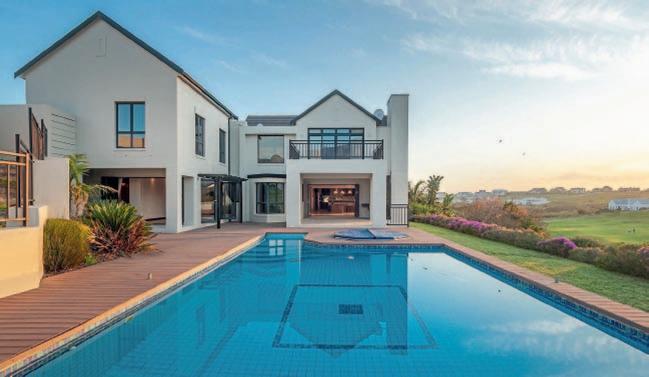
WHO: Pam Golding Properties
This contemporary residence with mountain views is set on the De Bosch lifestyle estate, with more than 800m² under roof including four en suite bedrooms, multiple living areas, entertainment bar and frameless glass stacker doors that open to a pool and lawn. There is a separate cottage with its own kitchen.
financialmail.co.za . December 22 - December 28,2022
WHERE: Camps Bay, Cape Town PRICE: R100m

WHO: Seeff
Overlooking Glen Beach, this beachfront bungalow offers spectacular ocean views and has five en suite bedrooms, various formal and informal living areas, a modern kitchen with topof-the-range integrated appliances, and a sunroom that opens onto an entertainment and pool area with direct beach access.
16 16
4% 71% 68% 52% 20% 17% 2% 13% 0% 48% 48% 47% 44% 43% 42% 13% 19% 3% 41% 1% 12% 40% 41% 39% 6% 7% 39% 36% 20% 28% 35% 35% 34% 1% 7% 33% 30% 27% 29%
20% 10% 32% 8% 32% 2% 6% 2% 1% 49% 41% 13% 41% 34% 28%
13%
% of
Indonesia Bangladesh China Nepal Egypt Vietnam MalaysiaMadagascar Turkey Thailand Russia India AlgeriaUkraine Philippines AfghanistanSouth KoreaIraq France Uzbekistan South Africa Pakistan Yemen Japan SpainArgentina US Poland Myanmar
29%
18% 6%
PROFILE
Health boom for ‘boom’
● Gabriel Theron is not someone who is easily put off. So when his efforts to raise R500m and list on the JSE failed recently, he dismissed the setback as merely “disappointing”
He tells the FM that it has not changed his goals for a company that has bet the house on cannabis.
It’s the healing potential that excites Theron about the once notorious herb, which has undergone an image makeover from dagga, a pot-smoker drug, to a plant with “endless medicinal possibilities” and its more acceptable appellation: cannabis.
This is why, in 2018, Theron founded Cilo Cybin Pharmaceutical to develop cannabis as a viable mainstream pharmaceutical alternative to other drugs on the market.
Theron was hoping for the listing to act as a “springboard” but is reconciled to the company now moving “a bit slower” “Maybe that’s not a bad thing because it means we can put our foundations down properly and secure the revenue streams and grow the company organically for the next two years,” he says.
He says there was a lot of interest from about 2,000 retail investors and the company raised just over R20m. He says there is still work to be done to
break down negative perceptions about cannabis. “The first thing people think is cultivating it and smoking it,” he says. Only later do they consider its medicinal benefits.
Theron has had a varied career since obtaining a BCom Hons. He worked in the beer industry as an internal auditor with SAB, in forestry as an acting CEO of the South African Forestry Company Ltd and as an entrepreneur in the IT field.
Theron says he used cannabis “probably three or four times during university”. Some years later he discovered that the drug had qualities which were helpful and that was why he went on to found Cilo Cybin, a company that combines biohacking (lifestyle changes to improve health), biotech and pharmaceutical methodologies to provide health-care solutions.

“The industry is very interesting because you have those guys with the dreads and the whole lifestyle: the hippie sitting here with bare feet. You have that big time. But then you have the corporate guys coming in saying: ‘Hey, this is a really good business opportunity if you can run it like any other business,’” says Theron.
The second category is where he fits in. He emphasises that his uses of cannabis-
related products are for longevity. They are not psychoactive, which alters brain functions and behaviour. “They are for boosting longevity and performance. That is what I will use, and I have been using that for the past four years, every day.”
Theron says Cilo Cybin is getting ready to hit the markets in South Africa once the law and regulations allow it.
It is also looking to profit from the global cannabis market, with the company having already exported its first batch of flowers so as to be ready when Europe opens up cannabis entirely, which is expected by 2025.
President Cyril Ramaphosa, in his state of the nation address this year, said the government would review policies and regulations affecting industrial hemp and cannabis to exploit its economic potential. He said it could create about 130,000 jobs, with the National Cannabis Master Plan adding about R28bn to the fiscus.
The “Global Cannabis Report” by New Frontier Data estimated that illicit cannabis sales in South Africa were more than $1bn and could reach $1.5bn by 2025.
The World Health Organisation estimates South Africa to be the third-largest illegal can-
nabis producer in the world already, with about 2,500t of cannabis grown each year.
It’s that potential, Theron says, that can be legally unlocked. “On the one side they want to legalise it so that they can tax it. Cannabis is an interesting environment because it has the recreational side to it and the medicinal side. From a hemp side, I think that’ s a nobrainer, they have to open that side,” he says.
Hemp, one of the fastestgrowing plants in the world, can be refined for a variety of commercial items, from paper, rope and textiles to animal feed and biofuel.
Theron says South Africa, along with Lesotho and Colombia, is well placed to take advantage of a freed-up cannabis trade worldwide. He says the three countries have perfect growing conditions and are able to produce at low cost. “We are just super-competitive,” he says.
“We’ve exported our first batch. I believe we are the only guys in South Africa so far who have exported a final label product to Australia, meaning it’s got a label on it and it’ s ready for the consumer.”
That’s all fine for Down Under, now he needs the legal permission to go ahead at home. x
financialmail.co.za 17
December 22 - December 28,2022 .
GabrielTheron
Founder of Cilo Cybin Pharmaceutical
Entrepreneur extols the healing potential of cannabis
Jan Bornman
BOARDROOM TALES BY ANN CROTTY

China’s tough Covid act flops




































The next few months will be difficult for the country’s leader, Xi Jinping, to navigate
Do you remember the Wuhan pool party video of August 2020?
Thousands of partygoers were packed like sardines into a water park in scenes that would have raised serious health concerns, even if this had not been Covid ground zero.
In January 2020, Wuhan was the central China city that had announced the world’ s first Covid case, followed by the first Covid lockdown. For weeks, there was no sign of life in any of the city’s public spaces. Its 11-million residents were locked behind firmly closed doors. By March the lockdown started to ease and in April it was officially lifted. But in May six new cases were recorded. Within weeks, the entire Wuhan population was tested and the outbreak was soon back under control.
The Wuhan Maya Beach Water Park party was a celebration of life returning to normal, a statement that Covid could be controlled, at least by the Chinese. The rest of the world, still trapped in its own version of lockdown hell, looked on in a far from celebratory mood.
China, which had been the source of thevirus and had refused to share any information with the world that might have helped deal with it, now wanted to share its coming-out celebration with the rest of us.














It was remarkably insensitive. As were the following two years when, as the death toll
mounted across the globe, Chinese news clips of a Covidfree country were shared with the world. Unlike the Western democracies, China had conquered the virus because it had an authoritarian, Communist Party-led government that looked after its people and, unlike the decadent West, could enforce tough lockdown regulations when necessary.
Well, it turns out the Covid story was far from over in China. For much of 2022, when the rest of the world was tentatively emerging from the pandemic, China’s major cities were crippled by severe zeroCovid lockdowns. Economic and social life ground to a halt. For months, the government tried to neutralise the mercurial virus with the same severe and inflexible measures that had worked two years earlier against the alpha and delta variants. But the new omicron variant was far too transmissible to be neutralised by even brutal lockdowns.
However, President Xi Jinping was determined to cling to zero Covid, particularly in the run-up to the Communist Party congress in October.
After the congress confirmed him as China’s most powerful leader since Mao Zedong, Xi seemed to relax a little.
It was becoming increasingly difficult to ignore the mounting social and economic costs attached to his Covid policy, which had not only stopped much of social and economic life but had bankrupted many of the provincial
governments that had funded all the testing and lockdowns. Demonstrations, previously rarely seen, in the streets of major cities, and disturbing clips of workers trying to flee lockdown at a factory supplying Apple, may also have helped Xi reconsider his policy.
In November, the lockdowns were eased and there were signs of some tolerance for Covid infection. And on December 13, without any warning, the Covid tracking app which had been used to closely monitor China’s citizens for almost two years went offline.



In the brief time since, Covid has run riot. Media reports suggest as many as 30% of the population now has Covid. And, assuming Xi doesn’t do another U-turn, it’s expected to rise as events that occurred over two years in open countries are condensed into a sixmonth timeline. One commentator warned not of an exit wave but an exit tsunami of infection. She warned of the political fallout, particularly for Xi, as a result of the dramatic shift in public messaging. One day Covid was hugely dangerous and had to be contained at any price; the next it was, well, no big deal. Can other “big government messages” also
123RF/rizqy29
be ignored?
But Covid is a big deal. An estimated 1.5-million people are expected to die from it. Not a big figure if you’re looking at a population of 1.3-billion, but huge if you’re the victim or a relative.
Remarkably, during the past two years the Chinese government did little to build up health-care capacity or encourage vaccinations, especially among the elderly.
But here’s the really scary part for the rest of us who looked on at the 2020 pool party: one epidemiologist interviewed by The China Project news platform said there is a high possibility of the virus now evolving into a more dangerous variant. What are the chances of the Chinese government, which has the necessary genetic testing capacity, behaving as responsibly as South Africa did a year ago?
We probably know the answer to that.
And with even paracetamol difficult to come by, many Chinese will be looking abroad for refuge. Will we be prepared? x
18 18 financialmail.co.za . December 22 - December 28,2022
FEATURES
An in-depth look at the hot button subjects of the day in SA and around the world


20 THE TEFLON PRESIDENT
It’s been a triumphant few days for Ramaphosa, who was hours away from resigning three weeks ago. Now will he finally do something?
32
RIP FOR RET CHANCERS?
The ‘RET forces’ suffered a thumping defeat at Nasrec. Opinions are split over whether it is safe to declare it buried forever
34
EVOLUTION OF AN ANC BULL-Y
Mantashe, the ‘fossil fuel dinosaur’, seems set for a few more years in the top tiers of government, to the dismay of his detractors


38
THE WAR ON YOU
Governments are cracking down on journalists the world over. When politicians attack media freedom, they’re attacking you
December 22 - December 28,2022 . financialmail.co.za 19
REMARKABLE RESURGENCE OF THE TEFLON PRESIDENT

It’s been a triumphant few days for Ramaphosa, who was hours away from resigning three weeks ago. Now that he has a free hand, will he finally do something?
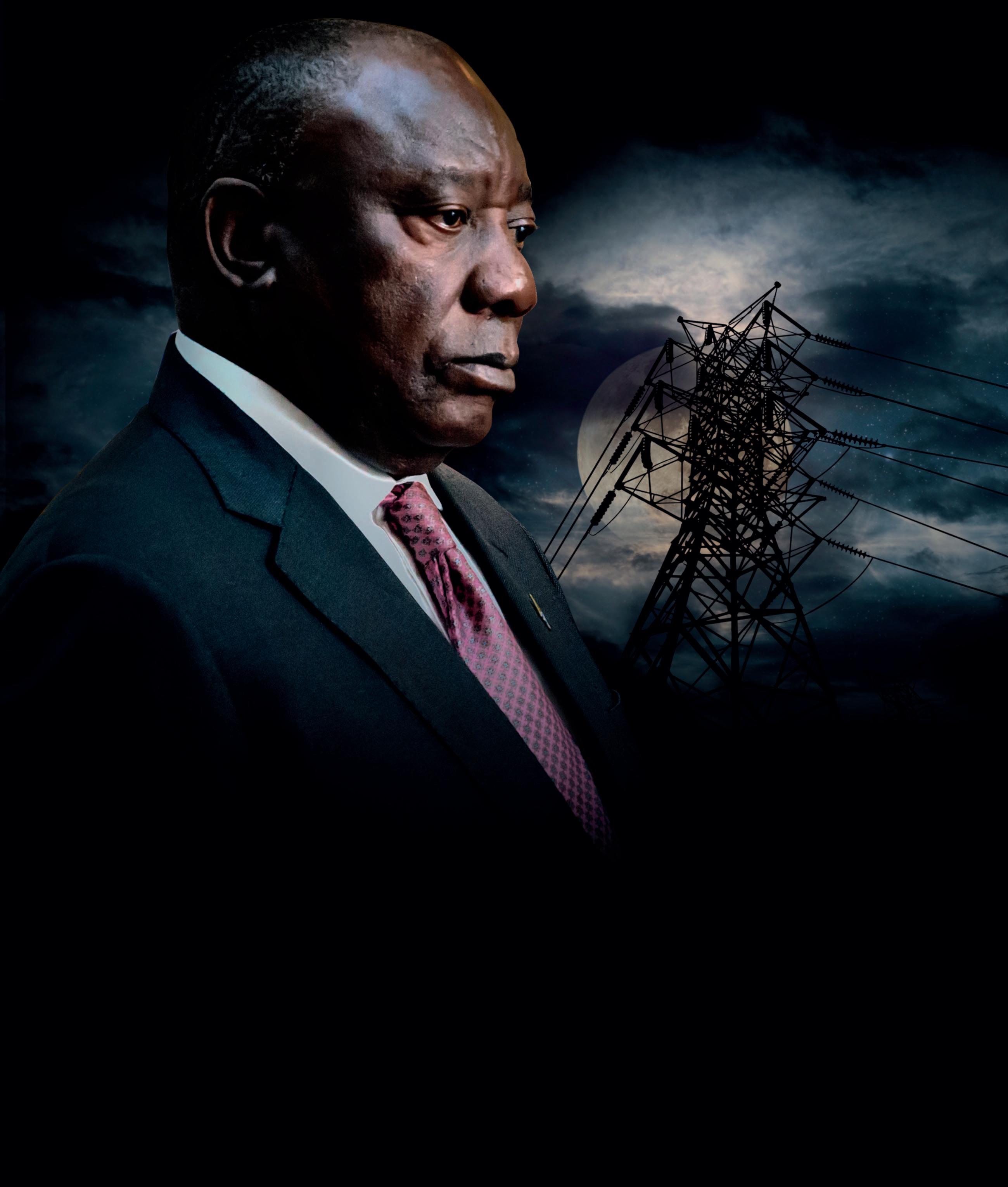 Natasha Marrian
Natasha Marrian
In the dusty Northern Cape town of Colesberg in May 2017, Cyril Ramaphosa drew on the myth of an eagle perching high on the stony cliff face of the mountains, when it feels it has lost its strength and prowess. The majestic bird, he told the gathering of ANC members at the province’s elective conference, rips off its beak and its talons and waits for regrowth.
“It goes through this bloody process, it stays for months reflecting ... and renewing itself,” he said.

“Once it comes back, its claws grow out again and it comes back stronger.”
This, he said, is what the ANC must do. And it was upon that promise that he was elected to lead the party in December of that year.
Unfortunately for Ramaphosa, during the past five years, there has been much gnawing and clawing, but very little renewal.
True, the ANC did suspend its errant secretary-general Ace Magashule, implement its step-aside rule and brought in a cracker of an electoral commission (headed by former president Kgalema Motlanthe) to stem the onslaught on internal democracy in the party. But it was clear this wasn’t enough.
The most glaring signal of this has been the onslaught on Ramaphosa himself, which made 2022 his annus horribilis. This says much, given that 2020 saw him presiding over the country during a pandemic, and 2021 was headlined by bloody unrest.
Yet Ramaphosa has somehow managed to end the year back on top. This seemed exceptionally unlikely in June, when the Phala Phala saga began.
At the time, it emerged that former State Security Agency (SSA) boss Arthur Fraser had laid criminal charges against Ramaphosa over a robbery at Phala Phala, a Limpopo game farm owned by the president.
Fraser accused Ramaphosa of money laundering, kidnapping and corruption, alleging he had stuffed $4m into a couch at the farm, which was later stolen. He claimed the president tasked his head of security Wally Rhoode with tracking down the thieves who were then kidnapped, interrogated, and bribed not to
talk about what had happened.
It was a tall tale one which could have been cleared up easily if there was no wrongdoing by the president. But Ramaphosa chose to remain mum, arguing that it was under investigation.
Opposition parties and his enemies, inevitably, pounced. It all culminated in November with a report by an independent parliamentary panel headed by former chief justice Sandile Ngcobo, which found there was “prima facie” evidence of wrongdoing by Ramaphosa and that he should face an impeachment inquiry.
The damage to Brand Ramaphosa in those six months was immense. He knew it too, drafting a resignation speech he was hours away from giving.
To make matters worse, in the same month, the power crisis deepened, culminating in stage 6 loadshedding and Ramaphosa angered business and ordinary South Africans by taking two weeks to respond. It remained the ever-present critique of his presidency: dawdling while the world burns.
Yet, Ramaphosa has prevailed. If Jacob Zuma was seen as the original Teflon president, Ramaphosa is making a strong claim to that title now.
His comeback began in earnest last Tuesday, when parliament the ANC, in particular voted against the Ngcobo report recommendations for an impeachment inquiry.
Then, after a tense two days of horse-trading, deals, and flat-out panic, Ramaphosa emerged victorious against his former health minister Zweli Mkhize for a second term as ANC president.

It is the definitive proof to the cliché that a week is truly a long time in politics.
Suspended animation
A more critical question is, will Ramaphosa finally display the sort of leadership everyone expected from him during the first term?
Sadly, the early indications are that his poor communication, or willingness to make himself accessible, aren ’t going to change any time soon.
December 22 - December 28,2022 . financialmail.co.za 21
Dream team? The ANC’s new top seven after their election at Nasrec, Joburg Reuters / Sumaya Hisham
The FM requested an interview with him a month ago, and was denied. Questions were then sent to his spokesperson Vincent Magwenya, who said he was unable to respond as he was writing Ramaphosa’s closing address to the ANC conference.
Still, others believe his victory bodes well for the economy.
“What it does mean is you will have what we call continuity from a policy perspective and he can continue with the reforms he has been championing, with a stronger mandate,” finance minister Enoch Godongwana tells the FM.
Certainly, the markets responded well to his re-election: the rand surged, firming by 1.78% to R17.24 to the dollar.
This is more because of his reputation as a pro-business leader, since there was little feedback from the ANC on its economic policy discussions at the time of going to print.
Rather than policy, the bulk of the five-day conference was spent on ironing out glitches in registration and trading for positions. By the final day, there was still no sign of what, if any, economic policy shifts would come out of the gathering.
Some expect Ramaphosa’s second term to be about securing his legacy.
“The past five years were quite difficult for him, if you remember the outcome of 2017,” says deputy minister in the presidency and NEC member Zizi Kodwa. “To an extent, it immobilised him from taking decisions. I think this overwhelming reaffirmation affirms his renewal agenda.
“ The president will have no other reason now to doubt in terms of giving leadership on issues of renewal.”
Kodwa says Ramaphosa now has strong characters behind him, including Fikile Mbalula, who was elected secret-

ary-general, so he “doesn’t have to look over his shoulder”
The president’s confidant Frans Baleni tells the FM that ensuring his legacy has been fundamental to Ramaphosa, from his formative years in the 1980s in the National Union of Mineworkers to his role in drafting the constitution.
“He must leave a legacy wherever he goes. He told us two things when he formed the NUM: the first is that when he leaves, the NUM would be led by a mineworker and second, that workers would have a retirement fund they could count on, ” Baleni tells the FM. “He delivered on both.”
Baleni, who followed Ramaphosa as a general secretary of the NUM, says that the retirement fund started by Ramaphosa all those years ago, before the end of apartheid, is now worth billions.
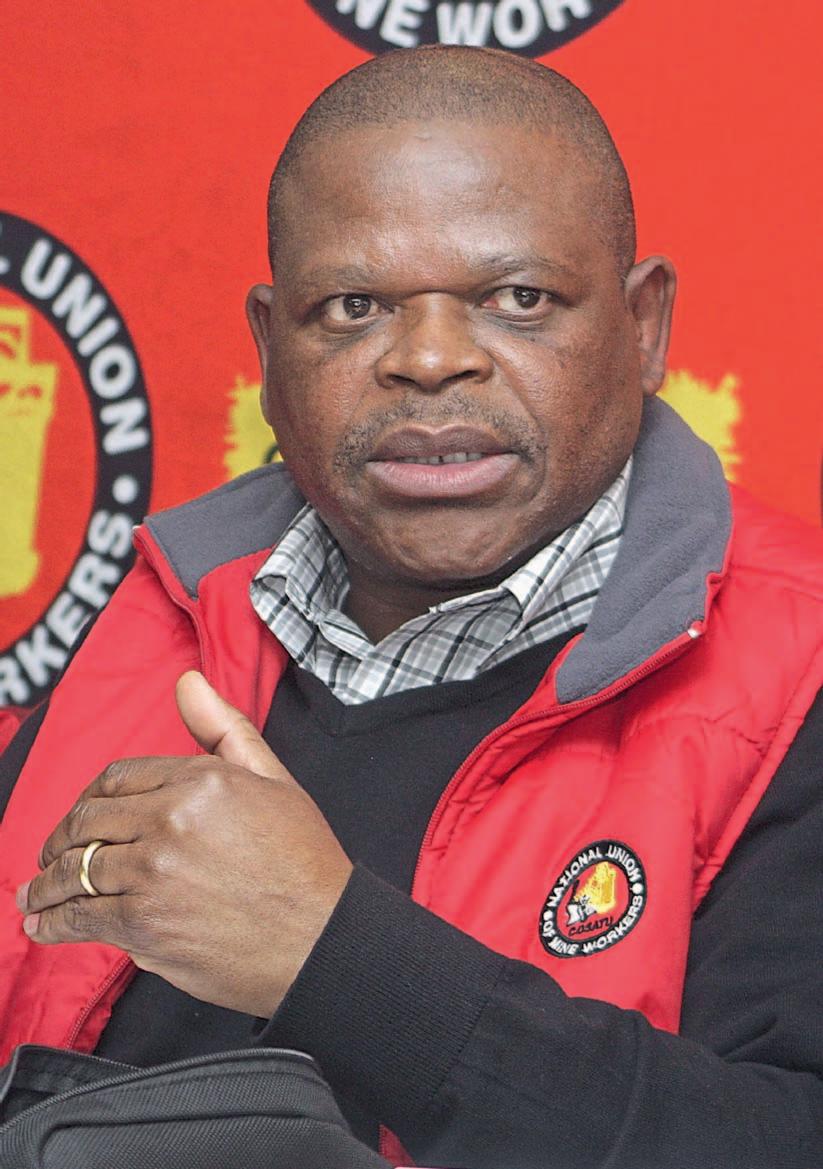
“Under Ramaphosa, the NUM was the first union to embrace the Freedom Charter nonracialism in essence and Ramaphosa was at the forefront.”

Axing the dead wood Kodwa and Baleni agree that Ramaphosa was severely constrained during his first term. But now, unleashed from factional shackles, will he perform any better?
Baleni responds: “He ended up accommodating many of these characters for the sake of unity and renewal. In his first term, he has had to focus more internally
in the ANC, than externally in the country, but he is no longer constrained by that.”
So what would that look like, in practice?
First, a cabinet reshuffle is on the cards. Insiders tell the FM it is likely to happen before the state of the nation address in February 2023. He ought to do it sooner: Mbalula, who is also transport minister, told the media after the ANC conference that if it were up to him, he would leave his government post immediately to take up his full-time ANC top job.
Mbalula’s exit, many critics would say, is no loss for government.
But Ramaphosa would also have to find a place for newly elected ANC deputy president, Paul Mashatile, who replaces David Mabuza. It is understood that Mashatile would take up the deputy president role in government soon.
Then there is the issue of those ministers who campaigned against Ramaphosa: tourism minister Lindiwe Sisulu and co-operative governance minister Nkosazana Dlamini Zuma.
Insiders have told the FM, on condition of anonymity, that Dlamini Zuma is preparing to resign.
She had openly voted in favour of an impeachment inquiry against Ramaphosa in parliament, in defiance of the party line.
“This time, it has to be a reshuffle that stamps his authority,” one ANC official tells the FM. “He does not have to be like Zuma, who reshuffled every six months, but he has to draw a line in the sand against those who don’t want his agenda.”
It’s easy to see which of Ramaphosa’ s opponents would go, but what of his allies?
Gwede Mantashe is at the helm of the mining & energy department, but he has been an eyesore in his portfolio).
The FM has been told by sources close to his department that Mantashe has already warned his staff that he may be shifted. From Ramaphosa’s side, it is understood there is discomfort around allegations that Mantashe’s wife plays an inappropriate role in his department a conflict flagged by those in the mining sector too.
Insiders say we’re also unlikely to see the exit of the woefully inept police minister Bheki Cele, who bafflingly still commands the confidence of the president.
When it comes to both Mantashe and Cele, a reshuffle will be seen as a litmus test of Ramaphosa’s resolve to continue
22 financialmail.co.za . December
- December
22
28,2022
Frans Baleni
Business Day / Puxley Makgatho
Zizi Kodwa
Sunday Times / Masi Losi
his reform agenda, now unhindered by internal party dynamics.

Ethically barren
But reforming the state is one thing; fixing the ANC will be much harder.
Depressingly, 43% of ANC delegates felt confident enough to vote for Mkhize, despite his alleged complicity in looting the fiscus during the pandemic, in the Digital Vibes saga.
It illustrated that even Ramaphosa’s supporters were willing to embrace the compromised for the sake of political expediency. This was underscored by the nomination, from the conference floor, of former energy minister Tina Joemat-Pettersson.
Joemat-Pettersson, who was implicated in the selling of SA’s strategic fuel reserves, was also Zuma’ s point woman in signing the suspect nuclear deal in 2015. Yet she obtained overwhelming support from Ramaphosa’s faction just shy of winning the post of deputy secretary-general from Nomvula Mokonyane.
Mokonyane herself is notorious for receiving braai packs, expensive whisky and a Louis Vitton handbag stuffed with R300,000 in cash from prisons company Bosasa, according to testimony at the Zondo commission.
And yet Northern Cape premier Zamani Saul tells the FM that Ramaphosa’s renewed mandate is a “devastating blow for the anti-renewal forces”
“It is a watershed outcome, a major devastating blow for pushback against renewal. They won’t recover from this,” he says. “From January I believe we will start to see major changes.”
Saul says the outcome of this conference is “in sync with the national mood” against corruption. And Ramaphosa has “nothing to lose” by implementing these changes, he says.
“These next five years are a legacycreating moment,” he says. “What he should be doing is to be decisive. Because with the state of the organisation and the country, we don’t want leadership that prevaricates around challenges.”
The single biggest challenge lies with Eskom, and the power crisis.
Curiously, during the conference, Ramaphosa deployed the army to protect Eskom infrastructure from acts of sabotage a long-standing request from Eskom’s management.
Kodwa tells the FM that the move was long in coming.
“No doubt there are elements of sabot-
age at Eskom. You don’t need intelligence to tell you that. There are elements who are driven by ulterior motives, to undermine the leadership of the country, to undermine the whole management,” he says.
He says that when five power stations trip simultaneously, the evidence seems pretty clear that there is co-ordination among saboteurs.
“We are going to Christmas next week, and South Africans have loadshedding. It’s not just killing households, small businesses, it’s also killing investors and I think the decision the president has taken to deploy the army, it will normalise the situation in the short term,” he says.
But, Kodwa says, there must be a concerted effort to “deal with” those elements trying to destabilise the utility further.
Will Gordhan stay?
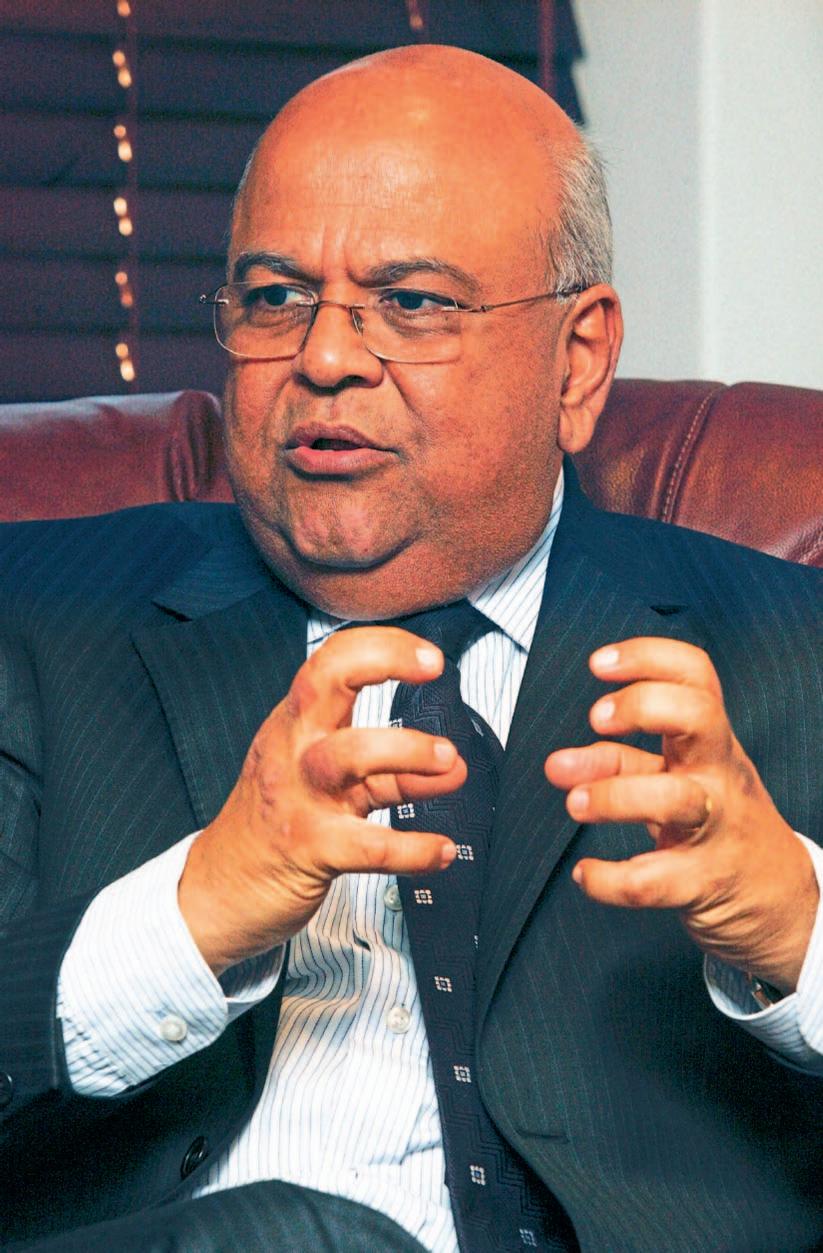
So what will become of public enterprises minister Pravin Gordhan, the politician responsible for Eskom and other state-owned entities, in this new dispensation?
Gordhan kept a low profile at the conference but after a request from the FM for an interview, security officials ushered the FM into the area closed
off to journalists for a sit-down with the minister.
He declined to stand as a member of the ANC’s top leadership structure, the NEC. He says he will always serve the movement, but his time on the structure is up.
Asked if he will retire from the cabinet too, Gordhan is coy in his response. “We shall see,” he says, adding that ministerial posts are the prerogative of the president.
Gordhan no doubt has sleepless nights over Eskom there have been moves for months already to move the utility’s oversight into the energy ministry.
But he argues that Ramaphosa’ s administration has been on the receiving end of a series of political, policy, administrative and corrupt missteps by various ANC-led administrations.
André de Ruyter’s resignation last week was, in part, due to a lack of political support, but Gordhan tells the FM that he had always backed the CEO, who will now leave in March.
“I backed him, the president backed him ... what is important now is the new CEO will have the full backing of the government,” he says.
He says Eskom’s board has already begun the search for a new leader for the utility, preferably an engineer.
Gordhan tells the FM the search will be both local and international, adding that there are dozens of talented SA engineers all over the world working in power utilities from the Philippines to the United Arab Emirates.
The government is hoping a suitable, patriotic South African with the necessary qualifications and skills will be up to the almost impossible task of turning Eskom around.
It is a tall task, but an urgent one. Ending load-shedding is key to turning the ANC’s electoral fortunes around.
Godongwana, however, tells the FM that “Brand Ramaphosa” is still the best option for the ANC in the lead-up to the 2024 election.
Ramaphosa himself will surely never have imagined this trajectory when he first contested that ANC election in 2017.
Perhaps his eagle metaphor from five years ago is still apt: now that the ripping and bleeding has ceased, can he emerge stronger, more powerful, and more decisive?
Or will the party’s slow bleed just continue, ensuring that renewal and reform remain as mythical as his eagle’ s rebirth? x
December 22 - December 28,2022 . financialmail.co.za
23
Pravin Gordhan
Gallo Images / Foto24
/ Bongiwe Gumede
HOW TO BLOW HALF A TRILLION
The controversial Tesla and SpaceX CEO has had a torrid year, with his car company losing half its value after he bought Twitter
Shapshak
There’s little dispute that Elon Musk has been the business personality about whom most column inches have been written this year. But whether it’s been a successful year for him is adifferent debate.

As it is, his purchase of Twitter for an overpriced $44bn might ultimately be Musk’s Waterloo.
Officially, he took over Twitter on October 27, after trying to back out of the deal by claiming the social platform had misrepresented its spam bots. But his impulsive, scattershot decisions since then have wrought havoc on an already dysfunctional company.
Since Twitter is no longer publicly traded, you can’t translate his ruinous few months into an actual dollar loss, but the contagion has seen Tesla’s share price tumble 29.3% since then. Since he first said he wanted to buy Twitter in April, Tesla has lost 52%.
Musk’s acolytes claim there is some genius strategy at work. But most rational people including now-alienated advertisers, who account for 90% of Twitter’s income can see that Musk is making it up as he goes along.
The Twitter Blue verification plan is a case in point. Musk proposed that anyone who can pay $8 a month can have a verified account. After an outcry, this plan was hauled back to the drawing board, relaunched, paused, then embellished, reintroduced and paused again.
It all began in rocky fashion when he immediately fired half of Twitter’s staff by e-mail, then rehired key engineers and fired most of the contractors. This destroyed morale.
Musk describes himself as a “free speech absolutist”, hence his plan to reinstate the account of former US president Donald Trump. But his naive and impractical attempts to transform Twitter reveal alack of pragmatism and vision.
What we’re watching, says NYU Stern marketing professor Scott Galloway, is not a company unravelling, but Musk himself coming undone.
In recent weeks, he has restored the accounts of several people who spread Covid misinformation, retweeted a patently false story from a notorious crackpot news website and suspended the accounts of several journalists.
The MIT Technology Review says that Musk’s Right-leaning attitude has led to a shift in Twitter’s content, with “him at the centre of conversations once kept on the fringes of Twitter”
The authoritative publication used Indiana University’s Hoaxy, which tracks interactions between accounts to track how information spreads. “The results hint at Musk’s new role in this network: as effectively a hall monitor for the far Right,” it says.
Nor has Musk’s chaotic management of Twitter been good for hisbusiness reputation, or his personal fortune.

Having become the world’s richest person based on the soaring stock of his electric vehicle (EV) company Musk has lost that crown, as Tesla shares have plunged. In October 2021, Tesla’ s market value hit $1-trillion, but now it’ s $470bn, pushing Musk’s fortune down by $107bn, to $164bn.
Musk predicted an “epic” year for the EV maker but it’s having anything but that. Back in April he predicted that 1.5million cars would be shipped, but Tesla may fail to break the 1-millionbarrier. It’ s now offering a $3,750 discount for buyers to get their cars this year.
Tesla’s Gigafactory in Shanghai, which shipped 52% of all its cars in 2021, has beendisrupted by China’sCovid shutdowns and is reducingoutput by 20%.
“You’re starting to see some demand cracks,” said Wedbush senior analyst Dan Ives.
Meanwhile, Ford, Volkswagen and General Motors are ramping up their electric car offerings. Tesla’s head start is being eroded.
When Musk’s Twitter acquisition began going pear-shaped, Ives said: “In what has been a dark comedy show with Twitter, Musk has essentially tarnished the Tesla story/stock and is starting to potentially [affect] the Tesla brand.”
But this mad-haste approach is characteristic of Musk’s early start-up years, says his unofficial biographer, Michael Vlismas.
“I don’t think he’s lost his mind,” Vlismas tells the FM. “As for a mistake buying Twitter, it depends. Billionaires have bought newspapers in dying print markets and have also had questions asked of them as to why. Twitter keeps Musk relevant daily. Relevance creates a platform to do what he wants to do.”
Musk makes grand claims he says his mission is to “preserve human consciousness by taking us out there among the stars”. He uses these to give people “inspiration”, says Vlismas.
SpaceX, one of his other companies, remains a serious going concern that resupplies the International Space Station.
“Twitter will be a means to an end,” says Vlismas. “The dream is to find a solution to manage social media for the good of society: the protection of free speech, in his view.”
Vlismas, who went to the same Pretoria Boys High School as Musk, thinks Musk’s Twitter foray is a distraction from his plan to counter climate change, through EVs and battery storage.
“I would far rather have an Elon Musk thinking about how to improve humanity in a real sense which I believe he genuinely wants to do than focusing all of his energies on a social media app.”
Wouldn’t we all? x
24 financialmail.co.za .
December 22 - December 28,2022
Toby
Shapshak is editor-in-chief of Stuff.co.za and chief commercial officer of Scrolla.Africa
BUSINESS
POLITICS
THE MAN WHO (ALMOST) TOPPLED A PRESIDENT
In recent months, Arthur Fraser has had arguably a stronger impact on local politics than anyone first by paroling Jacob Zuma, then almost forcing Cyril Ramaphosa to quit
Arthur Fraser likes to keep out of the public eye. Usually, you only hear of him when he’ s surfaced to drop another political bombshell.
Over a decade ago, he paved Jacob Zuma’s road to the presidency by leaking classified intelligence tape recordings. More recently, he was the architect of Cyril Ramaphosa’s political near-demise, when he charged that the president had tried to cover up the theft of a large amount of dollars from his game farm, Phala Phala.
Events have yet to play themselves out fully, yet Fraser’s bombs this time had Ramaphosa on the verge of resignation two weeks ago. What gave the whole ordeal extra sting is that in June Fraser laid criminal charges against Ramaphosa and released an embellished account of events anchored in truth. Cue probes by the criminal authorities and the public protector.
Yet there remains many unanswered questions about Fraser’s role in this all.
First, the theft of the dollars Fraser said it’s millions, Ramaphosa puts it at $580,000 from a sofa, took place in February 2020 but Fraser only released this information in June this year. This also happened just weeks before chief justice Raymond Zondo released his state capture report, which implicated Fraser in serious wrongdoing during his tenure

at the State Security Agency (SSA).
Still, Fraser’s move sparked a flurry of activity. The African Transformation Movement tried to set in motion impeachment procedures, but the report produced by an independent panel led by retired chief justice Sandile Ngcobo was shot down when the ANC caucus rallied around Ramaphosa.
Despite serious gaps in the report, its appearance is devastating for Ramaphosa, who has built his presidency on fighting graft.
What is intriguing, however, is the extent to which Fraser has melted back into the shadows since. He hasn’t spoken on public platforms or made himself available for media comments.
Only recently did he re-emerge with a legal challenge to the allegations made against him in Zondo’s report, days before the start of the ANC’s elective conference in Nasrec.
The fact that Fraser was even appointed to head the SSA by Ramaphosa’ s predecessor, Zuma, in 2016 was already a surprise, since there were already damning findings of serious abuse against him at the agency.
Zondo’s report said Fraser had been a “law unto himself ” at the agency, and his tenure was characterised by a lack of accountability. The report found that Fraser was at the centre of the SSA’ s capture, which was turned into Zuma’ s personal outfit and used to fight factional battles within the ANC.
This included allegedly interfering with Ramaphosa’s 2017 presidential campaign, and Zondo noted how millions of rand left the SSA headquarters shortly before the ANC’s elective conference in Nasrec that year.
Fraser had also been accused of setting up, together with SSA special operations head Thulani Dlomo, a parallel intelligence structure in the shape of the Principal Agency Network, which used R600m of state funds to create a shadow operation within the SSA to serve the interests of Zuma and his friends.
Zondo also heard testimony on how R9bn of SSA assets were missing or lost in the 2017/2018 financial year, when Fraser was director-general.
But Fraser, in his court papers, argues that Zondo, as well as the commission’ s evidence leader, Paul Pretorius, wanted to silence him and wouldn’t “hear me, as I would have exposed the real puppet masters behind the commission”
Though he supported the establishment of the state capture inquiry in 2018, he said it had breached fundamental ethics and principles. “[I’d] always been concerned about the state of our country and events that would result in democratic reversals and a complete destruction of our country and its institutions,” he said.
His critics, however, will argue that if he feels that way, he sure has found a way to act in direct contradiction of these values.
Aside from Phala Phala, however, Fraser’s other dubious decision was to release Zuma on “medical parole” last year after the former president served just two months of his 15-month sentence for contempt of court. Fraser, at that point, was commissioner for correctional services, a post to which Ramaphosa had, mystifyingly, appointed him.

The courts have now found that parole decision to be “unlawful”
Those who knew the history wouldn’t have been surprised. Fraser met Zuma while in exile, and on his return after 1994, Fraser joined the newly formed National Intelligence Agency.
Initially he was close to former president Thabo Mbeki; his sister, Geraldine Fraser-Moleketi, served in Mbeki’ s cabinet. But by 2009, Fraser was firmly in Zuma’ s camp.
Fraser retired from his job as prisons boss last year, at the age of 57. But don’t be fooled into thinking that “retirement” means he’s stepping back from political life. Expect plenty more grenades from the man who almost forced South Africa’s president to quit. x
December
. financialmail.co.za 25
22 - December 28,2022
Carien du Plessis
This year OUTA scored its biggest victory, when e-tolls were scrapped. But the organisation might not have been around to fight for this if big business, and some medium-sized companies too, had had their way
 Giulietta Talevi
Giulietta Talevi
Athumping victory against Gauteng’s detested e-tolls makes the Organisation Undoing Tax Abuse (OUTA) and its founder, Wayne Duvenage, this year’s FM civil society newsmaker.

The National Treasury’s decision to bin the tolls at last is largely due to OUTA’s 10-year battle against road agency Sanral. Duvenage started the organisation in 2012 with exactly this goal in mind. He tells the FM: “Eventually the government came to its senses and applied what we suggested more than 10 years ago.”
It was, he says, a milestone. “We set out to show the government the power of people if it does not listen.”
While many ignored their e-toll bills, about 15% of Gauteng’s road users were coughing up including big fleet companies. Duvenage says the scrapping of the e-tolls “gives clarity and certainty about this issue”
While the scrapping of e-tolls was OUTA’s initial raison d’être, it became one issue in a much bigger project to tackle government-led tax abuse. And yet, asked whether OUTA’s next war may be a sort of civic-sponsored tax revolt, Duvenage’s response is: “No chance.”
He says: “We’re not trying to drive a mindset of noncompliance in this country that’s the worst thing you want to do. We’re not saying don’t pay your electricity, don’t pay your taxes; what we are saying is stand your ground on bad law.”
He doesn’t support a generalised tax revolt. “All the other taxes you and I pay are not unlawfully imposed upon us. There’s no such thing as a workable tax revolt you don’t want to live in a country where very soon there’s chaos.”
What you do want, he says, is to start introducing “legally applied tax revolts”
DRAWING A LINE IN THE SAND
where the courts rule that local municipalities “are so bad that the citizens are given the right to take over the management of the town”
These are the cases OUTA is now fighting, on behalf of fed-up residents whose towns have been gutted by years of incompetent or corrupt management.
OUTA’s biggest immediate battle, however, is to overturn Aarto’s road traffic offences management system, which Duvenage describes as “unworkable” and “unmanageable”
He expects the Constitutional Court to rule (in its favour) in March. “[The government doesn’t] want to listen but that might be another law that is brought to its knees,” he says.
Craven big business
OUTA’s story is one of resilience. What started with three volunteers, among
them Duvenage, who was then CEO of leasing group Avis, has grown to a fully funded staff of 45 professionals.
It’s no thanks to big business, however. Companies initially keen to support the e-tolls challenge bailed when government pressured them, leaving OUTA with a R4m legal bill in 2013.
But instead of folding, OUTA amended its funding model, re-filed its memorandum of incorporation to become a public benefit organisation and set up a debit order system. It “changed everything” says Duvenage.
Through this OUTA has experienced first-hand how craven big business can be. Part of the problem, says Duvenage, is that large firms stack their boards with the politically connected — “the politburo” who are desperately reluctant to ruffle feathers.
In the case of e-tolls, he says compan-
26 26 financialmail.co.za . December 22 - December 28,2022
CIVIL SOCIETY
ies like Imperial, CMH and Barloworld that were initially gung-ho for the scrap abandoned the cause months in.
“That was shocking and it is still shocking, because business is missing in action when it comes to challenging the government when it gets things badly wrong,” he says.
Take, for example, the disaster that is Durban’s sewage problem.
Why, asks Duvenage, have large hotel groups been so quiet over a wreck that will cost the KwaZulu-Natal economy millions in lost tourist revenue?
Part of the reason, he believes, is that industry bodies like national trade association for hospitality industry Fedhasa have been severely weakened thanks to the withdrawal of big companies in recent times.
That’s to everyone’s detriment, argues Duvenage, who believes strong industry bodies have to stand up to the govern-
ment when the state gets it wrong. “The Tourism Business Council doesn’t like to challenge the government, and we don’t understand why,” he adds.
The simplest reason may be the government’s multibillion-rand annual procurement bill.
But, says Duvenage, corporates “ are also the other side of the corruption coin: the government spends a lot of money on infrastructure, for example, but much of it is wasted because there are so many middlemen who impose facilitation fees, which many businesses disguise as business development or consultants’ fees”
In OUTA’s case, more support from major companies would ramp up its budget to employ staff and take on cases.
At the moment it draws about R3.5m a month from 22,000 debit orders most of them in the region of just R150 each.
Tackling Dudu Myeni

At any one time OUTA has about 30 projects on the go it’s worked through 230 since it began. This includes work on parliamentary accountability, the delinquent directorship case it won against former SAA chair Dudu Myeni and the court case to stop energy regulator Nersa granting Karpowership a licence.
It also stopped the Guptas from taking R1.8bn out of the country in the Tegeta rehabilitation fund matter: “We had to do Gwede [Mantashe’s] job there because [the government was] doing nothing.”
But Duvenage says even the mediumsized firms have shied away from supporting OUTA. “When I say to business: ‘If there’s an organisation like OUTA that’ s challenging corruption and waste oftaxpayers ’ money is it important to you?’ They all agree, and they all like it. And we say: ‘OK, here’s the “join now” button’ But they just somehow don’t get around to doing it.”
If they don’t support the civil activists, he adds, there may, soon enough, not be a country to do business in.
Duvenage is now 62, but says he feels 42, given how invigorated he is by the mission. While it’s frustrating to turn away cases for want of resources, OUTA still energises him.

Paraphrasing Anglo-Irish statesman Edmund Burke, he says: “The biggest mistake is made by those who give nothing because they feel they can give only a little.”
Some people think their R150 won’t make a difference, so they don’t bother donating. “If everyone thought that way we would have to close OUTA down,” Duvenage says. x
KOLISI ’S YIN TO RASSIE’S YANG
The Bok captain’ s performance this year has been high class at the breakdown and in the feared Springbok rolling maul, where the dark arts of the game are practised
For all the World Cup glory of 2019, this year was Siya Kolisi’ s best in Test rugby. Today his leadership of the Springboks is firmly established, his level of performance, on and off the field, is widely admired and for once he was never second-guessed.
The questioning of a player’s ability to lead is part of the baggage that comes with the Springbok captaincy.
Francois Pienaar was often compared unfavourably with a rival, Tiaan Strauss, and John Smit with Bismarck du Plessis. In the week of the 2019 Rugby World Cup final, one renowned critic, former England flyhalf Stuart Barnes, even suggested that Kolisi did not deserve his place in the Springbok starting team.
Yet all three of those Springbok captains went on to win world cups.
This year, in spite of only a 50% winning percentage, Kolisi’s place in the Bok team was unquestioned, the usual baying mob dead quiet. If his play has not been as spectacular as, say, that of Kurt-Lee Arendse on the wing, it has been high class at the breakdown and in the feared Springbok rolling maul, where the dark arts of the game are practised.
In defence an element for which
December 22 - December 28,2022 .
27
financialmail.co.za
Archie Henderson
SPORT
these Springboks are world famous (just ask Eddie Jones, the losing England coach in 2019) Kolisi has been a rock.
An example of this came last year, when the Test series against the British & Irish Lions hung in the balance during the second match.
An attacking wave of Lions appeared to have broken through South African defences: Conor Murray chipped into the Bok try zone, Robbie Henshaw plucked the ball out of the air, and a try seemed inevitable. Except that Henshaw and the wave of Lions had struck that rock, with Kolisi at the centre and Lukhanyo Am alongside. Henshaw could not ground the ball, the try went unawarded and the Springboks lived to fight and to prevail in the three-match series.
There was similar defiance this year, often obscured by the massed bodies but just as crucial as the sensational Springbok tries. And Kolisi was always in the thick of it.
Off the field the Kolisi heroics are less obvious. He and his wife, Rachel, continue with the player’s foundation, which helps those in distress. “We fight for the same causes, ” he says.
Kolisi is a global UN ambassador for an initiative that aims to eliminate violence against women by 2030.
Along with the noble deeds, Kolisi brings a stability to a game that is often in turmoil. He carries that consistency into
SA Rugby, an organisation where the CEO is about to leave under a cloud and the director of rugby was rusticated by World Rugby for daring to raise concerns about the appalling inconsistencies of its referees.
World Rugby and its affiliates like to keep their shortcomings hidden; nothing is allowed out unless scripted in anodyne jargon. Rassie Erasmus broke that omerta.
So while Erasmusshoots from the hip, his protégé is more measured. But Kolisi would never have become the captain if not for the man who is a polar opposite.
There is South African irony in their partnership. They are both from the city that has changed more than just its name. Despatch and Zwide township, both to the north of Gqeberha, are poor in different ways: the former working class and Afrikaans, the latter a crowded community of black people.
That the two found one another through rugby is a South African miracle.
Erasmus has a conventional rugby pedigree; Kolisi not so much.
The Bok captain was talent-spotted at primary school and was given a bursary to Grey High, where he had to compete with boys “who had been eating six meals a day‚ each and every single day of their lives”. After the two men met at the Stormers in Cape Town, Erasmus made Kolisi leader of the pack.

It could not have been easy, because Kolisi was one of many rugby players coming off the South African game’ s vaunted loose-forward assembly line.
Erasmus is guarded about what persuaded him, but he must have seen something in the young player from their home city, and it’s tempting to believe there was a bit of magic at work.
In 1995, when South Africa won the World Cup for the first time, the captain was Pienaar, who wore the No 6 jersey.
Twenty-four years later a different No 6 held the cup aloft. In between the two events, another man made the jersey and its number famous: Nelson Mandela. It was written in the rugby stars.
Zelensky has become an international hero, but there are signs of pushback from his pre-war political adversaries at home
Ann Crotty
In April 2019, Volodymyr Zelensky, the comedian behind the popular Ukrainian satirical series Servant of the People, in which the main character becomes Ukrainian president, became president of Ukraine. That main character was a teacher with absolutely no political experience, rather like Zelensky himself.
The 41-year-old comedian, with legal training, won by a daunting 73.22%, on a campaign that lacked much in the way of concrete policies. Zelensky focused on his difference to the other candidates, most of whom had close links to one or other oligarch.
The BBC pointed out at the time that throughout the election campaign, Zelensky avoided serious interviews and discussions about policy, preferring instead to post lighthearted videos on social media. As it turned out, Ukrainians were ready for change, or at least for change from traditional Ukrainian politics. They voted for Zelensky’s familiar incorruptible TV personality.
The outgoing president, the pro-West billionaire Petro Poroshenko, warned that the inexperienced, Russian-speaking Zelensky would quickly be consumed into Russia’s orbit.
In the early months, the new president did seem to be making some progress towards his newly defined political goals: peace in the Donbas region of eastern Ukraine bordering Russia; economic uplift for ordinary Ukrainians; and prizing out corrupt politicians.
Also-rans
for sport newsmaker
are: Achraf Hakimi, Morocco’s star player at the World Cup this year; and Gianni Infantino, the antithesis of a sport hero: the president of Fifa, who ingratiated himself with the rulers of Qatar, justified the emirate’s selection as a World Cup venue in spite of suspicions of bribery, and appears to be no different from his predecessor, Sepp Blatter. x
But by late 2020, lack of political experience, ongoing scandals, pushback from established politicians (and oligarchs) and Covid forced the new president onto a more reactive footing.

By early 2021, Zelensky’s Russia strategy had become more assertive as the long-running conflict picked up in intensity and he began to push for integration with the EU and Nato. That neither organisation showed much interest prompted Zelensky to moan about the “hypocritical West”
Then came February 2022 and
December 22 - December 28,2022
28 financialmail.co.za . December 22 - December 28, 2022
everything changed.
The commonly held view, not just of the Russians and Chinese, but of many Western powers, was that Ukraine, under an inexperienced president, would fold within weeks (or months, at the most) when Russia invaded.
It turned out that Zelensky was born to the role. In hindsight it’s not difficult to believe his lack of political contamination, his courage and his belief in his country made him a compelling force when demanding support from the West.
With the unintended help of archvillain Vladimir Putin, Zelensky was able to sell the world a binary story of the evil autocratic Russian empire attacking its much weaker democratic neighbour.
For Western Europe and the US there was no question that unlimited support would be available.
In an unprecedented move, comprehensive sanctions were rapidly imposed on Russia, weapons were supplied, and European families lined up to receive displaced Ukrainians.
The combined Western forces may have initially believed their support to the remarkably brave Ukrainians would, if
CRACKS SHOW FOR BOTH PUTIN AND ZELENSKY
not help win the war, at least secure a stronger negotiating position when Russia inevitably prevailed.
Ten months later and it’s difficult to say for how much longer this war of attrition will drag on. Or even what the outcome might look like.
It turns out the Ukrainians were more determined and better equipped (by Western allies) than had been anticipated. It also turns out that Putin was so sure of a quick victory that, unlike Hitler when he invaded Poland 83 years earlier, he made no preparation for a long war.
But while Zelensky has become an international hero, the death and destruction are inevitably taking a toll and there are signs of pushback from his pre-war political adversaries at home.
Zelensky’s West European allies are also showing some signs of fatigue as the economic fallout continues from a war that appears to have no end. Increasing numbers of Americans are also expressing concern about the tens of billions of dollars being poured into Zelensky’ s war effort.
The difficulty for Western democra-


cies is the message that will be sent if they retract their support.
Things aren’t looking much better for Putin. Until now, he has largely managed to suppress signs of division in his ranks and, thanks to hefty increases in energy prices, the Russian economy is holding up much better than initially expected.
It helps him, of course, that unlike European governments, the Russian dictator doesn’t have to concern himself with the suffering of his people. But there are reports, perhaps just wishful thinking, of discontent even Kremlin-based rumours that Putin might be “retired” to Venezuela or pressured to nominate a successor next year.
Much will hang on the continued support of the two private armies helping with his Ukrainian assault: the Wagner Group and the Chechens, who contribute a combined 40,000 troops.
But the costs have already been immense. With an estimated 100,000 dead on each side and untold destruction wreaked on Ukraine, the only unquestioned victors in this war so far are the US and European arms manufacturers, and the global energy industry. x
December 22 - December 28,2022 . financialmail.co.za 29
INTERNATIONAL
HOW THE ANKOLE TRIUMPHED AT NASREC
Ramaphosa’s presidency is likely to be defined by what he does in the next few weeks. After so many disappointments, this is the one chance he dare not squander
Richard Calland
Cyril Ramaphosa has created an unexpected opportunity for himself and the country. If, but only if, he is able to recognise it for what it is, and is willing and able to seize the moment.
It has been an extraordinary rollercoaster ride, even by the standards of his long and winding career. Three weeks ago, on December 1, he was on the cusp of resigning in the wake of the findings of the independent panel appointed to conduct a preliminary investigation as the first step in an impeachment process.

Then on Sunday, on day three of the ANC’s 55th national conference, his campaign seemed to be in disarray, unable to untangle the congestion on its side of the ballot paper for the election of the ANC’s top seven leadership positions.
In the case of four of those positions deputy president, chair, secretarygeneral and treasurer-general the Ramaphosa side had more than one nominee. There was a real risk that the “renewal” vote would be split.
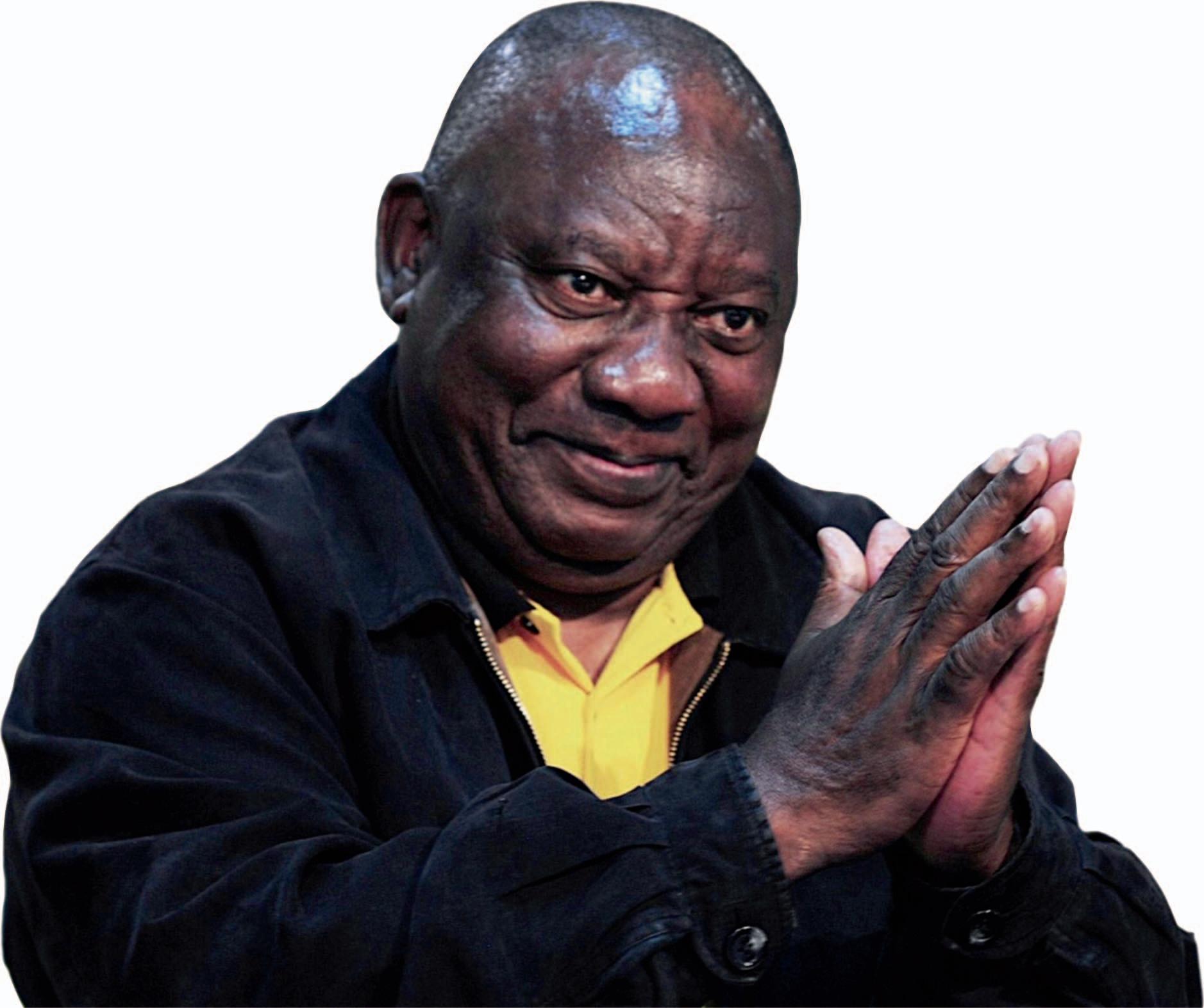
And this nearly happened: Gwede Mantashe held on as chair by the slenderest of margins; the 280 votes that went to David Masondo nearly cost Mantashe the election.
And the 1,080 votes that Mdu Ntuli won for secretary-general nearly let RET nominee Phumulo Masualle in through the back door. But in the end, Ramaphosa’s anointed candidate, Fikile
Mbalula, snuck home with about 38% of the votes cast.
While Paul Mashatile was the firm favourite for the deputy presidency, it’ s entirely possible that the fact that there were two “renewables” against him Oscar Mabuyane and Ronald Lamola cost Ramaphosa this position as well.
The combined votes of Mabuyane and Lamola fell just 36 votes short of Mashatile’s total of 2,178.
Lamola was leant on heavily on
Sunday and was compelled to withdraw from the race but since the ballot papers had already been printed, it wasn ’t possible for him to pull out properly.
As a result, not only did the renewables shed 315 votes, but it’s entirely likely that at least some of Lamola’ s supporters either switched sides in frustration at what was going down, or at least spoilt their ballot papers. Had Ramaphosa resolved this much earlier as he should have the confusion could have been avoided. He could have ended up with an even better result.
30 30 financialmail.co.za . December 22 - December 28,2022 SPECIAL
REPORT
Bloomberg/Leon Sadiki
INSIDE THE ELECTION
ical inheritance. This was evident both in terms of the broken, corrupt administration, and in the divided national executive committee and top six he had to lead.
Now, expectations are much lower, but Ramaphosa’s political room for manoeuvre is much greater.
He must prove that he knows how to leverage his additional power and use his victory this past week as a springboard for a more decisive and bolder presidency.
Step one: clean out his cabinet. If not this week, then next week, and if not next week, then the one after. He must fire those who recently defied him and challenged his power: Lindiwe Sisulu and Nkosazana Dlamini Zuma, who showed her true (RET) colours in the impeachment vote.
Mistakes made
This underscores how some rather elementary political campaigning mistakes were made by Team Cyril. In the end, they got away with them. Luck was on their side.
In the case of the position of treasurer-general, the same mistake was made by the other side: the 281 votes cast for Mzwandile Masina cost Pule Mabe victory, allowing the respected, hard-working Luthuli House backroom operator, Gwen Ramokgopa, to sneak into the top seven.

The bottom line is that not only was Ramaphosa re-elected, with a slightly increased share of the vote up to 56.5% from 51.9% in 2017 but he has a much more politically congenial top team to work with.
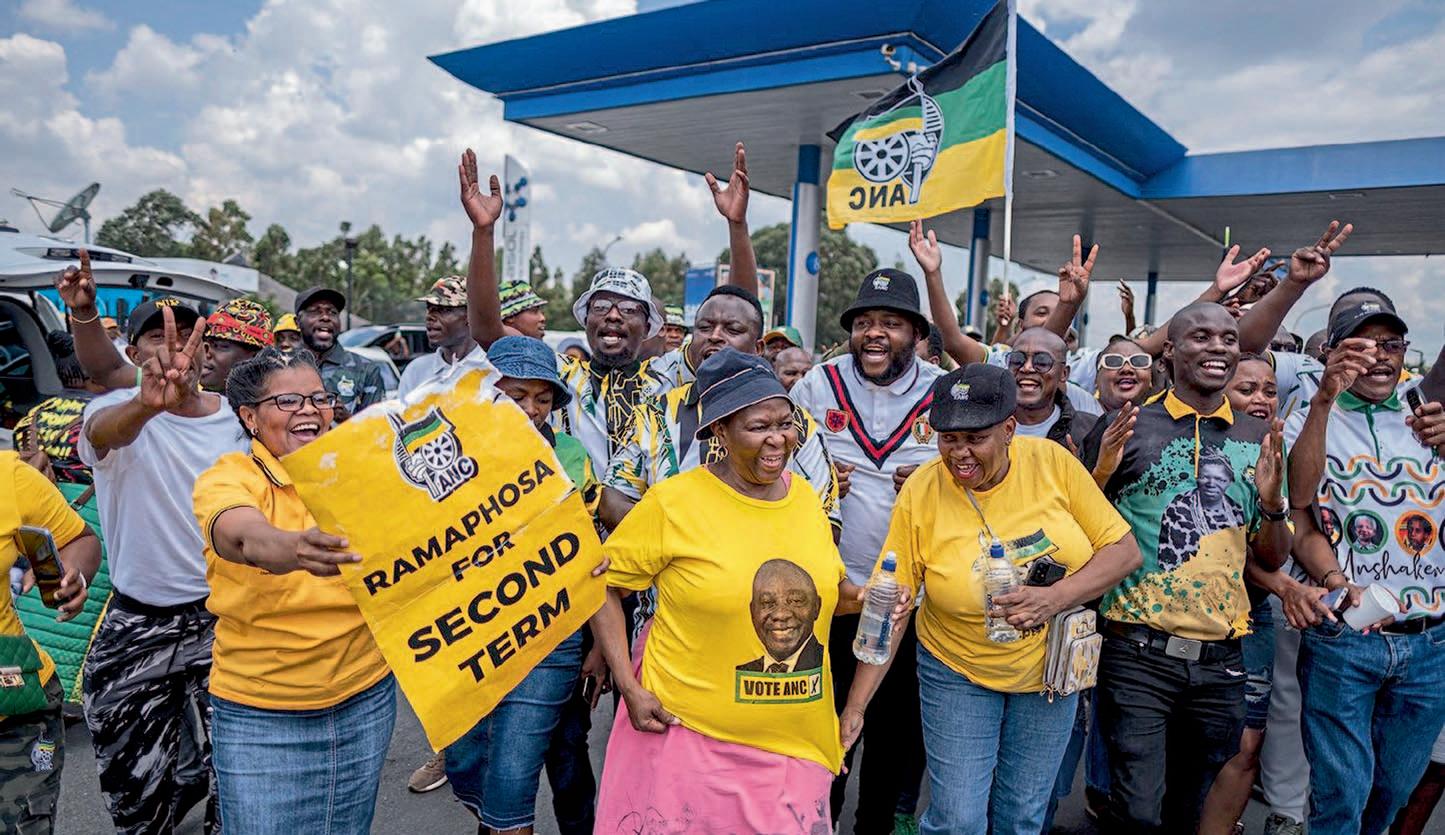
The balance of power in the top seven is clearly in his favour: Mantashe and Mbalula (for now), as well as the two Ramokgopas, are supporters. Only two Mashatile, and the RET-aligned Nomvula Mokonyane are from the other side.
That makes it 5-2. Much better than the 3-3 that emerged from Nasrec 1.0 five years ago.
Mashatile is a political realist. He will look at this outcome and pivot his strategy accordingly. He is a close friend of Mokonyane’s and will also mitigate the threat she poses, which is different from the one she would have posed had she been part of a majority group on the top leadership group.
This, then, is the context and the foundation of the political opportunity which Nasrec 2.0 has yielded for Ramaphosa. Unlike last time, he does not have to worry about a secretary-general
stabbing him the back. Then, he could not trust Ace Magashule to do anything other than undermine his efforts to fight corruption, both inside the ANC and in government.
It amounts to a stunning turnaround and all in three weeks.
Abandon ANC unity
Now Ramaphosa has the opportunity to release the handbrake, reasonably confident that he does not constantly have to look over his shoulder at his own party. He should leave that to Mbalula, and focus on leading the government.
As this conference illustrated, the ANC is never going to be unified. So the illusion of unity must be replaced by a stronger resolve to remove the rogue forces in the party and drive his direction in government.
Ramaphosa cannot afford to sit on his laurels. Sure, he is entitled to put his feet up for a couple of days over Christmas and enjoy the sunset at his place on the mountainside above Fresnaye in Cape Town. But then he must get back to the task at hand, if he is not to miss the political moment as he has, to his cost, several times over the past four years.
The crises facing the country need immediate attention most particularly the energy crisis. He needs to sustain the momentum and to show the backbone and muscularity that have been the leitmotif of his comeback.
Unless he does so, his victory will flatter to deceive once again.
In 2018, when he wrestled power from Jacob Zuma after his victory at Nasrec, the “Ramaphoria” was unrealistic, given the political constraints of his polit-
Transport minister Mbalula is now the secretary-general. That will require him to take up a full-time role in Luthuli House and leave his post in cabinet a win for the ANC and the country.
With Mantashe, Ramaphosa faces a tricky dilemma: in the past three weeks, Mantashe has provided the muscular defence that the president often lacks. His loyalty needs to be respected, but he cannot continue as minister of mineral resources & energy, where he gets in the way of energy sector reform and complicates the already complicated just energy transition.
One solution is to appoint him as deputy president. Ramaphosa no longer needs David Mabuza, whose political career has run its course (he declined nomination from the floor to stand for deputy president of the ANC).
And Mashatile is not yet a member of the National Assembly once he is made an MP at the first opportunity towards mid-2023, he can be given a cabinet post. Until then Ramaphosa needs to play hard to get on with him.
Three weeks in December; three days in Joburg. Once again, Ramaphosa and his country faced the proverbial fork in the road. Once again, the best available path was taken.
It was tough, it was tight, and the line between success and failure, between triumph and disaster, could not have been finer. x
Calland is co-author, with Mabel Sithole, of ‘The Presidents: From Mandela to Ramaphosa, Leadership in The Age of Crisis’, recently published by Penguin. He is an associate professor at the University of Cape Town and a founding partner of The Paternoster Group consultancy
December 22 - December 28,2022 .
31
financialmail.co.za
Gallo Images/AFP/EmmanueL Croset
Victory: Supporters of President Cyril Ramaphosa celebrate after his re-election as ANC leader
There was a distinct change in mood among branch delegates from KwaZulu-Natal as the ANC elective conference plodded on at Nasrec.
On Friday December 16, at the start of the programme, delegates sang, heckled, and drummed on their desks, drowning out the first few minutes of President Cyril Ramaphosa’s opening speech.
But if this was a battle of nerves, Ramaphosa outstared them.
The KZN delegates might have won the contest of decibels, but the sound and fury amounted to nothing as Ramaphosa roared to victory, securing 2,476 votes to Zweli Mkhize’s 1,897. This is despite panic in Ramaphosa’ s camp during voting, when rumours abounded that Limpopo, Gauteng and North West had swung to Mkhize.
It was quite another story on Monday morning, December 19, when the results were announced. Those once boisterous KZN delegates looked weary and dejected. They couldn’t even muster applause when Nomvula Mokonyane the candidate whose nomination they loudly supported was announced as the party’ s first deputy secretarygeneral.
Towards the back of this bloc, blending in with the delegates, sat former president Jacob Zuma, flanked by one of his daughters, Duduzile, his chief Twitter firebrand.
Zuma, who as former president is an ex officio member of the party’ s national executive committee (NEC), looked all of his 80 years. He didn’t attempt a repeat of his trademark stunt of disrupting the results by arriving late.

Even before the party’ s elections head, Kgalema Motlanthe, filed into the hall with the rest of his committee, it was common knowledge that Mkhize’s presidential bid had failed.
Despite past differences, Zuma had thrown his weight behind the former health minister,
after it became clear that his chosen candidate, Nkosazana Dlamini Zuma, wouldn’t make it.
Five years ago, she had enough support to come within 179 votes of the presidency, winning 48.1% of the vote to Ramaphosa’s 51.9%.
It’s not immediately clear what difference Zuma’s support made, but Mkhize did gain significant ground during the conference as some provincial leaders switched allegiances. Other leaders from the ANC’ s socalled radical economic transformation (RET) faction, which had aligned themselves with Mkhize, lobbied the conference from outside the venue.
RET is obviously a broad rubric, and it’s not even homogeneous in ideology. But it includes most of the ANC’s disaffected members, who generally are dismissive of the constitution and the courts. These include former secretary-general Ace Magashule and ex-military veterans spokesperson Carl Niehaus.
So, it was no surprise that Magashule and Niehaus, both suspended from the ANC, held court at the Sasol garage, a few hundred metres from where delegates entered Nasrec. At some point they were joined by Mkhize and tourism minister Lindiwe Sisulu, who backed Mkhize’s presidential bid after her own had failed.
Other leading figures in this antiRamaphosa faction such as Tony Yengeni, Bathabile Dlamini and Andile Lungisa were either excluded or forced to keep a low profile as their criminal records were scrutinised by the ANC’s disciplinary committee.
Some of them say Mkhize could have won had voting started two days later, but this seems wishful thinking, as the programme ran a day and a half behind schedule anyway.
Is KZN an RET proxy?
Ultimately, Mkhize’s defeat amounts to more than just a loss of the presidency.
None of the top seven leaders comes from KZN, despite three candidates having been in the running. Besides Mkhize, these were former provincial leader Senzo Mchunu, who was Ramaphosa’s choice for deputy, and former provincial secretary Mdumiseni Ntuli, who ran for secretary-general.
RIP FOR RET CHANCERS?
The radical economic transformation faction of the ANC suffered a thumping defeat at Nasrec. Opinions are split over whether it is safe to declare it buried forever
Mchunu didn’t even make it onto the ballot, even though he was almost as popular a choice as Magashule for secretarygeneral in 2017.
Ntuli failed to get Ramaphosa’s endorsement despite his support for the president, and narrowly lost to Fikile Mbalula. There’s talk he may be coopted by Mbalula, perhaps as party spokesperson.
Faced with this criticism, ANC leaders are quick to argue that its national leadership needn’t be representative of the provinces.
“This is a national conference, not a council for provinces, where we elect leaders on the basis of their capabilities,” Mzwandile Mkhwanazi, a former
32 32 financialmail.co.za . December 22 - December 28,2022
SPECIAL REPORT
Carien du Plessis
INSIDE THE ELECTION
regional secretary from KZN, tells the FM.
He says the province isn’t a homogeneous voting bloc either.
“I am from KZN [and] I supported Ramaphosa. So it doesn’t necessarily mean that when you’re from KZN, automatically you’re supporting a person from KZN.”
This is borne out by the figures. Ramaphosa’s campaigners claimed they had at least a third of KZN’s 877-strong delegation voting for him a slightly higher number than the branch nominations he received a few weeks before.
Mkhwanazi says the recent national conference was a lot less tense than the one five years before which bodes well for the party. “Comrades were able to engage each other in a very civil manner, ” he says.
This also extends to KZN’s provincial leadership. Chair Siboniso Duma worked to silence the howling delegates at the start of Ramaphosa’s speech on Friday, just as he intervened to allow Ramaphosa to address the closing session of the provincial elective conference in July.
“Those comrades are going to surprise everybody,” Mkhwanazi says with reference to Duma and his fellow provincial leaders, who only recently graduated from the ANC Youth League. “We are going to turn the corner as KZN.”
Others agree, with provincial secretary Bheki Mtolo telling journalists this week that he, too, accepted the outcome of the Nasrec conference.
Nonetheless, the schism between the party’s national and provincial leaders was reflected in the 2019 and 2021 election results.
The arson and looting of July last year, in part a fallout from the ANC’s internecine conflict, meant voters lost their appetite for the party.
Support for the ANC in the province dropped 10 percentage points from 64.52% in 2014, when Zuma was president, to 54.22% in 2019, after he was ousted, and recent by-elections after last year ’s riots confirmed this trend.
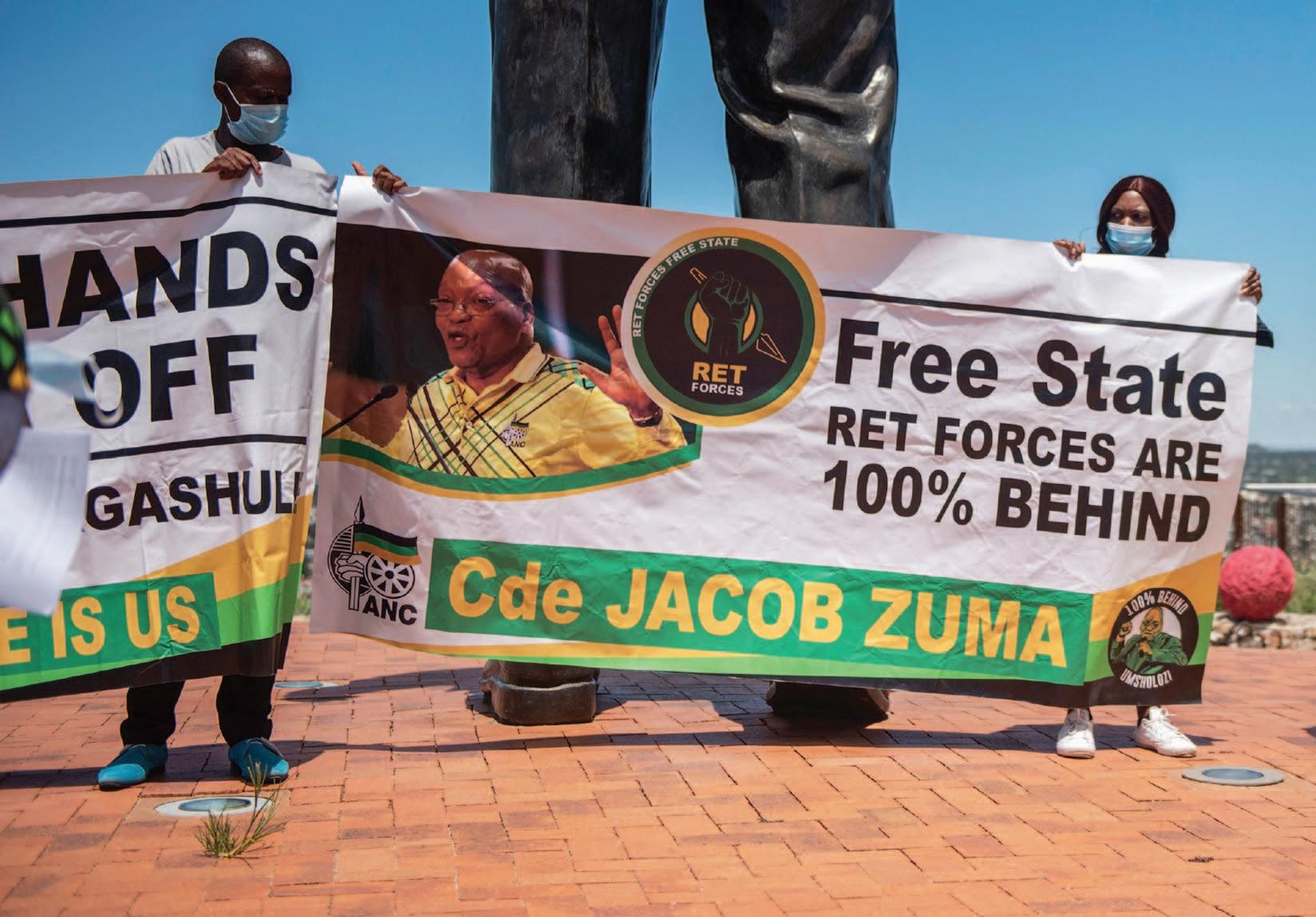
RET moves to the youth
For slightly different reasons, this electoral trend is also present in the Free State, where Magashule still has some influence.
Ramaphosa supporter and party activist Bram Hanekom says the province’ s leaders will have to work with other provinces and the national leadership to win back support.
Though KZN isn’t represented in the top seven, Hanekom says leaders from there “will find expression in the NEC and the national working committee, and they have a number of people in senior government positions”
Hanekom may say it’s wrong to “reduce the KZN support for the ANC to a regional or tribal dynamic”, but many ANC members in the province aren’t taking the results well.
Social media posts suggest they feel deeply betrayed. “They are cleaning us out of the ANC, it belongs to them,” one member posted with reference to Ramaphosa’s campaigners. Another said: “Am bleeding and no medicine can cure the wound.”
It’s not impossible that the riots of last year could be repeated. Sandy Africa, an associate professor of political sciences at the University of Pretoria, who was part of the panel appointed by Ramaphosa to probe the causes of the uprisings, warned of as much in an article published this year.
She says the country needs “a recalibrated security sector which is effective, responsive, accountable”. That sector needs to serve our democracy and “not the interests of a few who manipulate them for personal or partisan gain,” she wrote in The Conversation.
Yet, not only are there still weaknesses in the country’s intelligence and
security structures, but the masterminds of the riots are still on the loose.
Zizi Kodwa, deputy minister of state security, denies that the conference results could lead to a repeat of last year’ s riots, just as the absence of KZN leaders in the top six in 2017 didn’t immediately lead to trouble. But he does admit “there are issues of instability in KZN”
Police minister Bheki Cele told the SABC this week that it was the province’s own fault that it ended up with no representation in the top seven. “We are in the same spot [as 2017] again,” he said, “and I hope we have raised the issue with the provincial leadership, who are a younger generation than us.”
Those ANC leaders in the province have been depicted as inextricably linked to the RET faction, which may or may not be an unfair characterisation.
Either way, it’s clear that both the RET faction and KZN’s leaders suffered a resounding defeat at Nasrec.
Ultimately, the RET group could emerge in a more youthful guise in the next few years. On Monday, talk in the corridors at Nasrec was that meetings were already taking place between leaders in KZN and the Eastern Cape, to make this a reality.

But if the party’s electoral fortunes keep dwindling, it might be too late for that new generation to wield any significant power in government anyway. x
December 22 - December 28,2022 . financialmail.co.za
33
Out in force: Supporters of Ace Magashule and former president Jacob Zuma demonstrate on Naval Hill in Bloemfontein in February 2021
Gallo Images/Alet Pretorius
GWEDE 2.0: EVOLUTION OF AN ANC BULL-Y
After securing a stunning comeback by helping Ramaphosa win a second term as ANC president, the ‘fossil fuel dinosaur’ seems set for a few more years in the top tiers of government, to the dismay of his detractors
Sam Mkokeli
Gwede Mantashe, the grubby master blaster of South African politics, has blasted himself back onto the political scene.
It’s a stunning revival, made possible by Cyril Ramaphosa’s successful bid for a second term at the helm of the ANC.
Yet three weeks ago, it was Mantashe who gave Ramaphosa the political equivalent of CPR, when the president was on the verge of resigning over the Phala Phala debacle.
Mantashe swaggered in, like the political bully he is, and told Ramaphosa bluntly: you’re not going anywhere. Or words to that effect.
And it worked out well for Mantashe, who was perhaps the biggest winner at Nasrec, earning a second term as ANC chair.
It reinforces his position as ANC royalty. Mantashe broke into the ANC’s top structures at the Polokwane conference in 2007, serving 10 years as secretarygeneral.
And yet, two months ago, his political career looked dead.
Mantashe’s name hadn been raised as branches began nominating leaders, and he seemed to have accepted the likelihood that he wouldn’t return to the ANC’s top echelons. In the government, he was also vulnerable as the minister for mineral resources & energy. With Ramaphosa expected to reshuffle his cabinet in the new year, Mantashe was seen as an obstacle to getting more renewable energy onto the grid.
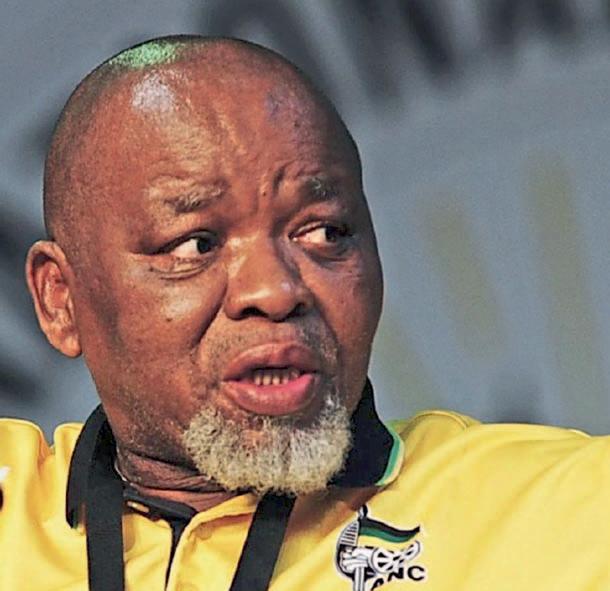
Depicted as a fossil fuel fundamentalist who couldn’t see a future without coal, he was considered an out-of-
touch dinosaur. It is easy to see why: he is a former coal mineworker who associates with proponents of coal and other fossil fuel technologies, while downplaying the role of renewables.
Ramaphosa is now indebted to him. Mantashe did the heavy lifting from November, and topped it off atNasrec by dragging many branch delegates from vacillating provinces such as North West to the Ramaphosa camp.
This suggests Mantashe has earned himself a few more years in the government. His critics will be praying, however, that this won’t be in the department of mineral resources & energy (DMRE).
This is all the more crucial since some of the delegates at Nasrec wanted Eskom to be movedfrom the public enterprises department to Mantashe’s. That would be a huge flex forMantashe, and demonstrate a strong power shift away from public enterprises minister Pravin Gordhan.
Finance minister Godongwana tells the FM that where Eskom fits inis a matter the president can handle not something that requires 4,000 delegates to decide. “That is an operational issue. It concerns the assignment of functions, which the president can do any time. You can’t sit in a big meeting like this and discuss the nitty-gritty.”
Yet the ANC is seized with Eskom, as it ought to be, considering the party’ s own role in destroying the utility and the impact blackouts have had on its electoral prospects.
“What we [as the ANC] should say is: we need to provide electricity to supply to this economy,” Godongwana says.
If Eskom is indeed moved to the
DMRE, critics will be crossing fingers that Mantashe isn’t there to oversee it.
In recent weeks, Mantashe’ s destructive influence was on full display, when a series ofattacks on André de Ruyter led to his resignation as Eskom CEO. Mantashe had saidthat “Eskom, by not attending to load-shedding, is agitating for the overthrow of the state”. This compounded his earlier statements that De Ruyter was acting “like a policeman” at the entity.

Godongwana says that while Mantashe often gets caricatured for his apparent closeness to the fossil fuel industry, the reality is that the government’s energy policy is much broader. Mantashe’s view is consistent with government concerns about jobs that may be lost if coal mines were shut down, he says.
“We cannot afford not to move to a low-carbon economy. Mantashe subscribes to that,” says Godongwana. “Where the difference lies is how do you move to a low-carbon economy. Some say the only route is renewables. And Mantashe says no, we can’t be dominated by renewables ... what about nuclear? What about gas?”
Yet Intellidex analyst Peter Attard Montalto says Mantashe is largely seen as someone who is “blocking reforms” around energy policy.
This year, Attard Montalto says, Mantashe became “quite passive” on the subject, which allowed movement on renewable energy to happen.
In particular, the government made it possible for private users to build their own energy capacity up to 100MW. Mantashe had resisted this initially, instead wanting private users to only be able to generate up to 10MW.
As much as Ramaphosa has taken considerable heat for the Eskom crisis, it is Mantashe’ s “go-slow” on renewables which contributed to this.
Where this leaves Mantashe in Ramaphosa’s new dispensation remains to be seen. But Attard Montalto says it’s clear the president “owes him right now”— which suggests Mantashe won ’t be out in the cold. x
Mkokeli is the lead partner at Mkokeli Advisory. He is a former public enterprises spokesperson
34 34 financialmail.co.za . December 22 - December 28,2022 SPECIAL
REPORT
Gwede Mantashe
INSIDE THE ELECTION
NO LEFT, NO WHITE IN THE MODERN ANC
Portraits of powerhouses such as Miriam Makeba, Lilian Ngoyi and Antjie Krog welcome visitors to hall 5 at Nasrec. The portraits testify to the role of women in the struggle for liberation in South Africa.
In thecentre, Gwen Ramokgopa is speaking to business leaders.
Only the previous day, she was elected as the ANC treasurer-general, the first woman to occupy a position previously held by the likes of Thomas Nkobi, Makhenkesi Stofile and Mendi Msimang.
The ANC made history at Nasrec when it elected three women to its highest leadership strata now the top seven, expanded from the top six with an additional post. Nomvula Mokonyane was named first deputy secretary-general, and Maropene Ramokgopa took the new post of second deputy secretary-general.
But there is a snag.
The top seven has no-one on it who looks like Ruth First, Sonia Bunting, Sue Rabkin, Derek Hanekom, Joe Slovo, Bram Fischer or Yusuf Dadoo.
The ANC has been led by men from its inception in 1912.
They spoke such languages as Zulu in the case of founding president John Langalibalele Dube and Tswana in the case of secretary-
general Sol Plaatje.
The party evolved, and by about 1960 there was nothing unusual in Mac Maharaj being a senior activist, ready to take up military training in Umkhonto we Sizwe and go into exile.
It also seemed a natural fit for Slovo and Nelson Mandela to work side by side in establishing MK.
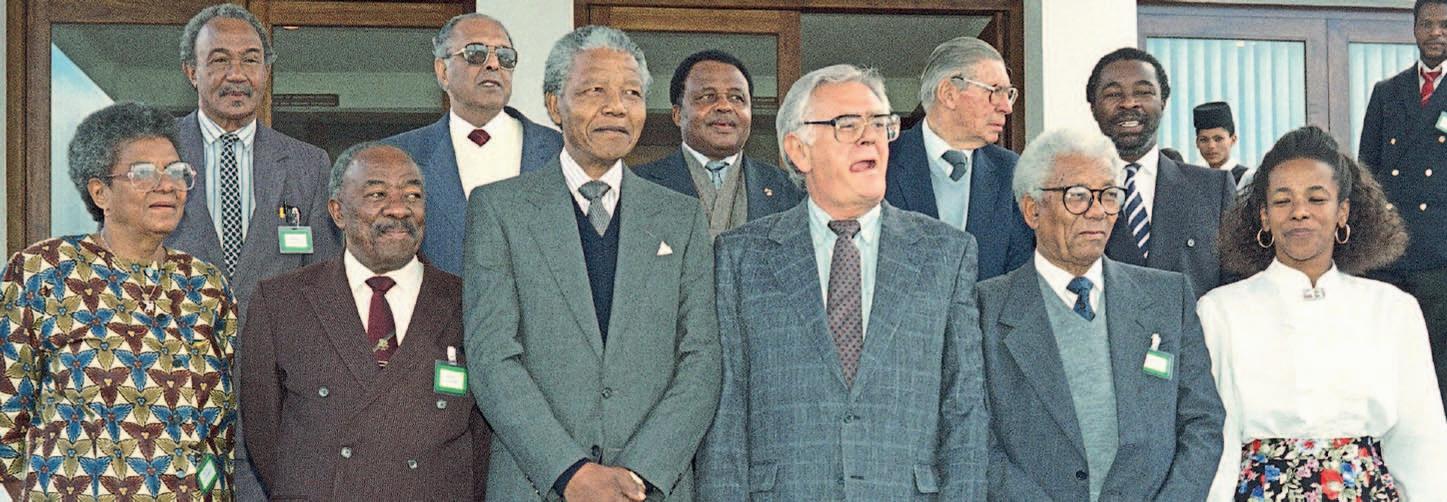
By 1985, the ANC had adopted nonracialism as its policy, which opened the way for Slovo to become a member of the national executive committee.
And when the ANC took over the government in 1994, its ethic was synonymous with nonracialism. Hanekom and Trevor Manuel were at home alongside Lindiwe Sisulu.
In 2022, it’s a different story. The party belongs to the Ramokgopas, the Ramaphosas and the Mantashes of this world. They address each other by their clan names: Mqwathi for Gwede Mantashe, Madiba for Enoch Godongwana and Khabazela for Zweli Mkhize.
What is missing from the new top seven are white, Indian and coloured South Africans. The failure to present a “rainbow” at the party’s helm will make it difficult for the ANC to claim to be a leader of society, or a microcosm of society.
It gets even trickier: none of the top seven can claim Zulu as their mother tongue. None was born in KwaZulu-Natal, or can claim a heritage linked to the “kingdom of the Zulus”
The ANC of today is a party in which
even the Mapholobas from KZN are hard to find in top positions.
It’s a step change for a party that has had traditional leaders at its helm before, such as chief Albert Luthuli and Mandela.
The ANC has also veered away from its proximity to royalty an association that has helped it to win votes in the past.
Instead, the top seven all live and work in Gauteng. These are the faces of the new black elite. It’s an illustration of how the multiclass character of the ANC has gone the same way as its nonracial credentials.
Floating away from the Left
It’s not just the KZN vacuum that has exposed the ANC’s vulnerabilities; the institutional decline in its alliance partners means it doesn’t have ideological cover from the Left either.

Cosatu, once a labour colossus whose strikes could bring the country to a standstill, is a shadow of its former self. It is now little more than a glorified public sector union, speaking for teachers and other government employees.
And things aren’t much better over at the SACP, which appears to be more capitalist than even the Stellenbosch mafia. Its leaders are routinely chauffeured around in R1m cars and own properties in fancy suburbs in eThekwini, the Cape and Gauteng.
This illustrates that the alliance is, ideologically at least, dead. And the ANC is exposed to attack from those still aligned with those principles because the ANC of today is no longer either definitively Left nor particularly centrist. It is a party turning with the wind, taking any opportunistic position that suits a particular leader at a particular moment.
This ethical unmooring will surely have electoral consequences.
It underscores how the days of a value-led, nonracial organisation are long gone. Next time someone says “Long live the spirit of Joe Slovo”, we should recognise that they mean just that. x Mkokeli is the lead partner at Mkokeli Advisory. He is a former public enterprises spokesperson
December 22 - December 28,2022 . financialmail.co.za
35
Sam Mkokeli
The party’s new top leadership is a far cry from its days as a nonracial, inclusive organisation
Back in the day: The ANC team who met the South African government on May 2 1990 for the first leg of ‘talks about talks’ Rashid Lombard
A STRONGER MANDATE
Business has breathed a sigh of relief over the outcome of the ANC leadership battle. With the balance of power tilting in Ramaphosa’s favour, economic policy continuity and faster reform could lie in store
Claire Bisseker
Compared with 2017, President Cyril Ramaphosa’s margin of victory is bigger and the ANC’ s top seven leadership structure slanted more in his favour. There is hope that this could give him more sway to expedite the pro-growth but half-baked policies that have been hamstrung by dissent from within his own cabinet.
Finance minister and ANC national executive committee member Enoch Godongwana has been pushing this line. He told the FM at the conference to expect policy continuity as Ramaphosa would be able to “continue with the reforms he has been championing with a stronger mandate”
A competing view is that given the extent to which Ramaphosa is compromised by the Phala Phala scandal, policy contestation couldincrease in certain areas if he is beholden to those opposed to aspects of his reform agenda. This includes the coal lobby, with re-elected ANC national chair Gwede Mantashe firmly ensconced as its figurehead.

Old Mutual Wealth investment strategist Izak Odendaal thinks it “unlikely” that Ramaphosa’ s consensusbuilding style will change much but, given his stronger mandate, perhaps the circle from which consensus needs to be drawn will be smaller and more focused.
He expects continuity in terms of economic policy reforms, ongoing fiscal consolidation and a continued gradual strengthening of governance institutions.
“All of this is positive for investors, but we shouldn’t underestimate that it all takes time. And it is unlikely to be a smooth ride as there will still be interest groups that will push their agenda.”
Intellidex director Peter Attard Montalto doesn’t believe the pace of reform will accelerate, given that the real
blockages have always been at government rather than party level, but he does expect the new leadership to at least be able to “keep the reform show on the road”, even if the process remains “noisy”
He is keeping his medium-run growth forecasts broadly the same, but feels the market is too pessimistic about the potential for economic reform to lift South Africa’s growth rate over time.
Prof Raymond Parsons of the NorthWest University Business School is hopeful that Ramaphosa will emerge from the conference more resolute, but is also not willing to upgrade his medium-term growth forecast at this stage.
“Drift has for years been the great enemy of delivery in South Africa,” he says. “Positive changes must now be made to be perceived as certain and irreversible. Urgency, boldness and momentum are needed to overcome the previous perceptions of indecisiveness.”
The first clue as to whether there has been a shift in approach to implementation will be if Ramaphosa revamps his cabinet and cracks the whip early next year. A good test will be whether a new Eskom CEO is appointed within three months as promised. Also key will be whether the state achieves a closer partnership with the private sector in delivering key services.
“The real hard work still lies ahead if the new ANC team is to fix what is broken especially in dealing with the Eskom crisis,” says Parsons.
A worrying development from the conference is the push to move Eskom from the department of public enterprises to the department of mineral resources & energy.
While it makes sense for stateowned enterprises (SOEs) to report to their line departments to ensure policy alignment, the problem, says Odendaal, is that “the line departments don’t have the capacity to deal with these large, complex companies they barely have the capacity to perform their current functions”
There is widespread suspicion that ANC members want Eskom to report to Mantashe’s department because it is more likely to protect coal interests in the ongoing energy transition.
“This could end up prolonging rather than ending load-shedding, since renewables offer by far the quickest and easiest way to additional electricity supply,” warns Odendaal.
It also runs counter to public enterprises minister Pravin Gordhan’s plan to consolidate SOEs under a single holding company more open to private sector partnerships. “Legislation is ready the memorandum of incorporation is ready, we need to take the next step and we will register a company,” Gordhan told the FM at the conference.
However, the more immediate issue is how the government plans to absorb some of Eskom’s debt and finalise its unbundling, which is likely to proceed irrespective of which department takes over.
Capital Economics emerging-markets economist Virág Fórizs fears that to keep intra-ANC dissent at bay, Ramaphosa may have to tone down his reform agenda, including in the energy sector. If so, respite from load-shedding could be pushed out. She also fears Ramaphosa will seek to shore up voter support in 2024 by loosening fiscal policy, delaying debt stabilisation.
She argues that “with persistent power cuts, economic reform plans at risk and a more unfavourable debt trajectory, both South Africa’s near-term economic struggles and longer-term challenges have deepened”
The consensus is less bearish. Most economists feel that while there is nothing new or certain from the conference that suggests South Africa’ s medium-term growth rate will exceed 2%, if reform could be accelerated it would raise potential growth in time. And, importantly, the key downside scenarios have been avoided. x

36 36 financialmail.co.za . December 22 - December 28,2022
SPECIAL REPORT
Finance minister Enoch Godongwana
Gallo Images/Mlungisi Louw
INSIDE THE ELECTION BRACING FOR A 2024 CAL AMITY
where Ramaphosa’s popularity is lower than that of the party, and the only province in which former president Jacob Zuma is more popular than the ANC itself.
It is also the only province to have backed former health minister Zweli Mkhize’s bid to replace Ramaphosa as party president.
Scholtz says KZN is likely to be an uphill battle for the ANC, not least because support in the province for the IFP is surging.
Natasha Marrian
Can the new ANC top leadership, with an emboldened President Cyril Ramaphosa at its head, turn the party’s ailing electoral fortunes around before the 2024 national elections?
It’s unlikely particularly as research shows that it is losing support in rural areas as quickly as it is in towns and cities.
The ANC’s organisational report, delivered to theconference by former deputy president David Mabuza, shows that the party is concerned about its loss of support among urban voters and young people.
Independent election analyst Dawie Scholtz has carried out an extensive study, dividing the electorate into three: major urban areas (where the ANC has a core base of 5.9-million voters); second-tier towns and cities such as Polokwane (a core ANC base of 2.7-million voters); and rural areas (9.7-million core supporters).
Scholtz’s analysis shows that the ANC has been losing support equally across the three tiers.
“The thing about the ANC becoming a rural party is not accurate,” he says. “In fact, the entire black electorate is shifting away from the ANC to other parties, or staying away. The only reason rural areas appear safer for the ANC is due to the demographics in those areas.”
In the metros, the ANC’s support in 2011 among black voters stood at 87%, but this had fallen to 62% by 2021. In second-tier centres, it fell from 85% in 2011 to 60% in 2021. And in rural areas, the figure dropped from 76% in 2011 to 64% 10 years later.
The question is, can the ANC’ s new leadership reverse this trajectory
before the 2024 elections now less than 16 months away?
Unlikely, considering the two main drivers of the trend are almost impossible to fix in that time. These are the weak economy, the central cause of high unemployment and crime; and weak governance, which has led to collapsing infrastructure, load-shedding and poor service delivery.
Says Scholtz: “Unless this group of leaders are able to engineer better economic and governance outcomes in a very short space of time, it will not be possible to reverse the trend.”
His findings about rural areas were borne out in a by-election for Ditsobotla
In a sample of 42,000 black people who voted in by-elections in the province this year, support for the IFP rose to 43%, compared with 32% in the 2021 local government elections and 20% in the 2019 national elections.
At the same time, the ANC totalled 41% in this year’s by-elections down from 45% last year and 59% in 2019.
“This is more evidence of a swing away from the ANC towards the IFP in KZN,” says Scholtz. “The question is, to what extent does the ANC in the province go all out to ensure it retains the province in 2024? How motivated are they, given the outcome of the ANC conference?”
While there is no indication of a split, there are parties waiting in the wings to take advantage of the ANC’s snub to the Zuma faction. These include the EFF and the African Transformation Movement, which is essentially a front for Zuma and his allies.
Gauteng is another problem. Most of the top leaders elected over the weekend hail from the province, but will this be enough to stop the slide?
Dawie Scholtz
municipality in North West last week. The ANC’s support fell to 40% down sharply from 70% in 2011 largely due to a complete collapse in service delivery.
It’s not the only crumbling municipality.
The ANC says in its organisational report that most municipalities where it has full control are not financially viable, making the delivery of services nearly impossible. It is a shocking admission, offered without any introspection as to why this is the case.
Elections analyst Wayne Sussman says the ANC’s losses in its traditional strongholds should be deeply worrying to the party.
Another big problem for the ANC is KwaZulu-Natal. This is the one province
Scholtz says the ANC’s fortunes in the economic heartland are particularly bleak: it scraped through with 50.19% in 2019, but 2021 was apocalyptic, with support tanking to just 37%.
Few by-elections have taken place in Gauteng this year, but one result should deeply worry the ANC. In ward 53 in Soweto, the party obtained 58% of the vote in the 2021 local government elections, but this dropped to 32% in a by-election in June.

It’s not enough to pin a trend on, says Scholtz, but he points out that both ActionSA and the EFF made huge gains in Gauteng in 2021. Unless these parties suffer serious setbacks, the ANC is unlikely to retain the province in 2024.
Sussman makes a key observation: the more the ANC is in opposition, the less attractive it becomes to the general electorate.
In other words, now that the bloodletting has begun, can it be cauterised or is it too late? x
December 22 - December 28,2022 . financialmail.co.za
37
The party has left reform too late, and has run out of time to fix the main issues ahead of the 2024 elections
The thing about the ANC becoming a rural party is not accurate. In fact, the entire black electorate is shifting away from the ANC to other parties, or staying away
Roper
The persecution of journalist Karyn Maughan by former president-forhire Jacob Zuma and his bottom-feeding piranhas is a terrible thing, and we have to be thankful that we live in a country where the government, and those who are government adjacent, can ’t just put journalists in jail on a whim.
It’s been ugly to watch the Nkandla sock puppets and other self-serving factions harass her, without any regard for the damage they’re doing to our democracy.
It’s been almost as distressing to see how many ordinary citizens don’t seem to understand that Maughan is not just being targeted because she’s doing her job as a journalist, but because that job is about looking after the interests of the aforementioned ordinary citizens.
And if there’s one thing the grotesquely bloated diners at the state capture dinner trough don’t want, it’ s journalists exposing them to the citizens they’re stealing from.
So, when those in power attack the media, they’re really attacking you.
The Committee to Protect Journalists (CPJ) has just released its annual census of journalists jailed around the world, and it makes clear that attacks on the media are directly correlated with attempts by governments to deprive their citizens of the sort of freedoms we in South Africa take for granted.
It’s a pattern we need to keep in mind when we think about the attacks on our own media.
The census (from which I am going to liberally quote in this column) found that a record 363 reporters were deprived of their freedom in the period December 2021 to December 2022.
This overtakes last year’s record by a huge 20%. This year’s top five jailers of journalists are Iran, China, Myanmar, Turkey and Belarus, in that order. And they do this to hide their own evils.
“A key driver behind authoritarian governments’ increasingly oppressive

efforts to stifle the media [is] trying to keep the lid on broiling discontent in a world disrupted by Covid and the economic fallout from Russia’ s war on Ukraine,” the report says.
Women targeted
Let’s take a look at some examples.
In Iran, the crackdown on mass protests following the death in police custody of Mahsa Amini, the 22-year-old Kurdish woman arrested for allegedly breaking Iran’s hijab law, left at least 62 journalists in jail by December 1. And that count would have been even higher, the CPJ tells us, had another 21 journalists detained after the start of the demonstrations not been released on bail ahead of the census date.
Worryingly, though not surprising, women journalists are increasingly the target of choice for those looking to damage journalism’s ability to function. The number of women among those journalists held in Iran is unprecedented.
“When Iran jailed a then-record number of journalists in the years following the disputed 2009 presidential election, peaking with 47 journalists imprisoned in 2012, just four of those reporters were female. By contrast, 24 women are listed in this year’s census; 22 were of them arrested after the protests began.”
In China, the state crackdown on the media was largely about halting coverage of the demonstrations about the zero-Covid lockdown policy.
But the CPJ found that the ongoing repression of minorities was also a theme.
In Iran, it says, at least nine Kurdish journalists are among those in jail. And in Turkey, authorities arrested 25 Kurdish journalists working for media associated with Kurdish editorial content.
It was the same in Iraq, where all three journalists on this year’ s census are jailed in Iraqi Kurdistan.
And in China, many imprisoned journalists are ethnic Uighurs from Xinjiang, where Beijing has been accused of crimes against humanity for its mass detentions and repression of the region’ s
38 38 financialmail.co.za . December 22 - December 28,2022
THE
Venal governments are cracking down on journalists the world over, under the guise of halting ‘fake news’ . But the truth is, when politicians attack media freedom, they’re attacking you
Chris
features / media freedom comment
YO WA
mostly Muslim ethnic groups.
Last week, I was privileged (if that is the right word) to be present when an Uighur refugee testified to the horrific torture she had undergone in one of the Xinjiang internment camps.

Her tearful plea to assembled journalists was that they keep covering the story, and not let the Chinese state quash it with propaganda.
As I tried not to cry with her, I couldn’t help remembering that in South Africa, we have one media house that happily runs a column by the Chinese ambassador to South Africa entitled “‘Genocide’ tag against China is the lie of the century.”
Tell it to the 10 Imaginary Babies, buddy.
‘
The
’
fake news
red herring
Those of us worried about the state’s attempts to regulate amorphously defined “fake news” are right to be concerned. The idea of misinformation and fake news as an excuse to crack down on journalists is taking off around the world.
As it is, nearly half of the more than 42 journalists detained in Myanmar were sentenced under an anti-state provision that broadly penalises “incitement” and “false news”
In Turkey, where there are 40 journalists in jail, “many now fear that the latest arrests could signal a fresh assault on press freedom ahead of next year’s elections.”
This is especially acute since the Turkish parliament ratified a controversial media law in October which mandated prison terms for those deemed to be “spreading disinformation” .
And in China they’ve made the idea of criminalising misinformation their own: Uighur journalist Omerjan Hasan is serving 15 years for publishing an unofficial history of the Xinjiang region. Three others have been held since “2018 on the accusation of being two-faced a term Chinese authorities frequently use to describe those they see as openly supporting but secretly opposing government policy”
Africa’s dubious censorship
So how does Sub-Saharan Africa fare in the census?
At ninth in the world, Eritrea is still the region’s worst jailer of journalists. “The 16 [people] in its cells have been held without trial or access to their families or lawyers for periods ranging from 17 to 22 years,” the report says.
Cameroon is the second-worst jailer in the region, “with five arbitrarily detained under an opaque judicial system that includes the use of military tribunals to pro-
secute journalists, who are civilians under international law”
It’s also dangerous to be a journalist in Ethiopia, which has intermittently detained more than 60 journalists since the start of its civil war in November 2020.
And in Rwanda, that country so beloved of South African ministers, “three of the four journalists behind bars publish their work on YouTube one of the country’ s few remaining publishing platforms as the space for dissenting speech closes down within the traditional media”
At least two of those YouTubers behind bars, Aimable Karasira and Dieudonné Niyonsenga (also known as Hassan Cyuma), have reportedly been subjected to torture and ill-treatment. That these Rwandan journalists have to use YouTube to get their work out is indicative of the country’s media environment.
It also illustrates that attacks on the media aren’t only the physical ones, like murder, imprisonment or, as is the case with News24’s Maughan, the use of the legal system to stifle journalists’ voices.
The state, and other bad actors, can make it impossible to access the tools to do your job, or for citizens to access the information they need.
In China, when protests erupted against the zero-Covid policy, The Guardian reported that “Chinese authorities ... initiated the highest ‘emergency response’ level of censorship, according to leaked directives, including a crackdown on VPNs and other methods of bypassing online censorship”
African countries have been using this trick too. On our continent, internet shutdowns more than doubled between 2020 and 2021, from 12 reported service disruptions to 25.
The fact that 2022 set a new record for the number of journalists in jail is ominous, especially as the previous record was just the year before.
We cannot, and must not, let journalists become pawns in the games of megalomaniacal businesspeople, corrupt politicians, and Carl Niehaus clowns (he gets a special category, now that the ANC has finally kicked him out).
Americans, so comfortable in brand democracy as sold to them by their mighty propaganda machinery, might have the luxury of jumping on the Trump bus and railing against the “MSM”, though probably not for much longer without doing themselves irreparable damage.
But in South Africa, and many other parts of Africa, our democratic safeguards are as shaky as hell. I’ll say it again: when those in power attack the media, they’ re really attacking you. x
December 22 - December 28,2022 .
financialmail.co.za 39
OU WA
ON
R 123RF/Sorapop Udomsri
IN GOOD FAITH BY CARMEL RICKARD JUSTICE FOR WOMEN

An appeal case involving a warlord sets an important precedent for prosecuting and punishing sex crimes as a weapon of war to “capture the totality of crimes suffered”
Aweek after the 16 Days of Activism for No Violence against Women and Children Campaign, the International Criminal Court (ICC) delivered its decision on an appeal by Dominic Ongwen, a senior commander in the Lord’s Resistance Army (LRA), which terrorised swathes of Central Africa for years.
Found guilty on more than 60 charges including war crimes and crimes against humanity, Ongwen appealed. Now the appeal court has confirmed both the verdict and his 25year sentence.
Ongwen’s unsuccessful appeal and the international campaign against violence targeting women and children might seem unrelated. But his case could be important for prosecuting and punishing a particularly horrifying aspect of violence against women and children: sex crimes as a weapon of war.
Among the crimes Ongwen was found guilty of, either directly or indirectly, were forced marriage, torture, rape, sexual slavery, enslavement, forced pregnancy and outrages on personal dignity.
The charges and conviction on forced pregnancy and forced marriage made new law, being litigated for the first time as separate crimes. And because he was convicted on these charges convictions now upheld on appeal such charges could be brought in future trials of this kind.
An article in Human Rights Pulse (HRP), a discussion platform for human rights practitioners, says the successful prosecution of Ongwen on these new, distinct charges, showed a “more victim-centred approach” by the ICC, with the court trying
The HRP speculates that these convictions might help in another way: often victims of forced marriages are stigmatised when they return home with the children of these “marriages” , and the court’s acknowledgment that forced marriage is a crime could ease reintegration.
Ongwen’s legal team argued that “cumulative” convictions for rape and sexual slavery, and for forced marriage and sexual slavery, were not permitted, since they were essentially the same crime.
But the appeal court has now added its approval to the trial court’s rejection of that argument. While there may be some overlap, the crime of sexual slavery “reduces a person to a servile status” and deprives the person of liberty and sexual autonomy, the appeal judges said. Rape, by contrast, is an “invasion of a sexual nature of a person ’s body” and the attack is on the person ’s sexual autonomy.
Forced marriage might not neces-
sarily involve violence against physical integrity or the deprivation of liberty, but it affects “ a person ’s right to freely choose one’s spouse and consensually establish a family”
Some of the ICC’s heightened sensitivity to such crimes could be a result of expert evidence by Prof Tim Allen of the London School of Economics & Political Science (LSE).
Allen, with colleagues of the LSE’ s Centre for Public Authority & International Development (CPAID), has researched cultural understandings of sexual wrongdoing among communities affected by the LRA conflict. He told the ICC that in such communities, there was a more “complicated and nuanced” view of rape and its aftermath than the Western understanding of rape that is dependent on the question of consent.
Their research helped the prosecution expand the sexual violence charges against Ongwen, and the trial court’s judgment includes material that comes from Allen’s evidence.
He also recommended that former LRA women in forced marriages be allowed to testify and be cross-examined in Uganda, even before the trial started, since it would reduce the risks to them if they could participate in the trial as early as possible, and with as little exposure as possible.
A CPAID report on the impact of its work on the trial says this aspect of the Ongwen case set a ground-breaking precedent for prosecuting international crimes of a sexual nature.
If the precedent were to be applied more broadly, the report says, it would make prosecution of crimes involving sexual violence easier.
The International Criminal Law Review called the Ongwen case a “milestone precedent” , likely to affect future cases, because it would help get around the problem of witness interference and help “in safeguarding vulnerable victims and witnesses and preserving their evidence for any eventual trial” x
40 40 financialmail.co.za . December 22 - December 28,2022
123RF/art1980
investing
42 Left twisting in the wind
Gold Fields shareholders have been left high and dry by the sudden, and mysterious, departure of tough operator Chris Griffith, raising questions about his reasons for leaving, as well as the miner’s ability to pull off a raft of tricky projects

43 The doctor will see you today
Finally, day hospitals are starting to make inroads into South Africa’s hospital sector which may pay off for longtime hopeful Advanced Health

45 When the capital stack gets ugly
Just ask gobsmacked shareholders in Steinhoff, Tongaat or Nampak if there are issues with a company’ s balance sheet, no amount of sales will help

46 RMH’s R489m problem
The investment company has a terrible quandary on its hands thanks to the debt problems of its principal asset, Atterbury Property Holdings, writes Marc Hasenfuss
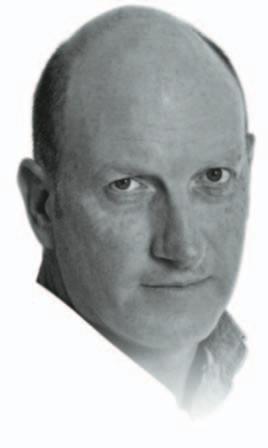
47 Resolution time
making
this time of year, but if you’ re going to set investment goals for 2023, make them small, and achievable
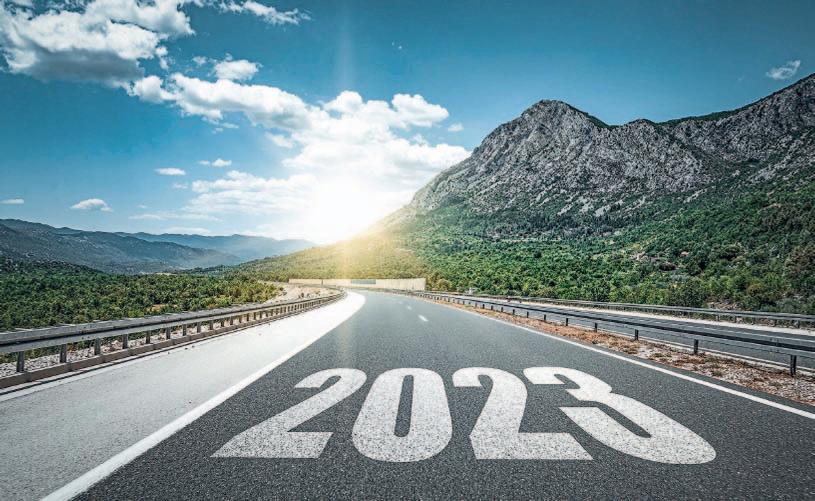
December 22 - December 28,2022 . financialmail.co.za 41
Analysis
and coverage of SA's top companies and investments - the guide to where your money should be
can
We
’t resist
ridiculous resolutions
investing
Still questions over tough CEO quitting
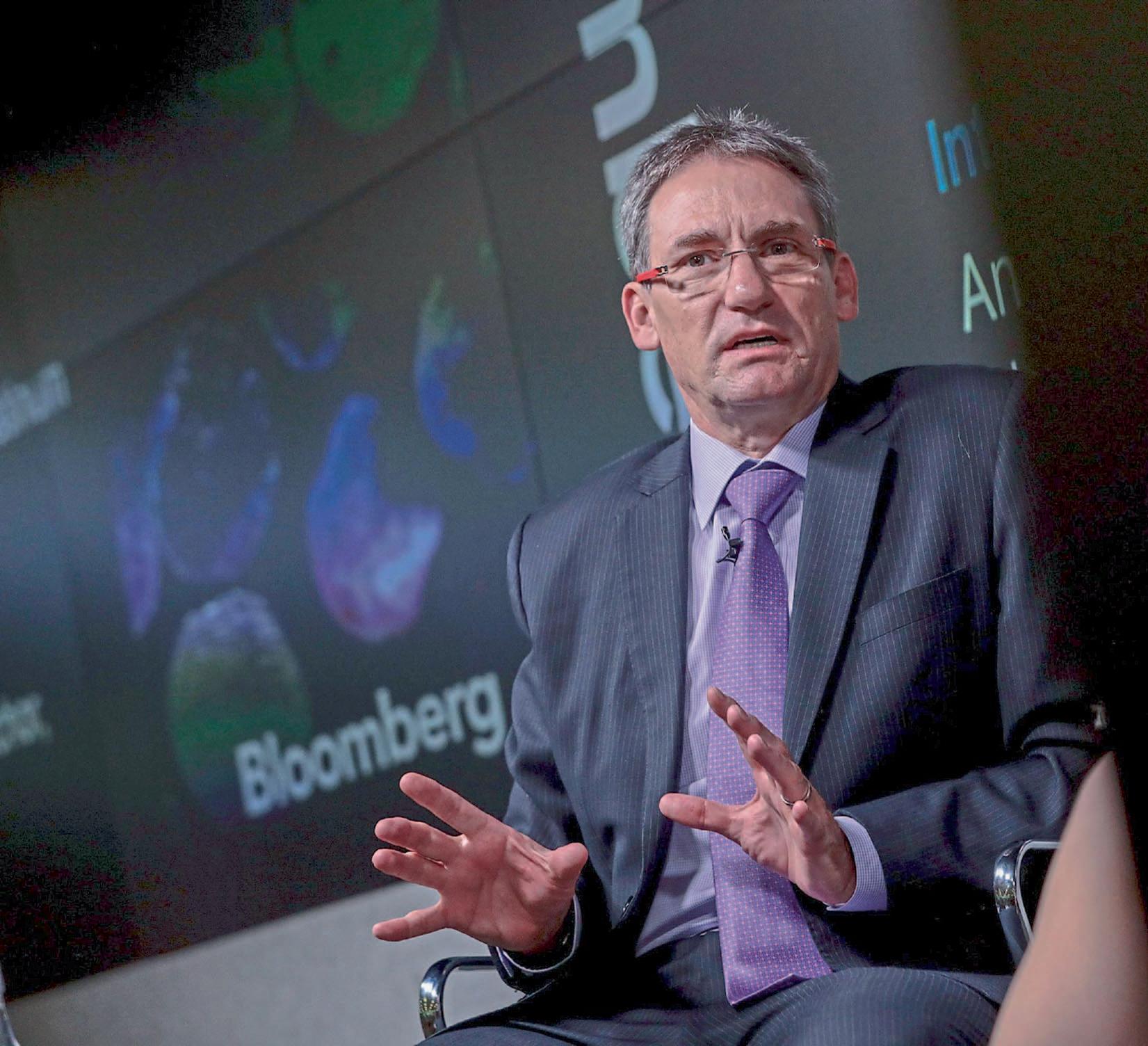
● Having forecast that a failure to secure the $6bn takeover of Yamana Gold would not be a reason to quit Gold Fields, CEO Chris Griffith did exactly that. Five weeks after accepting defeat to rival companies for Yamana, Griffith “jumped out of a window“, proverbially speaking. But was it defenestration?
Probably. Analysts have submitted a number of theories for Griffith going quietly, but they all swim upstream of his formidable track record.
Since becoming a CEO in 2008 at Kumba Iron Ore, Griffith has been a guy for the hard yards. He turned Anglo’s miner around and managed a huge restructuring at his next post, Anglo’s 80%-owned Anglo American Platinum (Amplats).
Force of personality was required for both jobs and no little amount of conflict management. In 2013 Griffith clashed with then mines minister Susan Shabangu, who accused him of arrogance and threatened to remove Amplats’s mining licence. A year later, Griffith crossed swords with unions over executive pay. And less than 12 months in at Gold Fields, he launched a huge step-out in strategy by announcing the Yamana offer a transaction that was to have vaulted Gold Fields into the top three of world gold producers by volume.

However, Gold Fields’s strategy wasn’t tethered, as Griffith had been by Anglo American, the parent company of Kumba and Amplats. The Gold Fields board also appeared more pliable than Anglo would have been. Griffith landed his growth strategy for Gold Fields a mere six months into the job. A stronger board may have objected to the haste.
While the new strategy seemed accept-

AWILDYEAR
Anglogold Ashanti vs Goldfields vs Newmont vs Yamana Gold – weekly – based to 100

Yamana Gold Newmont
able to the board, it proved too much for others. Just over a month before the group’s offer for Yamana was to close, Gold Fields’s lead executives for strategy, legal, and corporate affairs announced plans to resign. Combined, that accounts for about two-thirds of the firm’s nerve centre a hollowing-out of core competence that may have threatened to snowball. In vowing to press on regardless, Griffith risked losing the company entirely. This, if anything, seems a more likely reason for his departure than some cooked-up notion that he should bear responsibility for the Yamana failure.
Yet Gold Fields chair Yunus Suleman tried to paint Griffith as the self-appointed
42 financialmail.co.za . December 22 - December 28,2022
Chris Griffith’s mysterious and hasty departure from Gold Fields bodes ill for the mining company after a clutch of resignations and a raft of projects to crack on with
David McKay
GOLD FIELDS Gamble: Less than 12 months in at Gold Fields, Griffith announced the Yamana offer Yamana Gold/Mathieu Dupuis
With immediate effect: Chris Griffith has ceded his 12-month notice period Bloomberg/Simon Dawson
Anglogold
Ashanti Goldfields Jul AprOct 2022 Source:Infront
70 80 90 100 110 120
130 140 150 160
Making gold great again
● Assuming there are no wild fluctuations for the remainder of December, gold is likely to end 2022 exactly where it started it, at about $1,800 an ounce. That may look pedestrian at first glance, but compared with how other asset classes have performed this year, gold is doing exactly what gold has always done: preserve wealth.
Set the metal’s performance against stablecoin digital currencies, the asset class often described as gold’s rival. At the time of writing, bitcoin was 63.6% weaker a performance less to do with the demise of Sam Bankman-Fried’ s FTX exchange and more with a fundamental shift in the financial market this year. With interest rate increases, the period of “ easy money ” has been replaced by an environment of much tighter liquidity.
Goldman Sachs points out in a recent report that in these altered conditions gold is supported by physical demand, which makes it a better portfolio diversifier than bitcoin could ever be. In contrast, bitcoin is shown to be correlated with its future value, not its present. As an asset class bitcoin thrives on volatility, whereas gold offers stability. “We believe gold’s low correlation with financial conditions means it will be a useful portfolio diversifier,” says the US bank in its report.
But what if gold were able to retain its preservation characteristics and become easier to trade? That’s the challenge former Goldman Sachs and Credit Suisse banker David Tait set himself on becoming the World Gold Council’s CEO about two years ago. He believes that in combining gold’s revered wealth pre-
sacrificial lamb. “We agreed the Yamana setback should not be allowed to impede the company’s strategy so, as CEO, Chris felt he should take responsibility and allow the company to move forward under new leadership unencumbered by the Yamana transaction,” he said on December 13. That’s not what Griffith was saying. “The board has given its complete support to our strategy of increasing Gold Fields’s portfolio quality,” he said a month earlier.
Gold Fields is now at an unwanted turning point with Griffith leaving immediately, ceding his 12-month notice period. In steps Martin Preece, GM of the firm’s South Deep mine, who will be interim CEO until a
servation characteristics with modern ease of trade it will become more attractive to institutions. They may, he believes, seek to allocate risk weight to gold differently, with potentially enormous benefits for the metal.
“I can’t put a timeline on it, but I would [expect] seeing real change three to five years from now. I really would,” says Tait of his plans for gold, captured in the World Gold Council’s marketing strategy, launched in October. That plan isto make gold easier to trade for large banks. For this to happen, severalthings need to occur. First, a database of gold supply has to be established, making gold’s provenance unimpeachably uniform. Second, a tradeable “unit” of gold has to be created, giving gold a fungibility it doesn’t now have.
Tait is not a gold industry insider; in fact, he characterises himself as something of a slightly puzzled outsider. What’s all this business with gold products, weights and purities that come with refined gold, he seems to ask. And why does gold spend so much time on a plane with all its attendant security risks, and then why does it take more than a working week to settle gold trades between institutions?
In this regard, Tait describes gold as “capital heavy”, whereas the currency market is “capital light”. In layman’ s language, gold comes with too much baggage; it’s like the nightmare airport passenger stuck at check-in, the one who didn’t follow the rules of travel.
“Think of that, and imagine solving that problem, which is our objective. We are trying to encourage all asset managers to think of gold in a 5% or 10% bucket of any portfolio,” says Tait.
“That’s what my goal is.” x
replacement is found a process that Suleman said could take up to nine months. The vacuum in senior skills from April adds “another layer of strategic uncertainty at the firm”, say analysts for RMB Morgan Stanley.
Preece is credited with helping to extract strong performance from South Deep, but he remains a relative unknown as a CEO, especially among offshore investors. Important issues lie before him in 2023. These include the commissioning of the firm’s Salares Norte mine in Chile, where inflation threatens to push capital expenditure far beyond the initial $840m guidance. x
HOSPITAL GROUPS
The doctor will see you today

Finally, day hospitals are starting to make inroads in SA’s health-care sector
Jaco Visser
● The shift to day hospitals has been long in coming, but it’s finally starting to catch on which, hopefully, will start benefiting one of the JSE’s most disappointing entrants of the past decade: listed hospital group Advanced Health.
Even the hospital sector’s big guns, Mediclinic, Netcare and Life Healthcare, have joined the fray in setting up day hospitals as the uptake of outpatient services is starting to gain traction only now. These services typically entail surgeries and scopes where the patient can go home on the same day as the procedure.
Fedhealth Medical Aid principal officer Jeremy Yatt ascribes this to the advancement of surgical technology. “Back in the
December 22 - December 28,2022 . financialmail.co.za 43
2021Jul2022Jul
SLOWUPTAKE
160
120 100
AdvancedHealth LifeHealthcare Netcare
Source: Infront
200 180
140
80 60 LifeHealthcarevsNetcarevsAdvanced Health–monthly–basedto100
David McKay
investing
day, cataract surgery would entail staying over in hospital for a day,” he tells the FM. “Now, it is done in the surgeon’ s rooms. ”
Fuelling the take-off in outpatient services was certainly consumers’ reaction to the pandemic. If there is anything positive to be said about Covid, it is that patients became less wary of same-day surgeries and medical procedures.
There are two reasons for consumers’ increased benevolence towards day hospitals, Momentum Health Solutions executive Damian McHugh tells the FM.
“First, there was resistance from consumers to go to acute hospitals during the pandemic. Most of them were reluctant to end up in hospitals that were treating Covid patients. Second, elective procedures weren ’t allowed during the pandemic, with day hospitals offering some equivalent same-day surgeries.”
Not all the surgeries offered in an acute hospital are readily available in day hospitals yet. But this is changing quickly.
“Technology is driving more and more surgical procedures to day hospitals,” says Advanced Health CEO Gerhard van Emmenis. “These include procedures such as same-day knee [replacements] and arthroplasty. We have done more than 100 of these procedures in the past year.”
These same-day surgeries and procedures benefit medical aids and their members alike. Day hospitals have far lower expenses due to their limited operating hours and concomitant reduced labour costs (night shifts fall away, for example).

So, do medical aids push
harder for members to opt for fewer same-day procedures than traditional treatments in acute hospitals? “There isn’t necessarily a push from all medical aids,” says McHugh. “Medical aids want the best possible health outcomes for members at the best prices for members.” Yatt agrees. “The prime consideration is not price, because goedkoop koop, is duur koop [penny-wise, pound-foolish]. It’s about the outcomes of procedures.”
And there seems to be no difference between the outcomes for same-day procedures and those done in acute hospitals. “Our data shows that the quality of medical procedures is often better in a day hospital than an acute hospital,” says Yatt.
Though the procedures provided by day hospitals are “much cheaper” than similar ones at acute hospitals, according to Yatt, accessibility of day hospitals is a stumbling block.

“There are about 420 public hospitals, 215 private hospitals and 120 day hospitals in South Africa,” says McHugh. “When you eliminate the very niche day hospitals, such as those offering only ophthalmological procedures, the number that offer a broad range of same-day procedures diminishes.” There is also, according to him, large variations in availability in the different provinces.
Besides the three listed private hospital groups, there are only two day hospital chains in South Africa. However, there are several nonchained day hospitals.
Unlisted Cure Day Hospitals owns 10 day hospitals and manages one other.
Listed Advanced Health owns nine day hospitals in South Africa and has a share insix in Australia. Even as Advanced has seen a large uptick in patient procedures during Covid, and a subsequent small decline during the previous fiscal year, the com-
pany has struggled to get its South African unit profitable. Advanced’s South African operations contributed 33% to revenue, with the balance coming from Australia, during its fiscal year to end-June.
That’s despite the fact that the South African operations have far larger capacity than the Australian unit: 22 theatres and 412 revenue-generating doctors compared with its 15 theatres and 152 revenue-generating doctors in Australia. Clearly, this is frustrating to management which, earlier this year, informed shareholders that its board had appointed a subcommittee to assess “options and alternative strategies available to unlock and enhance value for [the company’s] shareholders”
The company’s stock, which is 71% owned by Eenhede Konsultante, an associate company of chair Carl Grillenberger, has lost more than half its value this year. Over the past five years the price is down more than 71%, leaving Advanced on a market cap just south of R100m.

“Advanced Health is focusing on cost efficiency and being transparent with patients and the medical schemes when it comes to what they pay ... and on how we measure and illustrate quality through outcomes, ” says Van Emmenis.
“Our business has grown as a result of the pandemic and we strive to continue on this trend.” x
44
Gaining traction: There are two day hospital chains in South Africa
Jeremy Yatt: The prime consideration is not price
investing

the ghost train by the finance ghost
Attack of the capital stack

If you’re only looking at the income statement when figuring out which shares to buy, you are suffering from a huge blind spot in your investment analysis. Not sure why? Have a look in a dark, sad corner for a shareholder in Steinhoff, Nampak or Tongaat. In a pool of tears, you ’ll find some of the answers.



The income statement tells you a lot about how the company makes money and very little about where that money goes. You can have the most profitable business in the world, but if the keys are held by the bank and the preference shareholders, it hardly matters. As an ordinary shareholder, you can be stuck outside the window in the snow, watching everyone else eat the Christmas gammon.
The balance sheet is where you will find details on the capital stack the term used by private equity and similar investors to describe the layers of the funding cake.
These layers can include senior debt, subordinated debt, mezzanine finance instruments and all kinds of exotic structures. The only certainty is that there must be some ordinary equity, as a company cannot be a company unless it has shareholders.


Festive cake analogy aside, another useful way to imagine the balance sheet is a spectrum with pure debt on one end (senior debt) and ordinary equity on the other. These are collectively known as “securities” and as you move from debt to equity, the level of risk for the securityholder increases. In line with the most fundamental rule of all in finance, this means that the expected return must increase as well.
Every securityholder on that spectrum is an “investor”— it’s just the mandate and style of investment that varies.


For example, PBT Group recently offloaded the preference shares that have been funding its BBBEE shareholder to Sanlam Investment Management (SIM). This makes perfect sense, as PBT Group is





an operating entity that needs to generate a high return on equity, whereas SIM is a long-term institutional investor looking for products that offer the right mix of yield and risk.
As the preference shares are mezzanine instruments, they cannot possibly generate the returns needed by PBT Group shareholders. They were a necessary step to achieve empowerment rather than a pure investment decision. For SIM, the instrument is perfect for its investment mandate.
This doesn’t affect the empowerment structure. It just means that the owner of the preference shares has changed, probably because PBT Group has developed to the point where SIM feels comfortable holding the exposure. This is an impressive step for the company.
As you can now see, the art of capital allocation lies in understanding how this medley of financial instruments works together to create the pool of funding that finds its way into the economy.

This includes asset classes like alternative investments, which may include mandates such as debt-led strategies that
aim to achieve yield and capital protection with an equity kicker as well.
The devil is well and truly in the details in mezzanine structures. They are frequently used in early-stage entities (including junior mining houses) and higher-risk applications like turnaround strategies. When companies are desperate for capital, they find themselves holding the begging bowl at the offices of hard-core investors who specialise in finding ways to squeeze ordinary shareholders out of the company.
How to avoid trouble It might sound unfair to you, but there’ sa simple way to avoid being in this situation: don’t run a company on a knife’s edge when it comes to debt. For investors, be careful of management teams who are juicing up returns with regular corporate actions funded by debt.

Once the pain has become clear and you are in the throes of a turnaround story, you need to think like a trader initially and then like an investor.
In many of these stories, the best returns are made soon after the initial crisis, as the market gets a glimmer of hope from the management team about efforts to restructure the balance sheet. The exuberance can drive huge returns in the share price, as people climb in with the hope of a 10 times return.
Sadly, there is often a 0.5 times return (or worse) on offer once the dust settles. As Steinhoff punters have now learnt, understanding the capital stack is critical in deciding whether to invest in these shares. Before you know it, you could be facing a choice of owning nothing or owning almost worthless unlisted shares. When the capital stack attacks, it’s ugly. x
December 22
December
. financialmail.co.za 45
-
28,2022
123RF/anisimovfedor//marysan9
investing
market watch by Marc Hasenfuss
Never mind the NAV!

N“ever mind the NAV!” cried slightly exasperated PSG founder
Jannie Mouton during the fight for the soul of unlisted liquor group KWV about a dozen years ago. This might have been the only time I ever saw the investment legend a tad flustered.
But pesky minority shareholders at KWV wereopposed to a plan that was not entirely without merit to merge KWV into Pioneer Foods’s Ceres Beverages division at an effective price well below the stated NAV.
I think Hosken Consolidated Investments, which eventually scooped up the controlling stake in KWV, got something close to NAV a few years later when it sold the liquor business on to a group controlled by Viv Imerman in 2016. But that was after gallons of sweat capital were poured into KWV to ensure the wine and brandy brands generated cash.
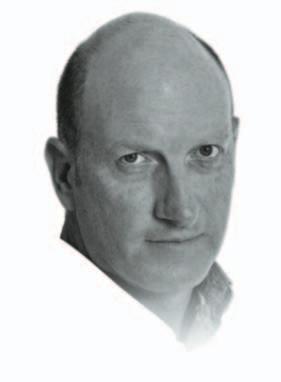
Still, I agree with Mouton’s assertion that the NAV is not something written in stone. Older readers may remember Dorbyl, where a largely cash-based NAV was unceremoniously whittled away when corporate complications precluded the closure of the remaining loss-making operational entity. Dorbyl shareholders got nowhere near the original NAV figure premised on an
orderly wind-up.
So I assume shareholders in RMB Holdings (RMH), which these days holds a scrappy collection of properties, must also be learning about the vagaries of the much-vaunted NAV.
First, they say their share of Atterbury Europe sold at a 20% discount to the value reflected in the audited financial statements. Recent currency movements have made that deal look even worse though, in terms of deal timing, it must be said that interest rate hikes in Europe might have put pressure on the transaction price in any event.
No comment
RMH is now in a terrible quandary. It looks very much as if its efforts to monetise its remaining assets the largest (by far) being unlisted Atterbury Property Holdings could be stymied by complications around a R489m loan settlement. RMH lent this princely sum to Atterbury with the view to having the loan repaid, which no doubt would yield another meaningful special dividend to shareholders. The problem is that Atterbury wants RMH to convert the loan into equity. This would mean RMH would hold about 43% of Atterbury, which appears to be wallowing in some deep gearing that I assume will preclude the paying of dividends for the foreseeable future.
RMH, I’m sure, would prefer to have
the R489m in hand, and then have to deal with finding a buyer for its existing 27.5% stake in Atterbury.
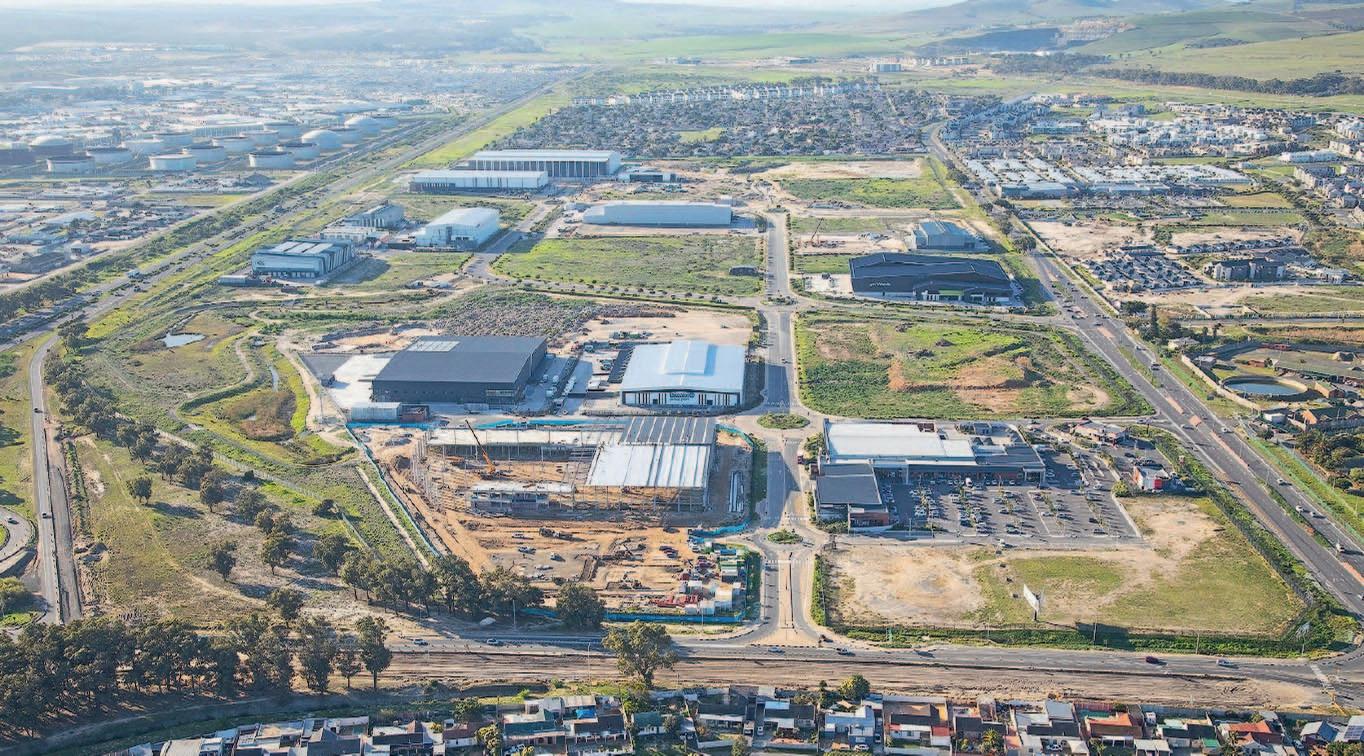
Reading the body language of the two RMH executives at the investor conference last week, I’d be inclined to bet that Atterbury will force the conversion through. The property company, the way I read it, simply has to prove — “in their reasonable opinion”— that it does not have the available cash resources to repay the loan.
To make matters worse for RMH, it seems that the conversion terms require it to pay an effective premium price (embedded value plus the management and development company value) for the additional Atterbury shares. Perhaps the best possible outcome is if RMH can negotiate a partial settlement of cash and scrip? Still, selling the enlarged stake in Atterbury at a respectable price will be nearly impossible in the short term.
This predicament is reflected in RMH’s share price, which at the time of writing was 52c. Last week’s trading update from RMH put the NAV range for the year to end-March at 77.5c-116.3c a share. There were even calls at the investor presentation to bring back RMH prime mover GT Ferreira to help salvage value. I’m not sure he’d want to step into the breach at this late stage, though his gravitas at the negotiating table would not hurt RMH’ s cause.
An intriguing aside at the investor presentation was shareholder activist Albie Cilliers asking if RMH was going to “challenge the constitutionality of appraisal rights”. Appraisal rights provide essential protection to shareholders in matters of corporate action, but there are growing views that they have become a mechanism for opportunistic investors.
Interestingly, RMH executive Brian Roberts asked to plead “no comment” on the matter. “I have no idea what I can or cannot say. I’d rather get advice on how to respond we don’t want to say something out of place in an ongoing legal matter.” Hmm sounds very much as if it’s game on. x
46 46 financialmail.co.za . December 22 - December 28,2022
Quandary: Atterbury Property Holdings is RMH’s largest asset
your money r m Goals — in 2023, and always

Don
Simon Brown
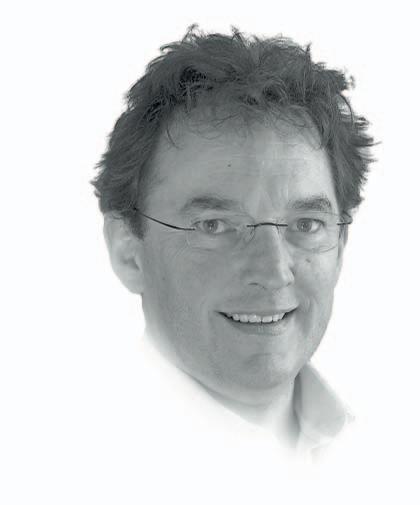
Iwrote about goal setting in September, and at the time cautioned about making giant, audacious goals that could never be achieved. I suggested to focus instead on small, bite-size goals that you can notch up, one by one, and that in time will get you to the large goal(s) you want in your life.
With New Year’s Eve now less than a dozen sleeps away I want to revisit the kind of goals we should be setting, because many of us will be tempted to make wild promises to ourselves and our loved ones about how we’ll tackle the next year and improve our lives.
Yip, these are the same new year’ s resolutions that seldom get into the second week of the year before they’re tossed out; and that’s not because we’re lazy. Rather, it’s because we are bad at setting realistic goals that we are actually able to achieve.
The key is to make the goal something you control.
Let’s say you want to grow your portfolio in 2023. Of course you do, but rather than saying you want your portfolio to be a certain rand amount at year-end or a certain percentage larger, focus on what you can control. Growth in markets, and ultimately your investments, are totally out of your control just look at 2022. Few portfolios grew much at all, and even those that did probably only managed an increase of
single digits.
Yet you may also have deposited money every month into your portfolio. That is totally within your control, and should be your focus going into 2023.
Here the resolution should be: “I want to deposit a certain amount into my portfolio every month.”
So how are you going to do this? Is extra money going to arrive magically in your bank account every month that you can add to your portfolio? Not likely. For this resolution to be feasible you need to take a step back and have a budget that enables you to secure extra funds to deposit.
That means your first resolution should be to budget. Once again, this is a grey area, but it will help to have this in place by the first week of the year. You can then revisit it every month on pay day to see how it is going.
Getting the process right for setting goals is everything; once we understand the two rules making it bite size and ensuring that you can control the outcome formulating and achieving those resolutions is suddenly not that hard.
Satrix Top 40 R5.33m Sasol R3.97m Thungela Resources R3.34m Sygnia Itrix New China Sectors ETF R2.95m Satrix MSCI China Feeder Portfolio R2.87m TOP
December 22 - December 28,2022 . financialmail.co.za 47
’t make these big and audacious; go for bite-size resolutions you can control as you square up to the new year 123 R F/ I a n k sv TOP TRADED STOCKS ON EASYEQUITIES
5 JSE BUYS Value of shares bought
13 - December 19 2022 Tesla $325,916 Apple $98,837 Amazon.com $93,687
UltraSHort QQQ $61,101 Vanguard S&P500 ETF $55,013
5 AMERICAN BUYS Value of shares bought
5 AUSTRALIAN BUYS
of shares bought Invitus Energy $23,304
Rare Earths $20,989 Sandfire Resources $16,192 Sayona Mining $11,189
The last, very important point is to write down your goals. This makes them real to your brain and increases the likelihood of achieving them. Be specific, and share them with family and close friends so they can help keep you on track. x Lithium $10,978
December
ProShares
TOP
TOP
Value
Ionic
Piedmont
jse top stocks
BHPGroupLtd.534012,703,33112.7525.787.909.036760.605912.729.777.9936.2446703.72 HOLD 0.20
ProsusN.V.1179692,446,257-10.35-10.1531.1930.203781.853906.010.200.2222.14121842.09 BUY 1.50
Anheuser-BuschInBevSA/NV1034601,797,2983.824.7925.9019.733994.295242.730.811.067.61135797.13 BUY 0.16
BritishAmericanTobaccoplc703531,728,42618.9624.9811.459.016142.467810.926.176.799.9789462.75 BUY 0.35
Glencoreplc113911,462,58740.1849.296.664.201711.142713.953.594.26-1.1818066.70 BUY 0.03
NaspersLtd.2830001,232,49612.6813.00110.0228.402572.279966.030.230.2221.99NA BUY 0.61
CompagnieFinancièreRichemontSA220341,150,175-7.39-4.4526.361.97835.8711176.801.8221.167.69294626.68 BUY 1.12
AngloAmericanplc66014882,9892.359.927.778.348500.787915.025.855.3519.4761465.23 BUY 0.17
AngloAmericanPlatinumLtd.142478377,983-21.00-16.496.328.0222535.0017773.876.328.8348.81112375.67 HOLD 0.06
FirstRandLtd.6264351,3781.999.7310.709.31585.30672.835.466.3915.577200.71 BUY 0.95
StandardBankGroupLtd.17598295,35222.4530.459.848.871787.801984.515.836.6510.6119534.32 BUY 1.40
MTNGroupLtd.12582237,079-26.87-25.7210.789.541167.001318.312.382.9515.2914213.35 BUY 0.10
VodacomGroupLtd.12454228,639-7.61-2.0112.9112.14965.001025.456.186.1519.1013234.09 HOLD 6.46
South32Ltd.4859222,3463.3812.385.378.58905.59566.417.727.257.30NA BUY 0.01
CapitecBankHoldingsLtd.188134218,423-7.55-5.1123.8520.717887.009083.742.042.0921.04216680.72 HOLD 1.07
ImpalaPlatinumHoldingsLtd.20821177,547-4.693.155.405.743853.003624.677.5610.5931.7919587.17 BUY 0.03
SasolLtd.26867170,4271.105.855.653.904758.006895.615.479.75-10.1638937.46 BUY 0.09
AbsaGroupLtd.19691166,93125.6533.738.077.562441.102604.125.717.4510.1321006.03 BUY 0.30
GoldFieldsLtd.17882159,3964.457.8910.4110.311717.901733.703.132.9515.1918046.50 BUY 0.11
KumbaIronOreLtd.47061151,5773.5916.167.027.076700.006652.1012.2410.5955.8446724.54 HOLD 0.21
Mondiplc29880145,083-23.99-20.918.196.613649.904518.613.805.1716.2836991.72 BUY 1.48
AngloGoldAshantiLtd.33465140,0653.426.0516.8414.771987.172265.562.122.0113.8338153.23 BUY 0.09
ShopriteHoldingsLtd.23646139,82813.1416.1122.4117.331055.001364.122.543.0120.7430574.40 HOLD 12.66
SibanyeStillwaterLtd.4499127,338-8.41-2.565.285.17852.00869.397.226.5928.754590.81 BUY -0.02
BidCorporationLtd.34071114,2763.255.6522.1517.481538.301949.072.052.6610.3643168.85 BUY 1.59
SanlamLtd.4903109,189-18.01-14.0011.509.85426.20497.606.817.838.875724.40 BUY -9.49
NedbankGroupLtd.21331109,10819.5528.257.917.302696.002923.127.227.929.3223127.96 BUY 0.59
DiscoveryLtd.1240382,972-14.22-14.2215.6512.39792.401000.80NA0.695.7115664.97 BUY 0.09
MediclinicInternationalplc1045977,10852.0452.9624.1416.76433.31624.020.571.57-0.6915062.19 HOLD 6.53
ExxaroResourcesLtd.2197876,77041.5261.524.082.915387.007542.2912.5916.0025.11NA BUY 0.07
TheBidvestGroupLtd.2219875,53416.3720.4115.3910.741442.002067.153.353.6810.2431821.44 BUY 0.78
PepkorHoldingsLtd.202674,519-8.12-6.3912.4612.46162.60162.652.723.214.242026.63 NA 0.85
RemgroLtd.1391673,6467.466.4312.3410.551127.651319.211.062.328.1016279.99 BUY 0.52
NorthamPlatinumHoldingsLtd.1855073,572-11.03-11.037.104.762611.103893.99NA9.4631.5127663.98 BUY 0.01
Investecplc1044372,69227.7035.239.108.011147.851304.235.165.1313.2411865.75 BUY 0.53
ClicksGroupLtd.2874070,117-9.99-8.3427.8327.101032.701060.512.222.3340.2529514.01 HOLD 1.94
WoolworthsHoldingsLtd.682069,02131.0036.0117.1014.57398.90467.993.374.5328.248001.15 BUY 0.63
AfricanRainbowMineralsLtd.2880064,70426.4543.094.983.845787.007496.1111.1112.2727.05NA BUY 0.14
ReinetInvestmentsSCA3288164,42711.6613.474.617.917138.004156.461.451.587.16NA BUY -0.03
NEPIRockcastleN.V.1043463,543-2.755.1416.6312.41627.47840.986.578.263.9113984.45 BUY 0.55
AspenPharmacareHoldingsLtd.1359960,686-38.14-36.669.318.791461.201546.422.402.387.7414392.15 BUY 2.54
MultiChoiceGroupLtd.1157951,239-4.98-0.13-350.8811.09-33.001044.374.884.9732.54NA BUY -2.63
OldMutualLtd.104151,153-21.61-16.485.005.90208.40176.487.308.595.37NA BUY -0.61
GrowthpointPropertiesLtd.141748,614-8.520.356.718.70211.14162.889.0610.131.541093.12 BUY 0.45
OUTsuranceGroupLtd.308947,31825.4731.7632.5216.7695.00184.331.77NA64.925993.74 HOLD 1.02
RoyalBafokengPlatinumLtd.1626247,2143.268.5512.919.961260.001633.234.805.2015.0121079.07 HOLD 0.02
ThungelaResourcesLtd.3014942,357249.47347.993.001.9110051.5015815.2625.8749.1437.56NA BUY NA
MrPriceGroupLtd.1579440,558-21.16-17.3211.8811.421329.801383.105.305.6526.9616427.02 HOLD 1.54
DistellGroupHoldingsLtd.1765039,3163.333.3316.7814.871051.801187.00NANA11.0519918.76 HOLD 0.44
TigerBrandsLtd.2175839,23619.8826.0012.7813.811702.401575.414.474.4612.4320134.99 BUY -9.40
HarmonyGoldMiningCompanyLtd.586236,231-7.83-6.8911.759.71499.00603.531.060.213.147089.98 HOLD 0.12
TheFoschiniGroupLtd.999133,073-18.98-15.539.259.151080.201092.155.005.426.5710101.56 HOLD 0.14
InvestecLtd.1025431,56924.4031.858.937.791147.851316.905.43NA13.2411764.18 BUY 0.51
TextainerGroupHoldingsLtd.5200030,177-10.23-7.375.285.389851.599657.073.103.338.4950973.24 BUY 0.06
SantamLtd.2548329,339-6.900.2412.2414.012082.001818.794.915.4016.9722261.44 BUY 0.31
RedefinePropertiesLtd.40428,492-11.01-1.384.796.9484.3558.2010.6313.10-6.16NA BUY -0.50
PicknPayStoresLtd.574928,36810.6615.3519.2217.91299.04320.954.004.2733.656170.15 BUY 6.38
MontaukRenewablesInc.1993028,10426.9426.94689.38NA28.91NANANA0.20NA NA -3.46
SappiLtd.488027,8652.762.762.383.642051.401340.645.488.895.04NA HOLD NA
Quilterplc192627,043-47.97-45.936.4813.48297.24142.854.73NA6.87925.59 HOLD 0.30
SasolLtd.1700026,91621.4331.08NANA4758.00NA8.65NA-10.16NA NA NA AVILtd.775426,0954.3711.3314.6113.47530.60575.775.966.4637.578414.11 BUY 13.17
MomentumMetropolitanHoldingsLtd.175825,538-7.86-2.005.916.03297.30291.315.698.846.341722.58 BUY 0.04
HammersonPlc50725,361-29.29-28.1210.3012.7549.2039.751.55NA-29.18409.64 HOLD -2.44
Dis-ChemPharmaciesLtd.291025,028-16.90-15.6324.0922.11120.80131.591.661.8025.583169.91 HOLD 3.53
NinetyOneplc395124,600-32.21-27.129.57NA412.82NA7.24NA74.79NA NA 0.59
48 48 financialmail.co.za
. December 22 - December 28,2022
TRI
P:EFORWARD
PUCSPVIEWPEG RATIO
M ar ket Cap M ar ket Capitalisation. YTD Year to Date. TRI Total Return Index. HEPS Headline Earnings per Share.Trailing HEPS HEPS at the time of the most recent annual results presentation. EST. forward HEPS — HEPS as estimated by analysis as at next annual results presentation. * — all companies quoted in rand. Div Yield — Dividend Yield as at most recent annual results. Forward Div Yield — Dividend yield as at next annual results. Three-year average RoE — three-year average Return on Equity. Forward RoE — Return on Equity as at next annual results. COMPANYCLOSING PRICE (MONDAY) (c) MARKET CAP (Rm) SHARE PRICE RETURN YTD (%)
RETURN YTD (%)
P:E TRAILING HEPS (*) EST. FORWARD HEPS (*) DIVIDEND YIELD (%) FORWARD DIVIDEND YIELD (%) 3-YEAR AVERAGE RoE (%)
jse top stocks
LifeHealthcareGroupHoldingsLtd.164524,138-30.41-28.7715.5010.05106.10163.702.434.406.172538.09 BUY 0.77
TransactionCapitalLtd.313023,758-32.76-31.5413.9511.90224.40263.092.243.9315.223669.68 BUY 0.27
TheSPARGroupLtd.1202623,162-27.99-25.8910.369.221160.501303.983.334.3324.4413512.87 BUY 2.44


TruworthsInternationalLtd.560222,8846.6416.717.188.37779.80669.279.017.8923.524807.99 HOLD 1.05
NetcareLtd.142620,521-10.54-7.0919.2711.1874.00127.523.515.976.662457.32 HOLD 0.05
BytesTechnologyGroupplc856820,519-27.57-25.3528.22NA303.60NA1.56NA94.05NA NA 0.53
MotusHoldingsLtd.1120419,9583.6610.495.535.572025.002011.016.347.5914.2911126.58 BUY 0.09


ResilientREITLtd.524319,454-6.121.8412.0211.23436.05466.858.498.940.015613.33 BUY -0.12
Capital&CountiesPropertiesPLC215518,345-39.92-39.16-26.9469.18-80.0031.151.64NA-16.90NA BUY -0.16
SiriusRealEstateLtd.156018,343-48.31-45.7314.3810.96108.48142.385.63NA13.532047.52 BUY 0.33
ItaltileLtd.137018,107-18.45-15.129.01NA152.10NA4.45NA24.40NA NA 0.55
BarloworldLtd.883616,757-42.49-35.358.068.281096.301066.845.216.289.438598.56 HOLD 0.05

PSGKonsultLtd.120015,674-11.76-9.4717.12NA70.10NA2.75NA20.47NA NA 1.24
TelkomSASOCLtd.301915,431-44.36-44.367.079.68427.00312.04NA3.775.772206.19 HOLD 0.37

MASP.L.C.199714,271-6.24-0.6320.4710.8697.58183.885.739.186.973763.14 BUY 0.06
EquitesPropertyFundLtd.175313,625-23.28-15.6311.0610.17158.50172.459.489.768.101907.29 BUY -5.52
KaroooooLtd.4295013,294-25.30-23.5424.3117.791767.002414.622.342.3330.3658691.48 BUY -9.49
HoskenConsolidatedInvestmentsLtd.1541013,194112.52112.527.10NA2170.21NA0.32NA-6.16NA NA 0.59
VukilePropertyFundLtd.133913,1257.2112.6310.758.83124.51151.638.419.404.231630.65 BUY -8.66
TsogoSunGamingLtd.120012,6022.654.288.74NA137.30NA4.08NA19.92NA NA 0.01
FortressREITLtd.103212,297-18.48-18.488.6116.07119.8464.207.244.94-5.44552.86 BUY 0.10
AlphaminResourcesCorp.95012,083-24.00-19.479.75NA97.42NA4.01NA6.47NA NA 0.10
HypropInvestmentsLtd.330011,866-13.57-6.027.469.00442.10366.528.908.67-5.38NA HOLD 0.82
NinetyOneLtd.393811,818-31.20-25.999.54NA412.82NA7.26NA74.79NA NA 0.59
GlobeTradeCentreS.A.200011,4850.005.0510.5812.61189.00158.635.05NA1.231678.63 SELL -0.45
December 22 - December
. financialmail.co.za 49
28,2022
P:E — Price:Earnings ratio as at most recent annual results, Forward P:E — Price:Earnings ratio as at next annual results. View — Consensus Buy/Hold/ Sell recommendations. PEG Ratio — Price:Earnings to Growth ratio as at most recent annual results. PUCSP — Potential upside from current share price (1 year target price). ¿ ¿ ¿
PRICE (MONDAY) (c) MARKET CAP (Rm) SHARE PRICE RETURN YTD (%) TRI RETURN YTD (%) P:EFORWARD P:E TRAILING HEPS (*) EST. FORWARD HEPS (*) DIVIDEND YIELD (%) FORWARD DIVIDEND YIELD (%) 3-YEAR AVERAGE RoE (%) PUCSPVIEWPEG RATIO
COMPANYCLOSING
economic indicators
AFRICA TOP STOCKS (EXCL SA)
CompanyCountryMarketCap ($Millions) PriceTotalReturn Ytd
DangoteCementNigeria9,608.05257.800.31
ItissalatAl-MaghribMorocco9,034.68107.50-22.91
MTNNigeriaNigeria8,934.58203.003.05
AijariwafaBankMorocco8,432.86410.00-15.81
SafaricomPlcKenya7,921.8125.00-34.47
ComIntBank(CIB)Egypt5,698.1445.5029.19
AirtelAfricaNigeria5,477.481,469.9053.92
BUACementNigeria5,320.3493.5039.45
BCPMorocco4,527.88232.95-17.08
LafargeHolcimMarocMorocco3,440.761,536.00-30.18
DIVIDENDS & DISTRIBUTIONS
F - Final S - Special I - Interim
Company Amount (ZARc)Trade byPayable
SEREF33.90Dec23Jan13
AFORBESI15.00Jan3Jan9
BarloworldLtd.F295.00Jan3Jan9
BarloworldLtd.S550.00Jan3Jan9
MahubeInfrastructureLtd.I45.00Jan3Jan9
TheFoschiniGroupLtd.I170.00Jan3Jan9
AstralFoodsLtd.F590.00Jan10Jan16
MarshallMonteaglePLCI32.95Jan10Jan27
PBTGroupLtd.S30.00Jan10Jan16
SappiLtd.F267.28Jan10Jan16
COMMODITY PRICES
Precious metals ($/oz)
Dec 15Week agoYear ago12-mth low12-mth high
Gold1,7781,7971,7681,6222,015
Platinum1,0131,0289118361,159
Palladium1,8811,9571,6091,6093,371
Silver23.1023.4721.8117.7326.17
Base Metals ($/t)
Aluminium2,0922,0922,5842,0923,878
Copper8,2538,5079,2157,16010,702
Nickel28,10329,21019,16319,16348,201
Lead2,1472,1922,3111,7382,461
Tin23,63624,32838,42717,65348,865
Zinc3,1813,2863,2932,7364,563

IronOre107.55102.98101.7478.91147.36
Energy
Brentcrude(US$/bbl)81.5475.8173.9671.37133.89
RichardsBayCoal(US$/t)235.58270.03138.97131.08453.36
Agriculture (R/t)
Whitemaize5,0754,8743,5593,5405,461

Yellowmaize4,8564,7543,9263,6825,307
Wheat6,7316,6826,1765,8438,409
Sunflower11,60011,04511,4309,52212,824
Soya10,99610,5977,7217,72111,113
SHAREHOLDER MEETINGS
CompanyDateTypePlace
BraitPLCDec22SHMElectronicparticipation
EuropaMetalsLtd.Dec30SHMLondon
EtionLtd.Jan4SHMElectronicparticipation
AFRO-CJan12SHMCenturion
ECONOMIC INDICATORS
Inflation(%changey/y)
LatestMonth ago
ConsumerpriceindexNov7.407.60
ProducerpriceindexNov15.0016.00
CreditAggregates(%changey/y)
ClaimsonthedomesticprivatesectorSep9.747.86
TotalloansandadvancesSep10.469.46
TotaldomesticcreditextensionSep11.319.96
Industry(%changey/y)
NewpassengercarsalesOct10.399.67
NewcommercialvehiclesalesOct13.5513.11
RetailsalesSep-0.602.10
WholesalesalesSep5.800.40
ManufacturingproductionSep2.901.70
MiningproductionSep-4.50-6.40
MineralsalesSep20.704.20
Trade(Rbn)
ImportsSep171.86167.99
ExportsSep191.56174.19
TradebalanceSep19.706.20
Gold&ForexReserves($bn)
GoldreservesOct6.606.70
SDRholdingsOct6.106.00
ForexreservesOct46.0046.10 GrossreservesOct58.7058.90
Netreserves(InternationalLiquidityPosition)Oct52.2052.20
EXCHANGE RATES
Dec 15Month agoYear ago12-mth low12-mth high
Developed Markets — Rand per foreign currency unit USdollar17.2917.1816.2414.4818.49 Euro18.3617.9118.3015.6818.63 UKpound21.3220.3921.5418.8321.71
Japanyen(100)12.6412.3414.2711.4514.27 Canadadollar12.7412.9412.6111.4413.46 Switzerlandfranc18.6018.3017.5615.4918.87 Australiadollar11.6911.6211.5710.7511.96
Emerging Markets — Foreign currency unit per rand Brazilreal0.310.310.350.280.37 Chinayuan0.400.410.390.390.44 Indiarupee4.694.724.764.475.26 Russiaruble3.733.524.553.219.27
Malaysiaringgit0.260.270.260.250.29 Thailandbaht2.022.072.061.972.32 Botswanapula0.740.750.740.730.80
The information in these columns are provided by ProfileData.
INTEREST RATES
Short-terminterestrates(%)
Dec15MonthagoYearago Prime10.509.757.25 NCD*7.306.603.95 Repo7.006.253.75 Jibar*7.266.623.88 SABOR†3.476.213.82 * 3months † Overnight rate
Bondyields(%)
Dec15MonthagoYearago R1868.7208.6207.810 R21310.58010.5709.715 R21411.33511.27510.800 R20911.21511.14010.440
EXCELLENCE FROM EVERY ANGLE
CompanyDateTypePlace
FortressREITLtd.Jan12SHMElectronicparticipation
AvengLtd.Jan18SHMElectronicparticipation
LabatAfricaLtd.Jan18AGMWeltevredenPark
50 financialmail.co.za . December 22 - December 28,2022
50
CORPORATE AND INVESTMENT BANKING Best Fixed Income and Forex House È ā Partner with our award-winning team. rmb co za/u/ rmb.co.za/u/wTg7-w wTg7-w

www.celliniluggage.co.za
adfocus health brands GLUTEN-FREE,














TRUTH-FREE?
Younger consumers want healthy products, but many are unhappy with the labelling
Jeremy Maggs
● As supermarket aisles become busier with pre-Christmas shopping, a new study shows that young South Africans will pay more for healthy food, but do not necessarily trust food labels and “health brands” .
Marketing and research agency Red Fox Insight, which conducted the survey among people aged 18 to 44, says health brands and eco-friendly products are entering mainstream outlets, with the bigger retailers offering in-house health products.
Nearly half the respondents reported having tried to learn more about healthy products, while 40% said they regularly read labels but 14% of these said they found labels hard to understand or even misleading. The product labels they scrutinised most closely were dairy, juices and beverages, tinned products and processed foods.
Marilu Smit, co-founder and quantitative research director of Red Fox Insight, tells the FM: “If a brand approaches their labelling, packaging and marketing in a way that feels authentic and honest to the consumer, rather than pushing vague ‘health benefits’, it goes a long way to earning customer trust.”
According to a separate study by research company Global Consult, food and beverages is the most trusted sector, with about seven in 10 adults having faith in manufacturers.
But the data also found that while consumers tend to have long-term relationships with food and beverage brands, they do not hesitate to switch when that trust wanes.
Factors that can cause consumers to lose confidence in a brand include a decline in product quality, an increase in price, or the fact that a company stands for a cause they disagree with.
But why the local scepticism about health food labels? Smit says it links back to dishonest or misleading statements. For instance, terms such as “less sugar” are confusing. Less than what, the
consumer wonders.
“Organic” is another term that can lead to increased confusion or unhealthy eating. Smit says an organic chocolate or cookie remains a chocolate or cookie. Similarly, gluten-free products are beneficial mainly for those with gluten intolerance or coeliac disease. Some gluten-free products are made with refined tapioca flour and potato starch, which have no fibre and minimal nutritional benefits.
Smit believes dishonesty arises from clever marketing tactics and leaving things open to consumer interpretation. For example, when a label says the product may help with a certain health condition or preference, a short, punchy phrase will prominently proclaim this in bold typeface, while the details and caveats will be in the fine print on the back of the package.
Another tactic, she says, is to use the psychology of colour green denotes natural, eco-friendly and organic, while yellow stimulates appetite and improves mood. Red is known to drive urgency and higher sales, whereas blue conveys freshness and is associated with a healthy Mediterranean diet.








Survey respondents said they expect support from brands and the government on their health journey. Smit says where the government could help is in developing legislation which is already stringent about what can be communicated that regulates how nutritional information is shared.
“The minimum font sizes can be hard to read. And more support in terms of accessibility and affordability of health products is what Gen Z requires.”




















Debbie Gebhardt, chief marketing officer at the Red Fox Group, tells the FM: “The increasing demand for transparent and authentic brands from savvy consumers means that those brands that successfully and honestly achieve this are more likely to secure a loyal following in the long term.
“Truly helping consumers to navigate this incredibly confusing territory can only be beneficial to brands, as consumers are more inclined to trust them. We are clearly moving towards healthier ways of eating and brands that truly deliver on this, while communicating the message effectively, will lead the pack.” x
52 52 financialmail.co.za . December 22 - December 28,2022
ofpeoplereadthe ingredientsonlabels ofhealthproducts READINGTHE FINEPRINT Healthfood Source:RedFoxInsight 40% findhealthproduct packaginghardto understand 14% findhealthproduct packagingoutright dishonest 14% willpaymoreforhealthyproducts (ages 25 - 44) 45% have made an effort to learn more about healthy products 47% prioritise nutritional information on dairy products, juices and tinned food 40% do not trust health product packaging 26% OF THAT PERCENTAGE
life
A NEARBY ISLAND, A WORLD AWAY
The tourism sector in Mauritius has surpassed pre-Covid levels and it’ s not just due to South Africans fleeing blackouts and water shortages


● Political journalists such as myself rarely have glamorous work trips. The most memorable for me was the trek to Polokwane the hot, hazy capital of Limpopo back in 2007.
That year, as if nature itself was revolting against the epoch-shifting political event about to take place, it rained for the entire duration of the ANC elective conference I was covering for the now defunct South African Press Association.
Notoriously, it was the conference where Jacob Zuma defeated Thabo Mbeki, to lead the ANC. But it is also lodged in my memory because I was woefully ill-equipped for the wet weather. So I found the nearest Jet store and picked up a pair of Toughees, to replace the slinky sandals I had packed, and a dull navy anorak. Hardly glamorous, but dry.
Fast-forward to the ANC’s next elective conference, in Mangaung in 2012. This time, the Free State capital didn’t have enough space for the thousands of people who descended on it so I ended up in a makeshift trailer park, ambitiously billed as a B&B, complete with dirty sheets and dusty curtains.
The point is, work trips for hacks aren ’t exactly fun.
Yet last month, I got a glimpse into the type of trips smarter journal-
ists than me are accustomed to: a foray into the best-kept secret in media circles, travel.
Here, the prize was a trip to Club Med Plantation d’Albion in Mauritius, at their expense.


Until this came up I hadn’t been convinced I’d be seeing beaches any time soon, given the somewhat shitty situation into which the ANC-led government has plunged KwaZulu-Natal. E.coli, as you can imagine, isn’ta look I’d wanted to try on my two young children.
Yet, a quick flight from Joburg, and an hour-long shuttle to the resort on the Mauritian west coast, and there I was.
A butler on standby
Our media group was put into the 40 free-standing villas, and we were greeted by four smiling “gentle organisers” (known as GOs), who deftly thrust cool, wet towels into our hands to wipe off the humidity and remnants of the flight across the Indian Ocean.
These villas are truly a gamechanger in resort travel. Each of them has four large private bedrooms, each with its own bathroom, shower (inside and outside) and a large closet. My bedroom opened onto the villa’s expansive garden, within sight
December 22 - December 28,2022 . financialmail.co.za 53
A look at how to spend your downtime — from music, to sport, books, theatre and the screen
TRAVEL
Natasha Marrian
Pictures supplied by Club Med La Plantation d Albion resort
of the saltwater swimming pool, and the ocean beyond that.
Each villa has its own kitchen and, more remarkably, a butler on permanent standby. Our butler, a petite soft-spoken Mauritian named Daisy, served up a sumptuous breakfast on the deck overlooking the pool each morning.

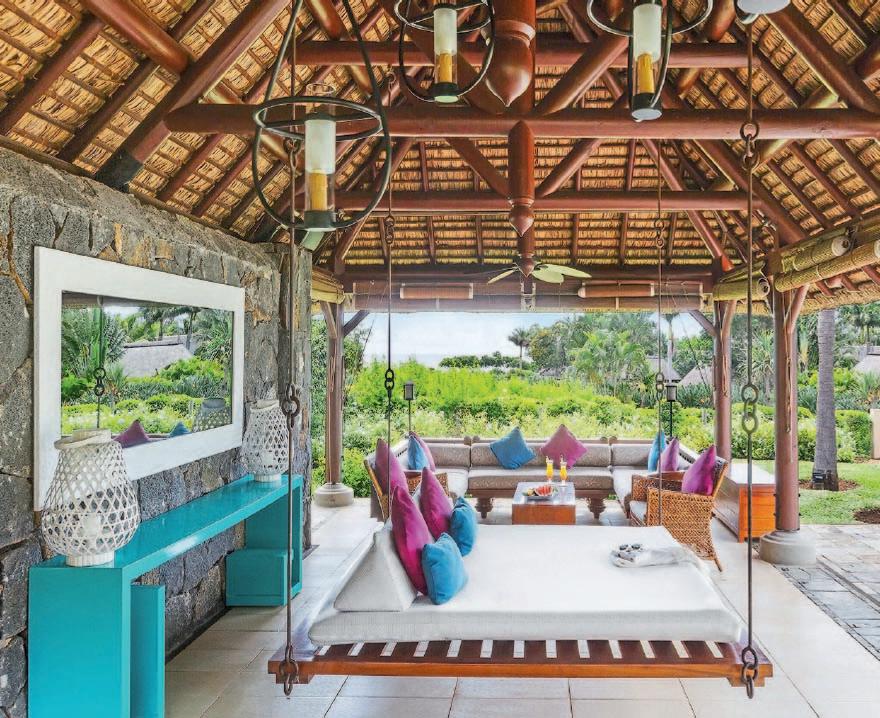

There are 266 rooms at the resorts, with varying degrees of luxury.
Not that guests need to spend much time in their rooms, given the activities on offer, from scuba diving to swimming with dolphins (at an extra cost), to sailing, snorkelling, paddling or archery.
There is even trapeze, which was introduced to Club Med resorts in the 1980s and soon became one of the most popular activities.
Straddling the intimidating web of nets and high-wires housing the trapeze turned out to be my favourite activity at the resort.
For children, it’s an oasis. While parents laze on the sandy beaches with cocktails from the beach bar, the kids’ club entertains the little ones. (Children under 12 stay free.)

I asked a couple what it was like to visit the resort with their three daughters in tow. They described it as a “revelation” : the first holiday they were able to relax at the spa or beach, while their offspring were being entertained.
Then there’s the food. There’s a giddying selection on the buffet Mauritian food, fish and chips, sushi, tom yum. It wasn’t exactly Michelin star quality but was varied and good, and all served up by smiling chefs in immaculate white dress.
After dinner, there is always a show, endearingly amateur but wildly entertaining. The highlight for me was the resort manager as Aladdin the entire cast was made up of resort staff playing dress-up. Then it’s party time: the music and dancing last to the wee hours, with the allinclusive booze flowing liberally.
It’s idyllic, but it’s not cheap. All-inclusive packages are priced at R25,384 per person per night, which includes accommodation in a suite, all drinks, meals, activities and spa treatments. Children get an adjoining but separate room. Private villas are pricier, at R44,677 per person per night, but if privacy and pampering are what you’re after, and you can afford it, it’ s a gamechanger.

When will Club Med hit South Africa?
I spent four days at the resort, but perhaps the highlight was provided by the Club Med staff, blending professionalism with a calm demeanour.
After a long day, which included trying my hand at archery (a hobby I’ll be taking up now I’m back home), I took a dip in the saltwater pool, assuming I was alone. Yet seconds later, from nowhere, there was Daisy, bearing wine and cashew nuts. After dinner, of course, you find your bed
turned down, with chocolates and gifts on the pillow.
If the warm Indian Ocean, white sandy beaches and sultry sunsets are your thing, it’s hard to beat.
It’s immensely popular with South Africans, says Club Med Southern Africa MD Olivier Perillat-Piratoine though they typically head for the northern part of the island.
Unlike Europe, where there were many signs of “ revenge travel”— that is, making up for trips that had to be cancelled during Covid South Africans haven’t felt the urge as desperately. Still, says Perillat-Piratoine, the number of South African tourists to Mauritius has picked up, and the country’s tourism sector has surpassed pre-Covid levels.
Mauritius is the closest most South Africans will get to a Club Med resort, given that the plans to build one on the KwaZuluNatal north coast, near Ballito, were put on hold when Covid hit. It was to be built from scratch, along the lines of the group ’ s “all inclusive” resort model. For someone like me, who prefers a combined “beach ’n bush” experience, that would have been ideal.
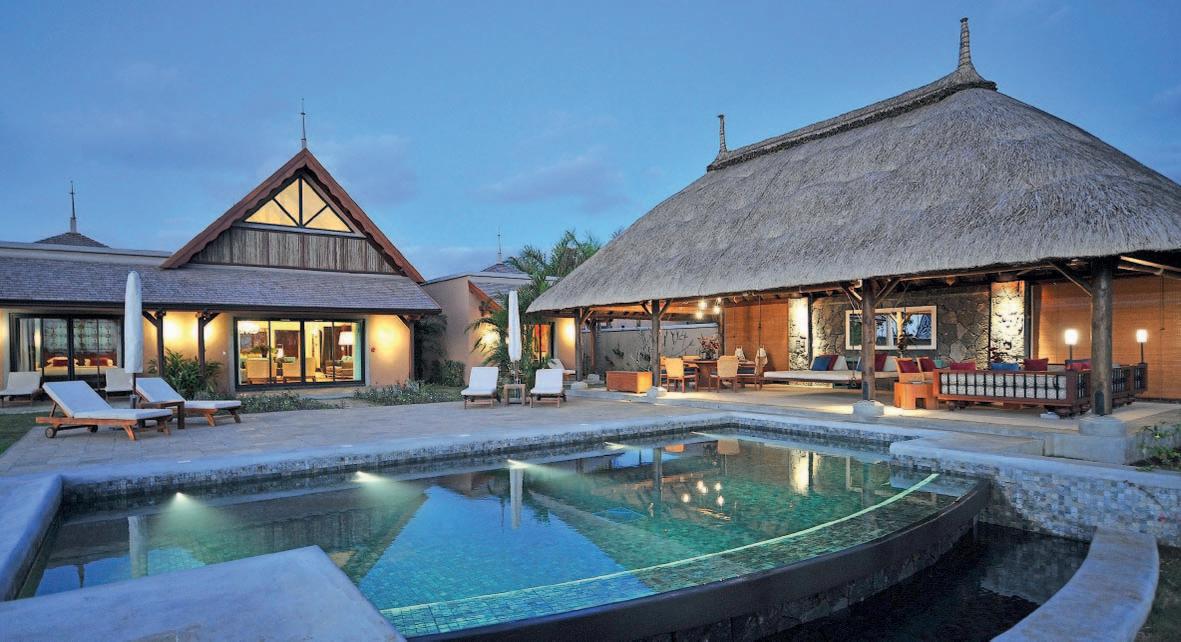
Perillat-Piratoine is noncommittal when asked if the project is still on the cards. He says Club Med has “big ambitions” for South Africa, but won’t divulge what they are.
After four days, I headed home, back to real life, with load-shedding and water shortages. Soon enough, I was on another trip of an entirely different kind: down the N1 to Nasrec for yet another ANC elective conference. Needless to say, few luxuries were on offer there. x
life ????? 54 54 financialmail.co.za . December 22 - December 28,2022
MIND GAMES
PUSHING THE STRESS BOUNDARIES
Dave Chambers
● About the time Australian players were furtively sandpapering a ball at Newlands four years ago, South African professional cricketers were completing an online survey to assess which of them had symptoms of anxiety and depression.
The events aren’t connected, but separately they point to what had been clear since 2000, when Hansie Cronje admitted to cheating: psychological and financial pressures are just as much a part of modern cricket as stumps and bails are.
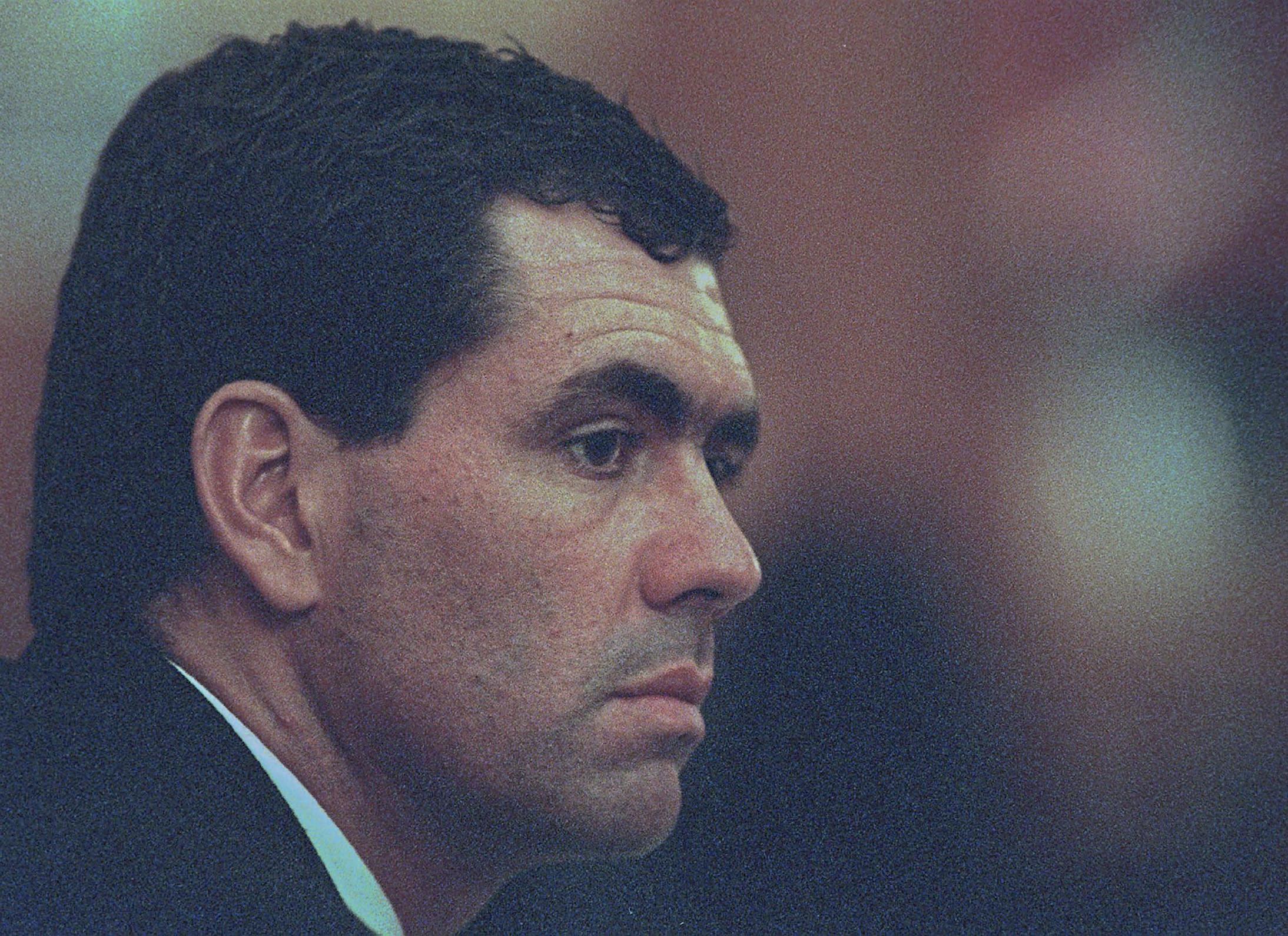
The extent of the mental strain emerges from results of
the 2018 pre-season survey, which was published in October this year in the journal Research in Sports Medicine: of the 177 male cricketers who took part in the research, 59% had symptoms of anxiety and depression, a higher percentage than in any previous study among sporting profes-
sionals that used the same assessment tool.
It’s an intriguing finding, which is likely to ensure that when you see our cricketers taking the field against Australia in Melbourne on Boxing Day, you will see their efforts in an entirely new light.
It’s worth digging into that
December 22 - December 28,2022 . financialmail.co.za 55 December22-December28,2022 . financialmail.co.za 55
Hansie Cronje
Gallo
Images/Carl Fourie
Could it be that the intense anxiety and depression players are subject to is what contributed to poor decisions taken by our professional athletes, like Hansie Cronje?
life
mind games

research. In a sport in which a player’s every move is measured and reduced to statistics, and which involves different formats, lots of time away from home and lengthy periods alone, the reasons for the symptoms are not necessarily obvious.
University of Cape Town sports scientist Prof Sharief Hendricks, who led the study, found that the highest risk factors in a group that included 13 Proteas players had relatively little to do with on-field pressures. Instead, the players who were most at risk were those who were in a division 1 team, those with a short-term contract and those who failed to use the off-season “productively”
Hendricks says the meaning of this term was left open to each player who responded to interpret.
Three groups of players were 70% less likely to develop symptoms of anxiety and depression: those who took a break from the game in the offseason, those with two-year contracts and those who played at a lower level.
Two-year contracts seem to hit the sweet spot, Hendricks speculates. They neutralise the instability of a one-year deal but do not lock players in to the extent that they could miss out on other opportunities, such as playing in the Twenty20 (T20) tournaments that have proliferated around the world.
Cricketers who play overseas during the off-season “forfeit the benefits of decompressing, detaching and preparing for the upcoming season” , according to the paper. They often end up playing three seasons: two at home and one overseas, without any significant periods to rest or recover.
“Furthermore, while playing overseas, cricketers may not have access to their normal social support mechanisms” , which has a further negative effect on their mental health.








Hendricks’s research was

commissioned by the South African Cricketers’ Association (Saca), which wanted a better understanding of mental health risk factors among its members so that it could improve the personal development, education and support programme it has run since 2009, dubbed
There is no evidence to show how the symptoms of anxiety or depression have changed since 2018, Van Wyk says.
“





















However, there are additional factors that one could argue have worsened the situation: the turmoil in South Afric-
meant it is “likely that T20 players, moving from league to league, would have higher stress than average”



These players, he says, would typically have lower longterm job security, though the financial gain may offset this to some extent.
“[That makes] the productive use of player down-time even more important it is hoped, and encouraged, for players to pursue a dual career plan,” he says.


Such a career plan would not only keep players productively occupied, but would help them create their own longterm job security and built their interests outside cricket for when their playing days are done.
Van Wyk says Saca wants to see greater contract security and compliance, improved professional support structures in provinces and “standardised personal development and advocacy support services across the T20 landscape”
This has been something of a focus for the Federation of International Cricketers’ Associations.
You can understand where this all comes from: playing in front of a crowd of 90,000 people at the Melbourne Cricket Ground, and being desperate to perform at your best against a team equally desperate to ensure you don’t, is a high-octane environment.
Hendricks, who is president of the South African Sports Medicine Association, says symptoms of anxiety and depression “may be a natural, and even healthy, response to elite sport career-related stresses”
Player Plus.

Saca’s player services manager, JP van Wyk, says the results which were known for several years before they were published informed adjustments to the programme in areas such as risk awareness and referrals to specialists.
an cricket over the past five years, and Covid. These two factors have affected contract security and the financial viability of cricket in the country.”


























As for the growth of T20 leagues, Van Wyk says the finding that the lack of an off-season worsened symptoms,
Van Wyk, who has 242 professional male players on his books, will be keenly aware that this can quickly spiral, however. “The reality for Saca is that we are dealing with a subset of South African society that is a higher-risk group than average and needs to be supported accordingly.” x
56 56 financialmail.co.za . December 22 - December 28,2022
life ?????
56 financialmail.co.za . December 22 - December 28, 2022
123RF/solarseven
Cryptic No 205

ACROSS
6 Fired with real reform and no exaggeration (7)
7 Play with spirit on the street (5)
9 Way the French follow an animal home (5)
10 Change course when the vessel’ s caught in the swell (4,3)
12 There may be many calls on it to change the management (11)
14 Transporting teams, but not impartially apparently (6,5)
18 Ponders about how to react (7)
19 To sack, or to fire (5)
21 Sleep soundly (5)
22 Main pastime of many (7)

DOWN
1 My goodness! I type wrongly (5)
2 Hue and cry to begin with (6)
3 Gently knock over the kitchen sink (3)
4 Sing to get a drink (6)
5 Reports from the front? (7)
8 It’s a bloomer if such a change is made (7)
11 Producing some scaffolding (7) 13 How two halves unite (4,3)
15 Little devil with the skill to communicate (6)
16 In a bad way (6)
17 A growing swindle (5)
20 Second thoughts about a dance step (3)
PREVIOUS SOLUTION
Across: 1 Traffic jam; 7 Ideal;
8 Uniform; 10 Currants; 11 Till;
13 Reduce; 15 Pass on; 17 Knit;
18 Entrance; 21 Satiate; 22 Exile; 23 Dramatists.
Down: 1 Their; 2 Alliance;
3 Founts; 4 Clip; 5 Agonies; 6 Disc brakes; 9 Malingerer; 12 Fairness; 14 Drifter; 16 Intent; 19 Nails; 20 Palm.
crossword
backstory
Sharon Keith Marketing director of Heineken South Africa

What’s your one top tip for doing a deal? Do your homework on the parties involved. Understand what’s important to them. Also be clear on your “gives” and “gets” and what your walk-away point is.
What was your first job?
While I was at university I worked as a teller at Standard Bank (I had a bursary with it) every Saturday during term time and during my long vacations. It was humbling work, as you dealt with a wide range of customers, and while it was repetitive, transactional work, it required full concentration throughout balancing cash at the end of a shift was a stressful exercise!
How much was your first pay cheque, and how did you spend it? I don’t remember exactly but it funded my skedonk of a car and gave me some desperately needed disposable income as a student.
What is the hardest life lesson you’ve learnt? It’s a cliché, but you think you have time don’t wait to say and do the things that mean the most to you.
What is the one thing you wish somebody had told you when you were starting out? Not to be a stubborn idealist and to think that merit alone would get me places. It helps to have people who are prepared to give you a chance. It’s still up to you to prove that you’re worth hiring but at least you have a foot in the door.
If you could fix only one thing in South Africa, what would it be?
Eskom would be a good start. Universal access to data would be another. Education, health care, housing, nutrition, unemployment, crime, xenophobia, gender-based violence, climate change. It’s reallydifficult to pick just one.
What’s the most interesting thing about you that people don’t know?
I’ve hiked on every continent except Australia and the Antarctic (they are both on my list).
What’s the worst investment mistake you ’ve made?
Buying mutual funds in the US in 1999 just before the dot-com crash.
What’s the best investment you’ve ever made? And how much of it was due to luck?
My MBA. I cashed in my pension fund after seven years at Unilever to fund an MBA at the Graduate School of Business in Cape Town. It was a big risk and a tough year, but it really paid off for my career afterwards.
What is something you would go back and tell your younger self that would impress them?
You will have more crazy adventures than you ever thought were possible. Don’t suppress those big dreams.
Was there ever a point at which you wanted to trade it all in for a different career? And if so, what would that career be?
I always wanted to work as a photojournalist for National Geographic.
If you were President Cyril Ramaphosa, what would you change, or do, tomorrow?
Make tough calls. Hold your leadership to account. Zero tolerance for crime and corruption.
58 58 financialmail.co.za . December 22 - December 28,2022



TO JOIN SPEAK TO YOUR FINANCIAL ADVISOR OR VISIT BONITAS.CO.ZA

Ħ ă ŕŝřŕƠŔŔŔŔŔŝƠŔŚ ĝ Ō ĝ Ėĺ ĝ Ė ĝĦ Ė Ė Ħ ēĖăĺ Ė ঠĝ ēĖăĬ Ħă ĺ ăĖ Ł Ħ Ł ĬĦĬ Ħă Ė Ō Ħĝ Ħ ĝĦ ĦĬĖ Ė ĺă ĺ Ė Ħ ĦŁ Ħ ă ăĻ ē Ħ ĝ Ħ ĖĖ Ė ăăĖ ĦăĖ ĬĝĦ ĦŁ ăăĖ ĦăĖ ĬĝĦ ĦŁ Ħ ă Ĭ Ħ Ħ ă Ħ Does your bank talk sustainable growth, or walk it? ĖĬĝĦ Ħă ēĖăĺ sustainable Ō ĝă ĬĦ ă ĝ to Old Mutual. 32726







 Anne Lloyd-Hughes
Anne Lloyd-Hughes





















































 Sandiso Phaliso
Sandiso Phaliso


















































 Also trading as Stanbic Bank
Also trading as Stanbic Bank










































 Natasha Marrian
Natasha Marrian

























































































































